Log in
Statistics
We have 474 registered usersThe newest registered user is bitaacademy
Our users have posted a total of 44531 messages in 6558 subjects
THAT’S ENTERTAINMENT
CLICK ON ANY OF THESE LINKS TO FIND OUR EXTREME ENTERTAINMENT
UPDATED :
71 WGT TUTORIALS & 32 YOUNG46 TUTORIALS
CLICK HERE TO SEE OVER 100 YOUTUBE VIDEO TUTORIALS . FROM WGTers , WGT & YOUNG46 FORUM UPDATE
TO THE MANY WELCOME GUESTS . THIS FORUM IS NO LONGER A COUNTRY CLUB WEBSITE FOR A WGT COUNTRY CLUB . PLEASE FEEL FREE TO READ THE FORUMS.
THERE ARE MANY TOPICS OF INTEREST . OR NOT . THIS WEBSITE IS AN INFORMATION AND ENTERTAINMENT WEBSITE ONLY .
MUCH OF THE CONTENT IS ARCHIVES OF PURPOSES PAST .
THERE ARE SOME MORE CURRENT TOPICS .
REGISTRATION IS NOT NECESSARY TO READ THROUGHOUT .
REGISTRATION IS EASY AND FREE . THIS IS AN AD FREE WEBSITE . NOTHING IS EVER REQUESTED FROM REGISTERED MEMBERS .
REGISTRATION ENABLES COMMENTING ON TOPICS . POSTING NEW TOPICS . FULL ACCESS TO THE WEBSITE IMAGE HOST . WHICH IS A VERY COMPLETE AND CONVENIENT TOOL .
PLEASE ENJOY .
TIER & AVERAGE REQUIREMENTS
BASIC LEVEL AND AVERAGE REQUIREMENTS , AND SATURATION

WHILE YOUR HERE
WHILE YOUR HERE :
CHECK OUT THE INCREDIBLE PHOTOGRAPHY IN
MY SERIES
THIS USED TO BE THE HOME OF OUR WORLD CLOCK . WHICH CAN NOW BE FOUND IN ITS OWN FORUM ON THE MAIN PAGE ..
THERE ARE MORE WORLD CLOCKS INSIDE HERE .
WORLD CLOCK
FB Like
WORDS OF THE DAY 2 pages
Page 1 of 2
Page 1 of 2 • 1, 2 
 WORDS OF THE DAY 2 pages
WORDS OF THE DAY 2 pages
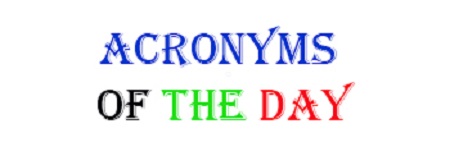
DYK These Internet Acronyms?
When it comes to internet acronyms, IYKYK (if you know, you know), but if you don’t, well, things can get pretty confusing. Made popular by fast-paced digital communication, these acronyms are here to stay (and the lexicon is constantly growing). We might remember with fondness the simple days of LOL and BRB, but we’ve moved on to more elaborate initialisms such as “ELI5” and “PEBKAC.” So, DYK (do you know) some of the most popular acronyms of today? If not, DW (don’t worry) — you soon will.
YMMV
“Your mileage may vary.” This is a clever way to say that the results, opinions, or experiences are different for everyone. The original phrase dates back to the 1970s and ’80s when auto manufacturers would promote their estimated mileage. Ads would state, “Your mileage may vary.” Today, the acronym can be seen on online reviews and chat forums. For example, “The battery life on my wireless headphones lasts through the work day, but YMMV.”ELI5
For when you have no idea what’s going on: “ELI5,” or, “explain like I’m 5.” Literally, explain this to me as if I am a child. Aside from inserting some humor into what might be a frustrating situation, it’s a request for a simple explanation instead of a lengthy, complicated one. Like so many popular acronyms of today, ELI5 was born on Reddit (r/explainlikeimfive).PEBKAC
The office IT support will be able to tell you that this one means, “problem exists between keyboard and chair,” meaning, the problem is the user. This is also a good way to poke fun at yourself after misreading an email or having a slow start to your Monday. (Another variation of this is “PIBKAC,” or “problem is between keyboard and chair”).ICYMI
As a favorite among journalists and social media gossip accounts, “ICYMI” means “in case you missed it.” This initialism is usually used with a sense of enthusiasm, as in, “ICYMI — The Biggest Wins on the Red Carpet.”IIRC
“If I recall correctly” — This handy abbreviation has been recorded online since at least the early 1990s but is making a resurgence thanks to Reddit and other online forums. (A variation of this is “if I remember correctly”).IMHO
This is a useful one if aiming to maintain friendships. “IMHO” means “in my humble opinion.” The related, and slightly better known, “IMO” stands for “in my opinion,” but that one might come off a little brash at times. It can also help determine facts from opinions in chat situations. (“In my honest opinion” is another variation of this).AFAIK
“As far as I know,” the budget meeting is still tomorrow. “AFAIK” is useful office lingo, but don’t mix it up with “AFAIC.” While equally useful, “as far as I’m concerned” has a much different context.TL;DR
Here’s the rare instance where punctuation is inserted into the internet abbreviation for the message that reads, “Too long; didn’t read.” This handy acronym can be used as an interjection or at the end of a very length message or article, just before a summary. For example, “TL;DR — We will be moving our weekly meetings to Tuesday.” In this usage, it’s easy for readers to skim down to a summary, but it’s also been adopted as a snarky response to an overly long explanation.FTFY
“Fixed that for you.” This one can come off as genuine or rude, depending on its context. For example, if a friend tells the group chat, “The Beatles are the best band,” and you reply, “The Eagles. FTFY,” it’s generally understood that it’s good-natured teasing. This can also be used more literally when giving a coworker something that you revised, for example. Tread lightly with this acronym — it can sometimes be seen as aggressive, especially when correcting someone’s work.TFW
TFW it’s Friday! “That feeling when” is also related to “MFW,” or “my face when.” It’s a snappy and easily relatable intro for situations ranging from pre-vacation excitement to the dog chewing up a new pair of shoes. Typically, the acronym will be accompanied by an image, GIF, or emojiLast edited by Paul on Sun 22 Oct 2023, 11:05 am; edited 6 times in total
 Famous Freudian Slips
Famous Freudian Slips
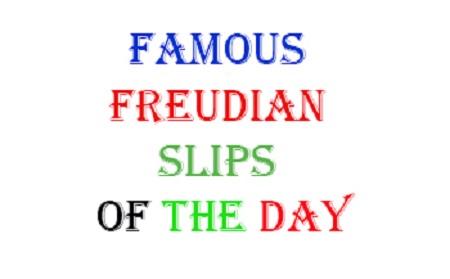
Famous Freudian Slips Explained
“A Freudian slip is saying one thing when you mean your mother.” — A beloved psychology joke.
From political gaffes to television comedies, Freudian slips happen every day. The technical term for this phenomenon is “parapraxis,” which can best be described as a linguistic error (either verbal or written) that expresses unconscious feelings, beliefs, or impulses. Also called a “slip of the tongue,” these mistakes are named after Austrian neurologist Sigmund Freud, the founder of psychoanalysis (the analysis and treatment of emotional disorders). Usually, these slips are harmless and can be attributed to things like tiredness or being distracted. They happen all the time, like when a child calls their teacher “mom” or when a parent calls their child by a sibling’s name.
Other occurrences of parapraxis, such as the ones Freud studied, are a result of unconscious influences. Some can be deeply rooted, usually in desire, which is what Freud was most interested in. A common example is calling a current partner by an ex’s name. Freud first detailed these slips in his 1901 book, The Psychopathology of Everyday Life, where he referred to them as Fehlleistungen (German for “faulty actions”).
More research has been done on Freudian slips over the past century, some aiming to debunk Freud’s beliefs. Experts have yet to collect conclusive evidence that Freudian slips are a direct result of unconscious thoughts, but the topic is still up for debate. In the meantime, pop culture is full of notable examples of Freudian slips that lead to great comedic effect
The One With Ross’s Wedding
One of the most famous Freudian slips in television history happened during season four of the hit sitcom Friends. In the 1998 episode, “The One With Ross’s Wedding, Part 2,” Ross (played by David Schwimmer) demonstrates a familiar Freudian slip: accidentally using an ex-partner's name for a current partner. At the altar, Ross says, “I take thee, Rachel” instead of Emily, the name of his wife-to-be. He does this after Rachel’s appearance at the ceremony takes him by surprise — a perfect example of subconscious thoughts causing a major fiasco.Ross’s famous line came about thanks to a real slip of the tongue by Schwimmer when he genuinely mixed up the names “Rachel” and “Emily” during an earlier episode’s rehearsal. The producers loved it so much that they decided to use the mix-up as the storyline for the future wedding scene.
Meryl Streep Would Like to “Spank…”
During the 2003 British Academy Film Awards (BAFTA), famed actress Meryl Streep took to the stage to accept an award on behalf of Charlie Kaufman, who won Best Adapted Screenplay for Adaption. As Streep read the amusing speech that Kaufman sent to her, she accidentally said, “I would like to spank,” rather than “thank.” The audience roared with laughter as Streep paused and covered her mouth. She went on and fixed her mistake, obviously slightly embarrassed but also seeing the humor in the situation.Raising Money for the Rich
Former U.K. Prime Minister David Cameron made an unfortunate gaffe during Prime Minister's Questions (PMQs) in 2012 when asked about taxation. Cameron explained that the Tories (a British political party nickname) were busy “raising more money for the rich.” Cameron meant to say “for the poor,” but British tabloids poked fun at the slip.Titanic: Leo’s Real-Life Slip Up
Can you guess what line from Titanic was a real slip of the tongue by Leonardo DiCaprio? During the filming of the famous nude drawing scene, Jack (played by DiCaprio), made an awkward mistake with Rose (Kate Winslet). The already tense scene must have gotten to DiCaprio’s head, because instead of directing her to the couch, he said, “over on the bed.” He quickly corrected himself by saying, “the couch,” but the line was so good that the producers kept it in the movie. While the actors claim there has never been anything romantic between them, perhaps DiCaprio’s Freudian slip hinted at what could have been.Ted Kennedy’s Breast … Best Faux Pas
Politicians are famous for on-air fumbles. While many of these word mix-ups are too inappropriate to repeat, one of the more famous political slip-ups came in 1991 during Senator Ted Kennedy’s televised speech. The senator said, “Our national interest ought to be to encourage the breast… the best and the brightest.” Obviously, the senator meant “best,” but anyone can fall victim to those pesky Freudian slips.Austin Powers in Goldmember
The Austin Powers film franchise delighted audiences with its witty writing and off-the-wall antics involving Austin Powers and Dr. Evil (both played by Mike Myers). During a scene in Austin Powers in Goldmember, Dr. Evil notices that everything Powers does is aimed at gaining his father’s approval. After Dr. Evil points this out, Austin Power’s lines keep referring to his father. "Nothing could be my father from the truth!" and "No I dadn't!" Powers hilariously exclaims.Last edited by Paul on Sat 15 Jul 2023, 9:16 am; edited 2 times in total
 Words You Might be Mispronouncing
Words You Might be Mispronouncing
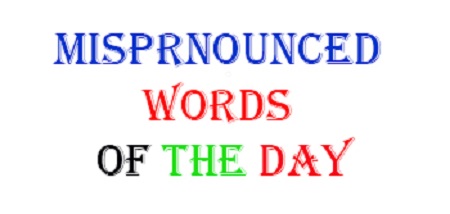
From Açai to Worcestershire — 13 Food Words You Might be Mispronouncing
Trying new cuisines and expanding your palate are marvelous experiences, but it can be difficult to order unfamiliar foods if you don’t know how to pronounce them. This list is for anyone who has ever looked at a restaurant menu and stumbled over the words in front of them. Whether you want to nail your next “açai” bowl order or show off your “gnocchi” skills at an Italian restaurant, we have you covered.
Au jus
oh-ZHOOThis French culinary term means “with the juice.” It typically describes roasted meat served with its own juices (pan drippings). Since the word is French, it’s pronounced “oh-ZHOO” — the “s” is silent. An important cooking note on "au jus" — it’s usually not thickened, which is what makes it distinctly different from gravy.
Açai
uh-SIGH-eeThese dark purple berries have become something of a smoothie-shop celebrity. The generally accepted pronunciation for this Portuguese term stresses the final syllable — “uh-SIGH-ee” — but many people still seem to drop the “ee” altogether, which is incorrect.
Bouillon
BOO(l)-yahnBouillon cubes are tiny, flavor-packed additives to make a delicious broth for soup. The word “bouillon” itself is a French term that translates to “liquid in which something has boiled,” AKA broth. Bouillon comes in cubes, powders, and pastes, and in seemingly all flavors, from chicken and beef to fish and mushroom. It was first introduced in 1908 by the Swiss company Maggi. As for how to say it: Despite the word having a double “l," the “l” sound is nearly silent in the American pronunciation — “BOO(l)-yahn.”
Espresso
eh-SPRESS-ohThere’s no “x” in this one, but the coffeehouse hero sometimes gets mixed up with a similar word in American English, “express,” resulting in the incorrect pronunciation “expresso.” Espresso is a strong black coffee made by passing steam through ground coffee beans. It comes from the Italian phrase caffè espresso, meaning “pressed-out coffee.”
Chipotle
chuh-POHT-layThis Mexican hot chili pepper rose to fame after its namesake American fast-food chain opened in the ’90s. “Chipotle” is a Mexican-Spanish word that came from the Nahuatl language of the Aztecs. It’s mispronounced in many ways, but the most common culprit must be “chuh-powl-tay” which swaps the correct placement of the “l” and “t” — the correct pronunciation ends with “lay,” not “tay.”
Gnocchi
NYOH-kee“Gnocchi” comes from the Italian word nocca, meaning “knuckle.” These small Italian dumplings (often made from potatoes) can be found in restaurants and specialty groceries across the country — so why can’t we pronounce the word correctly? This is a tricky term for English speakers because its sounds aren’t very intuitive. The “g” is silent, as in “gnome,” but there is also an extra sound in the first syllable — it isn’t just “NO-kee,” it’s “NYOH-kee.” Americans also sometimes say “NYAW-kee,” which is an incorrect pronunciation of the “o” sound.
Gyro
yee-roh or zhihr-ohAmericans are infamous for mispronouncing this one. These tasty pitas are often called “je-ye-rohs” in America, similar to the pronunciation of the word “gyroscope,” but this is incorrect. There are two accepted pronunciations for the dish —“YEE-roh” or “ZHIHR-oh” — neither of which has a “je-ye” sound at the beginning. The word “gyro” came into English in the 1970s when it was adapted from the Greek word “guros,” meaning “turning,” which is how the meat for gyros is made while turning on a spit.
Macaron
mak-uh-ROHNA “mak-uh-ROHN” (rhymes with “loan”) is a small French sandwich cookie that comes in many colors and flavors, while a “mak-uh-roon” (rhymes with “spoon”) is a fluffy round cookie made primarily of egg whites and coconut flakes. Macarons have been around since at least the 1500s, when they were made for the French court. The history of macaroons isn’t quite as clear, but today, they’re a popular Passover treat in many Jewish households.
Phở
fuhThis tasty Vietnamese soup is often pronounced as “foe” by Americans — a word that rhymes with “go.” But the correct pronunciation is more similar to “fuh” (rhymes with “duh”). Pho is made of broth, herbs, noodles, and meat. The most popular types of this dish are “phở bo” (beef, pronounced “bah”), “phở ga” (chicken, pronounced “gah”), and “phở chay” (vegetarian, rhymes with “yay”).
Poké
poh-KAYPoké bowls have been popping up on many seafood restaurant menus. The word doesn’t rhyme with “coke” — that accent mark over the “e” means that it should be pronounced as “ay.” Poké is a Hawaiian word that describes a salad made from cubed pieces of raw seafood (especially tuna) that is marinated in soy sauce and sesame oil.
Quinoa
KEEN-wahThese edible, starchy seeds are popular in salads and side dishes. The plant was originally grown in the Andes Mountains by the Quechua people, and the word “quinoa” was derived from the Spanish spelling of “Quechua.” Often, the pronunciation of this word is overcomplicated. It’s simply “KEEN-wah,” not “kee-no-ah” or “kwin-no-ah” (or any combination of the two).
Sherbet
SHUR-buhtMuch to the surprise of many English speakers, there is no second “r” in sherbet. That’s right — it rhymes with “but,” not “burt.” This frozen dessert comes in many fruity flavors and is akin to ice cream. In the U.K., “sherbet” has a different meaning — it's a powder used to add flavor, especially in drinks. According to the Oxford English Dictionary, the misspelling of this word (adding an extra “r”) is so common that it accounts for nearly one-quarter of its citations.
Worcestershire
WOO-stuh-shirWorcestershire sauce was named after a county in west central England. Today, it’s often used in marinades, stir-fries, and salad dressings. It made the Reader’s Digest list of “20 Hardest Words to Pronounce,” but “Worcestershire” is harder to spell than it is to pronounce. The most confusing part of the pronunciation is knowing which letters to skip. From the beginning, skip the first “r” and the “ce,” and barely say the second “r.” It should sound like “WOO-stuh-shir” (rhymes with “fir”).
Last edited by Paul on Sat 15 Jul 2023, 9:18 am; edited 3 times in total
 Bartending Lingo
Bartending Lingo
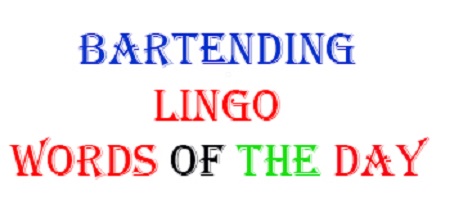
Belly up to the World of Bartending Lingo
Just as different cultures have their own traditions around drinking alcohol, they came to discover it in just as many ways: Wine was fermented in the [url=https://theconversation.com/when-did-humans-start-experimenting-with-alcohol-and-drugs-161556#:~:text=Humans invented alcohol many times,brewed chicha%2C a corn beer.]Caucasus[/url] by 6000 BCE, and the [url=https://theconversation.com/when-did-humans-start-experimenting-with-alcohol-and-drugs-161556#:~:text=Humans invented alcohol many times,brewed chicha%2C a corn beer.]Sumerians[/url] were brewing beer by 3000 BCE. The Chinese began drinking a fermented beverage of rice, honey, and fruit as early as 7000 BCE, and during the Chinese Sheng Dynasty (1200 - 1046 BCE), they had at least three fermented beverages called chang, jiu, and li. The [url=https://theconversation.com/when-did-humans-start-experimenting-with-alcohol-and-drugs-161556#:~:text=Humans invented alcohol many times,brewed chicha%2C a corn beer.]Aztecs (150 BCE - 650 CE) used the same type of agave plants[/url] used to make tequila today to make an alcoholic beverage called pulque.
Since these ancient beginnings, the culture surrounding the consumption of alcohol has grown in sophistication in the form of craft beers, small-batch natural wines, and of course, many different varieties of mixed cocktails. The language surrounding the bar has deepened, as well. Read on to learn the industry lingo bartenders use when preparing your libations.
Cocktail
This term informs so many other words in bartending jargon. A cocktail is an alcoholic drink made up of a spirit, or several spirits, mixed with other ingredients, such as soda, fruit juice, bitters, or cream. These “strong, stimulating, cold American” drinks were first called “cocktails” around 1800. There are multiple possible origins, with the most durable being the French coquetier, meaning “egg-cup.” In New Orleans around 1795, an apothecary named Antoine Amédée Peychaud hosted Masonic social gatherings at his pharmacy where he served mixed brandy beverages in egg-cups. These brandy drinks were reportedly the first to be called cocktails. John Ayto’s Diner’s Dictionary derives the alcoholic word from the literal meaning of “horse with a docked tail,” or one cut short to make it stand up like a rooster’s comb. Because this dressing was given to ordinary horses (as opposed to thoroughbreds), the word came to mean “horse of mixed pedigree” by 1800, which some suggest was extended to drinks by way of “adulteration, mixture.”The word “mocktail” has appeared in recent years, meaning a beverage made without alcohol. Instead of just plain soda or juice, it’s usually still made of several ingredients and crafted like a cocktail. Bartenders have been adding these faux cocktails to their menus to appeal to patrons who want to sip a specialty concoction, but without the alcohol.
Aperitif
An aperitif is an alcoholic drink consumed before a meal, typically to stimulate the appetite. More popular examples include Campari or Aperol, which are usually enjoyed as a spritz, meaning they’re combined in a fizzy cocktail with sparkling wine or soda water. This word appeared in English in 1890 from the French apéritif (“laxative, laxative liqueur”), literally meaning “opening,” as in, to open the appetite. This came from the Latin aperitivius, from aperire, “to open, uncover.”Muddle
To a bartender, “to muddle” is to grind or crush ingredients with a tool called a muddler. This technique is traditionally applied to cocktails like the mojito, where the mint leaves are muddled to the flavor. The word “muddle,” separate from the cocktail bar, appeared in the 1590s, meaning “to destroy the clarity of,” with the sense of “to make muddy” from the 1670s. It’s unclear when it began to be applied to bartending.Jigger
A jigger is a common bartending tool used for measuring ingredients. It looks somewhat like a mini-hourglass, and one side of the tool measures 1.5 ounces, and the other side 1 ounce. This word meant “1.5 ounce shot glass” when it appeared in American English in 1836, and it was common to ask for “a jigger of whiskey” around this time, but at some point bartenders must have adapted the tool to do double duty. The bartending usage potentially came from “jigger” meaning “tiny mite or flea,” given the small volume of the measurement.Dirty
A “dirty” drink will have a variation in color and taste made by changing a core ingredient. The most famous example is the dirty martini, which takes on a salty, briny taste with the addition of olive juice to the traditional gin (or vodka) and vermouth. Many believe this terminology originated in 1901, when New York bartender John O’Connor took inspiration from the traditional olive garnish, first muddling the olive into the drink and later by adding a splash of brine. By contrast, a “dry” martini will include the base spirit of gin or vodka, and very little vermouth, or perhaps none at all.Highball/Lowball
A highball is a drink made from liquor mixed with soda and served in a tall glass, whereas a lowball is a drink made up of water, soda, spirit, and ice, typically served in — naturally — a low glass. Around the late-19th century in England, “ball” meant a “drink of whiskey,” and when it was served in a tall glass, it came to be called a highball. We can assume that “lowball” followed naturally.Last edited by Paul on Sat 15 Jul 2023, 9:19 am; edited 2 times in total
 Compound Words
Compound Words
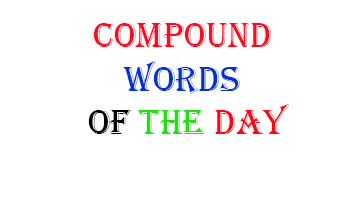
Time for a Refresher: When to Use Compound Words
Some words and phrases are so commonly used in conversation that we may not consider if we’ve used them correctly in writing. Certain compound words, for example, can be transformed into two-word phrases that mean something entirely different than the original word. Case in point: “Apart” means “separated,” while the two-word phrase “a part” refers to a piece of a larger whole. Despite being almost identical, “apart” and “a part” are not interchangeable.
Compound words and their spaced-out counterparts seem to show up particularly with measures of time. Let’s take a look at these common words and phrases to determine when to use which version.
Everyday and Every Day
The word “everyday” means “ordinary” or “common” and can be used as an adjective to modify a noun, as in, “She bought shoes for everyday use.” It’s also used less frequently as a noun on its own to describe the same: “A trip abroad is an escape from the everyday.” The phrase “every day” simply means “each day,” with “every” used as an adjective to modify the noun “day.”The easiest way to distinguish when to use “everyday” or “every day” is to substitute “each” for “every.” For example: “My each day shoes are black” doesn’t work, but “I wear black shoes each day” does. In the first example, the correct version is “everyday.”
Anytime and Any Time
In many situations, “anytime” and “any time” can be used interchangeably. There are two exceptions, however, that require the use of the two-word phrase. The first instance is when using a preposition such as “at.” For example, “He is available at any time in June” requires the two-word “any time.” The singular word “anytime” can only be used without the preposition: “He is available anytime in June.” For a memory aid, remember that if the two-letter word “at” is present, the two-word version “any time” must be as well.The second situation where “any time” is the only correct term is when referencing an amount of time. For example: “I don’t have any time to work on this project right now.”
Awhile and a While
This is a tricky one because both the singular “awhile” and the two-word phrase “a while” have very similar meanings. The adverb “awhile” means “for a period of time,” and the noun phrase “a while” means “a period of time.”When in doubt about which one to use, there are a few tricks to try. If the phrase “for a while” can be substituted in the sentence, then the correct word is the adverb “awhile.” Example: “I cleaned awhile” means the same thing as “I cleaned for a while.” On the other hand, “I went to the store for a while ago” doesn’t make sense, which means the correct version uses the noun phrase “a while,” as in, “I went to the store a while ago.”
To check whether the noun phrase “a while” is correct, try substituting a specific amount of time, such as “an hour” or “a week.” Example: “I went to the store a while ago” correctly turns into “I went to the store an hour ago.”
Last edited by Paul on Sat 15 Jul 2023, 9:20 am; edited 2 times in total
 Road vs. Avenue vs. Boulevard
Road vs. Avenue vs. Boulevard

Road vs. Avenue vs. Boulevard – What’s the Difference?
Street names are often quite creative, telling you a story of their original inhabitants. You'll find streets named after everything from birds to gemstones, people’s loved ones, and the names of geographical landmarks.
What is more consistent are the categories they fall into. There is some rhyme and reason behind street classification, and it matters a great deal to city planners and map makers. Learn the difference between a street and an avenue, and it just might help you find your next appointment.
Roads
By definition, a road is a track that connects two distant points. Simple enough. Roads are supposed to be the link between towns and cities. This rule isn’t too strictly followed — cities are often connected by interstates and contain roads within them. If the strip of pavement doesn't fall into one of the other classifications, just call it a road and you'll be OK.Streets
Sticking with the guidelines, streets are supposed to be roads within cities and towns, with buildings lining the way. They are supported with sidewalks and are often main business areas — such as Main Street or the High Street.Avenues
Avenues are distinct from streets because of the direction they run. Technically, they are supposed to be perpendicular to the streets. They can be meeting spots, like streets, or be more residential areas with shrubbery and landscaping.Boulevards
Boulevards are wide streets, often with a median. Famous examples are Sunset and Hollywood Boulevards in Los Angeles. Boulevards are major areas with lots of space and traffic, but they can be commercial with bars, restaurants, stores, and famous landmarks, or they can be more parklike with greenery lining the boulevard.Follow the Rest of the Roads
Lanes are much more low key. They are narrow roads or streets, usually with no median or shoulder. A way is similar to a lane. A drive is a private or residential road, often with limited access and possibly with no outlet.Highways, freeways, and expressways are long, multilane roads designed for long-distance, high-speed traffic. The differences between them aren’t exactly clear, but certain geographical regions have preferences.
Last edited by Paul on Sat 15 Jul 2023, 9:21 am; edited 2 times in total
 English Words You Didn’t Know Were German
English Words You Didn’t Know Were German
English Words You Didn’t Know Were German
Deutschland has given us many useful things — amazing beer, Bavarian pretzels, and even the refrigerator. Add a great deal of your daily vocabulary to that list. Even if you don't know how to say "hello" in German (Guten Tag), you're probably still using these German words.
Deutschland has given us many useful things — amazing beer, Bavarian pretzels, and even the refrigerator. Add a great deal of your daily vocabulary to that list. Even if you don't know how to say "hello" in German (Guten Tag), you're probably still using these German words.
Angst
Although this word is often used to describe moody teenagers or strumming guitarists, angst is the German word for fear. Thanks to Sigmund Freud, it became part of the English lexicon when his works on psychology were translated in the 1940s.Delicatessen
The idea of a corner deli might feel exclusively big-city America, but this word is actually the plural form of the German word delikatesse, which means "delicious things to eat," or simply, "delicacy." Anyone who has indulged in a well-crafted, smoked meat sandwich is sure to agree.Kindergarten
The first year of school in America is known as "kindergarten." This cheeky word literally translates to "children’s garden" and comes from a German educator who compared his young students to plants and preached that teachers were tasked with nurturing their growth.Doppelgänger
The accent mark suggests the word doppelgänger is German. The word refers to someone who has an uncanny resemblance to someone else, despite not being biologically related. In German, it means "double-goer" or "double-walker."Kitsch
Originating during the 1930s, this campy word describes things that are overly garish but still appreciated in a sentimental or ironic fashion. The German translation means "to coat or smear," which is what critics often do when reviewing kitschy artwork.Uber
Although famously affiliated with a car service these days, uber is indeed a German word that translates to "over" or "above." The English variation often suggests a superlative. Anything "uber" is the very best — unless you're rating a one-star car ride.Spritz
One telltale sign you’re dealing with a German word in English? The letter “z,” which tends to pop up more in Germanic languages. Think of "seltzer" or "blitz." "Spritz" comes from the German word spritzen, which means "to squirt."Wanderlust
This dreamy word refers to a desire to see the world and travel. The translation is quite literal. Wander comes from wandern — meaning to wander, while “lust” is another word we’ve borrowed in English to describe desire. Germans today use the word fernweh to describe a sense of longing for a place you haven't been to yet.Zeitgeist
The German suffix -geist is most directly linked to the English word "ghost" (hence, the word "poltergeist" — another German loan word). However, "ghost" and "spirit" are synonyms, and a different definition of the latter word has grown in popularity — as in, the spirit, vibe, or atmosphere of something. Enter "zeitgeist," which pairs zeit — meaning time — with spirit. The word means the spirit or mood of a historical period.Cobalt
Whether you recognize this word as a color or a type of metal, it’s rooted in German. Miners in the Middle Ages had a hard time extracting silver from another particular metal in the same area. Because of this difficulty, they were inspired to name the ore cobalt, after a mythological mountain demon named Kobald. Both the fictional demon and the metal proved to be devilishly tricky to deal with.Plunder
Although it's often associated with pirates, this German word has roots on land. It stems from the German word plündern, which means, quite literally, "to rob household goods."Last edited by Paul on Sat 15 Jul 2023, 9:22 am; edited 1 time in total
 The Most Overused Words in English
The Most Overused Words in English
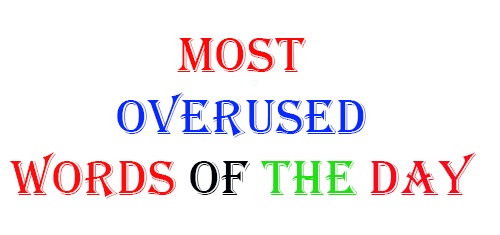
The Most Overused Words in English — And What You Should Use Instead
There are over a million words in the English language alone. Of those, an estimated 170,000 words are in current use in modern vocabulary. Even though there’s an abundance of words at our disposal, people latch onto certain words or phrases and recycle their favorites. Some may like how a word sounds, or perhaps read it and felt it was a perfect descriptor. Or maybe it’s a word that seeped into popular culture, appearing in seemingly every conversation.
Instead of repeating yourself (again), let’s look at some synonyms for the most overused words to use as substitutes.
Amazing
If everything is “amazing,” then nothing is. The actual definition of this word is “causing great surprise or wonder.” Yet “amazing” has been hijacked to describe everything from a much-needed vacation in an exotic locale to a tasty latte — not exactly equals on the wonder scale.Maybe it helps to think about whether something truly is “amazing,” or if it just sparks joy in that moment. Consider using an alternate adjective in place of “amazing,” such as “fascinating,” “incredible,” “stunning,” “unbelievable,” “magnificent,” or “prodigious” (if you want to show off a little).
Literally
For diehard fans of How I Met Your Mother, it’s hard to hear this word being misused and abused without recalling Robin telling Ted, “I literally want to rip your head off,” and Ted yelling back, “You mean figuratively!” This word crept into the popular lexicon around the mid-aughts as a way to emphasize strong emotions or reactions. It’s easy to fall back on in conversation, but “literally” deserves a figurative rest from overuse. Try “precisely,” “actually,” “plainly,” or the old standby of “really.”Crazy
This can seem like a catch-all adjective for everything from “extremely enthusiastic” to “extremely annoyed” to downright “foolish.” People often use it as an adverb, too, as in “I’ve been crazy busy,” or the informal “I was laughing like crazy.” But the word also has a stigma attached to it, with a connotation related to mental health. Try to challenge your casual use of this term, especially when describing any behavior that doesn’t seem to fit a standard of “normal.” Pull out a more descriptive synonym. Maybe it’s more appropriate to use “passionate,” “excited,” “bonkers,” “absurd,” or a silly option like “bananas.” With over a million words at your disposal, are plenty of better options.Hack
The word “hack” is definitely one of the worker bees of the English language. With both verb and noun usages, it can mean rough cuts to an object, a writer who produces unimaginative work, how someone is coping, and a horse used for noncompetitive riding.But none of those are why “hack” is overused. As PC and internet usage became ubiquitous over the last quarter-century, it took on yet another meaning: “to use a computer to gain unauthorized access to data in a system.” In recent years, the word has been applied to any quick, novelty technique that helps people save time and be more efficient — often called a “life hack.” Tech startups, the self-improvement community, and many entrepreneurs casually toss this word around as if everything their business does is some kind of “hack.” At this point, it’s just another corporate buzzword. “Tip,” “trick,” or “how-to” work just as well.
Great/Fine/OK
“That’s great.” “OK.” “Sure, that’s fine.” These middling adjectives are used when there’s nothing to say, or maybe when the speaker is trying to avoid casting an opinion. Instead of falling back on a wishy-washy statement, take a minute to decide what you really want. Unless it’s where to eat dinner — that’s tough for everyoneLast edited by Paul on Sat 15 Jul 2023, 9:23 am; edited 3 times in total
 5 Country Names You're Saying Wrong
5 Country Names You're Saying Wrong
5 Country Names You're Saying Wrong
Take a spin around a globe. Do you recognize all of the country names? Depending on when your globe was created, some of these country names might not even exist anymore. Ceylon, Mesopotamia, West Germany, Prussia, Yugoslavia, Zanzibar — all are no longer in existence.
What about the countries still around — can you pronounce all the names? Country names are often based on the native languages, and they don’t always translate easily to English. You might think a mispronunciation is no big deal, but it reflects a lot more. Think about your name. If you’re a "James," and someone constantly calls you "Jamie," even after numerous reminders, you might think they’re just being plain rude. When you learn a little bit about the language of a country and its proper name, you’re showing respect.
Here are five countries with names that are often mispronounced by English speakers. Once you learn them, you’ll feel a lot more comfortable talking about them in other contexts, and perhaps get to know some people from those countries. Maybe you’ll even be inspired to plan your next vacation.
"The Maldives" may come from a Sanskrit phrase that means garland islands, referring to the general shape of the islands. Sanskrit has more open vowel sounds than American English, as well as a vowel structure somewhat similar to Spanish, so the “i” is pronounced like “ee.”
Take a spin around a globe. Do you recognize all of the country names? Depending on when your globe was created, some of these country names might not even exist anymore. Ceylon, Mesopotamia, West Germany, Prussia, Yugoslavia, Zanzibar — all are no longer in existence.
What about the countries still around — can you pronounce all the names? Country names are often based on the native languages, and they don’t always translate easily to English. You might think a mispronunciation is no big deal, but it reflects a lot more. Think about your name. If you’re a "James," and someone constantly calls you "Jamie," even after numerous reminders, you might think they’re just being plain rude. When you learn a little bit about the language of a country and its proper name, you’re showing respect.
Here are five countries with names that are often mispronounced by English speakers. Once you learn them, you’ll feel a lot more comfortable talking about them in other contexts, and perhaps get to know some people from those countries. Maybe you’ll even be inspired to plan your next vacation.
Belarus
Many English speakers pronounce the name of this small country (formerly part of the USSR) as "bel-AR-us." The name is actually pronounced "bell-uh-ROOS." The official languages of Belarus are Belarusian and Russian; both Slavic languages have a different style of pronouncing vowels from American English. The “u” is pronounced like “oo,” and the accents tend to hit the final syllable.Moldova
Moldova is another former Soviet Republic located in Eastern Europe. When faced with the name, English speakers tend to put the accent on the middle syllable: "mole-DOH-vuh". Native Romanian speakers will spread the emphasis more equally across all three syllables: mol-doh-vuh. The country takes its name from the Moldova River, the site of the first capital.Qatar
The Middle Eastern country Qatar uses Arabic as the primary language. The sight of a “q” without an accompanying “u” can be confusing for English speakers, leading to a pronunciation of "cat-AR." But if you pronounce the name correctly in Standard Arabic, you almost swallow the final syllable — "CUT-ter." In some dialects, the country’s name is pronounced "KIT-ar."The Maldives
You'll find the series of islands known as The Maldives off the coast of Sri Lanka in the Indian Ocean. Americans might pronounce the country’s name by breaking it into recognizable syllables: "MAL-dives" with an American accent, elongating the final “i.” However, this final syllable is actually pronounced with a long “e”: MAL-deeves."The Maldives" may come from a Sanskrit phrase that means garland islands, referring to the general shape of the islands. Sanskrit has more open vowel sounds than American English, as well as a vowel structure somewhat similar to Spanish, so the “i” is pronounced like “ee.”
Iraq
You might be confident in your pronunciation of this Middle Eastern country's name, but while most Americans would say "eye-RACK," the correct pronunciation is "ee-ROCK," with the "i" pronounced as a long "e." The same principle applies to its neighbor Iran, which is not "eye-RAN," but rather "ee-RON."Last edited by Paul on Sat 15 Jul 2023, 9:24 am; edited 1 time in total
 4 Grammatical Rules That Always Stick Together
4 Grammatical Rules That Always Stick Together
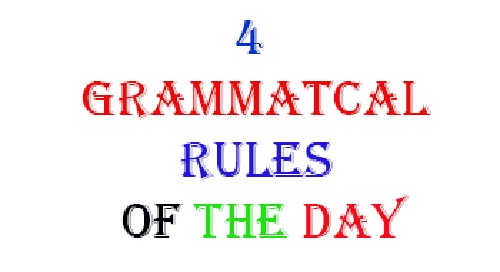
4 Grammatical Rules That Always Stick Together
In English, some grammatical concepts depend on each other. For example, an indirect object doesn’t work in a sentence without a direct object. Likewise, a dependent clause doesn’t make sense unless paired with an independent clause. In other words, it’s hard to understand one of these concepts without learning about the other. Here are four examples of grammatical rules that almost always work together.
Direct and Indirect Objects
A complete sentence typically has a subject (noun or pronoun) and a predicate (verb). Some sentences also have an object. A direct object is the thing receiving the action of the verb. For example, in the sentence, “Angela threw the ball,” the direct object is “the ball.” That’s because it’s the item being acted upon (thrown) by the subject (Angela).Here’s a quick tip for determining the direct object: Ask yourself “[verb] what?” or “[verb] whom?” In the previous example, the question would be, “Threw what?” and the answer would be “the ball.”
Indirect objects are slightly different because they are affected not by the verb but by the direct object. Instead of receiving the action of the verb, they receive the action from the direct object. Here’s the same sentence with a minor tweak: “Angela threw the ball to Marco.”
There’s a trick to finding the indirect object, too. Ask yourself: “to whom?” “for whom?” or “for what?” In the above sentence, the ball (the direct object) was thrown “to whom?” The answer is “to Marco.” So the indirect object here is Marco.
It’s essential to know a sentence can have a direct object on its own, but it cannot have an indirect object without a direct object.
Common Nouns vs. Proper Nouns
In grammar basics, a noun is a person, place, thing, or idea. A common noun is just that — the general designation for a person, place, thing, or idea, such as “president,” “river,” or “movie.”In contrast, a proper noun is a specific name for a particular noun, such as “Abraham Lincoln,” the “Mississippi River,” and “Star Wars.”
The most significant difference between these two types of nouns is capitalization. Proper nouns are always capitalized, no matter where they appear in a sentence. Conversely, common nouns aren’t typically capitalized, unless they’re at the beginning of a sentence.
Independent vs. Dependent Clauses
A clause is a part of a sentence that contains a subject and a predicate. As its name suggests, an independent clause can be a full sentence. It’s a complete thought all by itself.A dependent clause relies (or depends) on the main clause to help it make sense — it doesn’t form a complete sentence on its own. Sometimes it’s connected to the main (independent) clause by a coordinating conjunction (such as “because,” “since,” or “though”) or a relative pronoun (such as “that,” “what,” or “which”). The clauses can also be connected with punctuation, such as a comma or an em dash.
Here are some examples of both types of clauses and how they form sentences:
Full sentence: Although it’s snowing, we are going on a hike.
Dependent clause: Although it’s snowing
Independent clause: We are going on a hike.
Full sentence: Mike started to laugh when Janice threw a snowball.
Dependent clause: when Janice threw a snowball
Independent clause: Mike started to laugh.
Notice how the independent clauses read as their own short sentences, while the dependent clauses don’t make sense on their own. Two independent clauses can also be joined together with conjunctions, such as “and,” “but,” “for,” “nor,” “or,” “so,” or “yet.”
Active vs. Passive Voice
English has two grammatical voices: active and passive. Active is generally preferred in writing, but passive can also be useful in certain situations.In a sentence using active voice, the subject is performing the action. It’s the “actor,” which is performing the action of the verb.
Dana watched the movie.
Our family loves playing board games
Monroe donated money to the school.
Sentences in active voice have a direct and clear tone. These statements are not overly wordy or complex, and the message is usually short, concise, and easy to understand.
Passive voice, on the other hand, is all about the verb. That means, in sentences using passive voice, the subject has an action performed on it. Here are examples of the earlier sentences in a passive voice:
A movie was watched by Dana.
Playing board games is loved by our family.
Money was donated to the school by Monroe.
Notice how these statements are less clear and straightforward. The speaker may seem ambivalent, submissive, or removed. Writers might use passive voice to seem objective or neutral on a subject, or when they want to convey an air of mystery.
Last edited by Paul on Sat 15 Jul 2023, 9:25 am; edited 2 times in total
 9 British Slang Words You Should Be Using
9 British Slang Words You Should Be Using
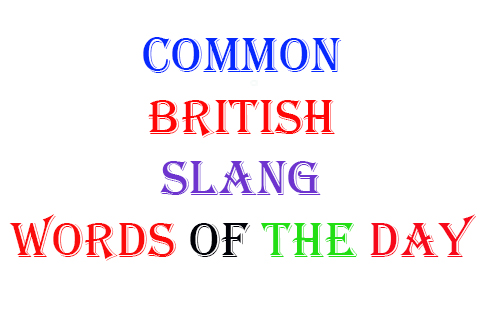
9 British Slang Words You Should Be Using
Across the pond, they have a few words that may sound a tad peculiar to American ears. It's not just tea and crumpets. The Brits have creative slang to describe everything from your mood to your friends to your drinking habits.
Bare
"Bare" is an intensifier, effectively meaning "very" or "many" — similar to "hella" in the U.S. It originally came from Jamaican influences, but the word has worked its way into many British dialects.Example:
I stayed up all night, and now I’m bare tired.
Fiver/Tenner
These are fairly self-explanatory for anyone living in England. Two of the most commonly used denominations of currency are the £5 and £10 notes (£1 only comes in coins), colloquially known as fivers and tenners. We'll still give the award for Most Creative Currency to the Canadians, with the loonie and the toonie.Example:
This bloke tried to charge me a tenner, but I gave him a fiver and ran.
Knackered
Pronounced “NAK-erd,” "knackered" means worn out or exhausted. You can be physically exhausted, or an item can be so worn out, it just needs to hit the bin (British slang for trash can).Examples:
After that gym sesh, I’m completely knackered.
Those shoes are knackered, mate. You’ve not got a new pair in years.
Reckon
To "reckon" is to suspect or have a theory about something. It's made the journey from Great Britain to the American South, where it maintains the thoughtful usage.Example:
I reckon it’s going to rain today, and my team’s going to lose.
Cheeky
A bit of "cheekiness" is a quintessential part of British life. It can be hard to nail down a definition, but one that comes close is "endearingly rude." Being cheeky is often cute, but it can be taken the wrong way, so pay attention to context.Example:
Your son was very cheeky and grabbed a cookie off my plate when I wasn’t looking.
Mate
In the U.S., "mate" is thought of in the sense of a romantic partner, but it's more casual for Brits. It can be used affectionately to mean "friend," and it's also used more informally when referring to or addressing strangers.Examples:
Johnny has been my best mate since university.
I take sugar in my coffee, mate.
Plastered, Trolleyed, Pissed, Battered, Gazeboed
It's often said that language reflects culture. Inuits have many words for snow, and Arabic has myriad words for sand. In Britain, they have a huge volume of words for being drunk. Add “-ed” to any number of nouns or verbs, and your mates will understand you mean drunk.Example:
After fours hours in the pub, I was completely cauliflowered.
Cuppa
Playing right into the stereotype, Brits really do love tea. So much so, in fact, that “cup of tea” was eventually shortened to "cuppa." That’s right, you no longer need to clarify what’s in your cup, because everybody already knows it’s tea.Example:
I had a lovely cuppa with my biscuits.
Last edited by Paul on Sat 15 Jul 2023, 9:27 am; edited 3 times in total
 9 British Slang Words You Should Be Using
9 British Slang Words You Should Be Using
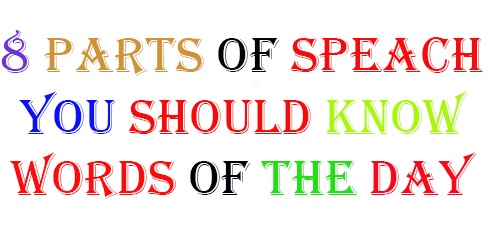
Do You Know All 8 Parts of Speech?
Grade-school grammar lessons drill the parts of speech into students’ brains, but once you’re out of the classroom it can be hard to remember all the details. You may be a skilled public speaker but not know the difference between a subordinating conjunction and a reflexive pronoun. Never fear — we’re going to break down the eight parts of speech and how to use them.
Noun
Nouns are one of the first parts of speech children learn to identify. They’re pretty straightforward: They name people, places, and things. They’re also the workhorses of a sentence and play many roles. They can be subject, direct object, indirect object, subject complement, object complement, appositive, or adjective.Proper nouns designate a specific name or title: "Queen Elizabeth," "Mount Everest," "The Great Gatsby." Proper nouns are always capitalized.
Common nouns are regular, everyday people, places, and things. When talking about things, it can also be an idea, or intangible concept. Common nouns could be "mother," "playground," "apple," and "magic."
You can further identify nouns as concrete or abstract, plural or singular. A concrete noun is one you can identify with your five senses. You can see, hear, touch, taste, or smell it. "Book," "whistle," "pillow," "sandwich," and "roses" are concrete nouns. Abstract nouns are general ideas, such as "pleasure" or "excitement." If you only have one book, it's singular. Check out a stack of books from the library and it's plural.
Pronoun
Pronouns can be a hot topic, but they're actually pretty simple. A pronoun is used in place of a noun, which becomes the pronoun's antecedent. The most commonly used pronouns are personal pronouns: "she," "her," "he," "him," "I," "me," "you," "it," "we," "us," "they," and "them."Possessive pronouns indicate ownership: "my," "your," "its," "his," "her," "our," "their," and "whose."
If you want to emphasize another noun or pronoun, you would use a reflexive pronoun: "myself," "yourself," "himself," "herself," "itself," "ourselves," "yourselves," and "themselves."
Relative pronouns introduce a subordinate clause: "that," "what," "which," "who," and "whom."
And demonstrative pronouns are identifying or referring to nouns: "that," "this," "these," and "those." They take the place of a noun that has already been mentioned (that antecedent).
Verb
Quite simply, a verb expresses an action, or state of being. To form a complete sentence you must have a subject and a verb. The verb must agree with its subject, so make sure both are either singular or plural. You can also conjugate a verb to form different tenses. The verb “to be” breaks down into "I am," "you are," "he/she/it is," "they are," and "we are" If you want to express “to run,” it can be “I run,” or you can include a helping verb and say “I am running” or “I can run.”Of course, English is chock-full of irregular verbs, too. "To be" is one of those non-standard verbs. They don't fit a pattern, but if English is your primary language, most of them probably just come naturally to you.
Adjective
An adjective is what adds color and description to your sentence. An adjective describes a noun or pronoun. If you’re answering the questions of which one, what kind, or how many, that’s an adjective. The RED apple...the OLD man...the GLASS building. The short words, or articles, "a," "an," and "the" are usually classified as adjectives.Adverb
Adverbs are similar to adjectives, but they modify or describe verbs, adjectives, or another adverb. They usually answer questions of when, where, how, why, and to what degree. The boy ran QUICKLY...the teacher shouted LOUDLY...the dog SNEAKILY stole the treats. You can usually tell if a word is an adverb if it ends in "-ly."Preposition
A preposition is a word placed before a noun or pronoun to form a prepositional phrase that modifies another word in the sentence.The mouse ran UNDER the bookcase. In this case, “under” is the preposition within the prepositional phrase “under the bookcase,” modifying how the mouse ran.
The most common prepositions are "up," "over," "down," "under," "to," and "from," but that is by no means a complete list. The English language contains hundreds of prepositions.
Conjunction
If you remember your Schoolhouse Rock (Conjunction Junction, what’s your function?) you know that a conjunction joins words, phrases, and clauses. Coordinating conjunctions link equal elements: "and," "but," "or," "nor," "for," "so," "yet." Subordinating conjunctions are for comparing things or linking unequal clauses: "because," "although," "while," "since."Interjection
Interjections add spice and excitement to your language. They are used to express emotion and often with exclamation points. "Oh my!" "Wow!" "Yay!"Last edited by Paul on Sat 15 Jul 2023, 9:28 am; edited 3 times in total
 Where Did States Get Their Names?
Where Did States Get Their Names?
Where Did States Get Their Names?
Every state in America has its own unique culture, flavor, and quirks – including their names. State pride is alive and well from Alabama to Wyoming, but do you know the story of how your state got its name?
While the name etymology for some states is a bit muddled, in general, a good number are derived from Native American tribes and languages, such as Algonquin, Sioux, and Iroquois. Others are nods to the origins of the European settlers who claimed patches of America for their own.
Here’s a guide to where all 50 state names came from – and what they mean!
Alaska has ties to the Aleuts and the Russians, with the words alaxsxaq and Аляска, respectively, essentially meaning mainland.
Arizona has ancient roots as the Uto-Aztecan word ali sona-g, which was adopted by the Spaniards as Arizonac, meaning good oaks.
Arkansas is the French pronunciation of an Algonquin name for the Quapaw people, akansa.
California is truly a magical place. So magical in fact, it’s named after a fictional world invented by the author Garci Ordóñez de Montalvo, which Spanish explorers adopted when setting foot on the gold coast.
Colorado is another Spanish-influenced name that essentially means ruddy or ruddish. The name was first applied to the Colorado River for its distinctive color.
Connecticut, much like Colorado, was named for the river running through it. The word possibly stems from the Native American term quinnitukqut, meaning beside or at the long tidal river.
Delaware is also named for a body of water, but that body of water was named for Baron De la Warr, the first English governor of Virginia. The baron’s name is old French for of the war.
Florida taps into its Spanish roots by referencing Pascua florida, meaning flowering Easter, as Spanish explorers found the lush area during the holiday season. There's also a tie to the Latin word floridus, meaning strikingly beautiful.
Georgia may be known for its southern hospitality, but it’s actually named for King George II from Great Britain.
Hawaii comes from the Polynesian word hawaiki, meaning place of the Gods. It was, however, originally named the Sandwich Islands by James Cook in the late 1700s.
Idaho has notorious roots in the Athabaskan word idaahe, meaning enemy. It was originally applied to part of Colorado before being given to the Gem State.
Illinois has a silent "s" at the end, because it's of French origin. "Illinois" means "Land of Illini," giving a nod to the Native American population. "Illini" is the Algonquin word for "man" or "warrior."
Indiana, as you might expect, stems from the English word Indian. The Latin suffix tacked on the end roughly means "land of the."
Iowa comes from the Dakota word yuxba, meaning sleepy ones.
Kansas references the Kansa tribe, meaning people of the south wind. Makes sense for tornado alley.
Kentucky is yet another state named for the river running through it, inspired by the Shawnee word for on the meadow.
Louisiana, like Georgia, was named for a regent of the times, specifically, Louis XIV of France.
Maine has uncertain origins. Though it's worth noting that Maine was also the name of a traditional province in France.
Maryland is a tip of the hat from King Charles I to his wife Henrietta Maria. Some husbands give jewelry; King Charles gave naming rights to an entire state.
Massachusetts comes directly from the Algonquian word Massachusett that references the people living in the area, and means at the large hill.
Michigan is based on the Algonquin word meshi-gami, meaning big lake.
Minnesota, like many other Midwest states, comes from a Native American language. In this case, the Dakota word mnisota means cloudy, milky water.
Mississippi literally means big river in Algonquin Ojibwa, although it’s based on the French variation of the word.
Missouri relates to the Algonquin word wimihsoorita, which translates to people of the big canoes.
Montana has some Spanish flair that links back to the Latin mons, for mountains.
Nebraska stems from the Sioux name for the Platte River, omaha ni braska, meaning flat water.
Nevada comes from the Spanish name for the surrounding Sierra Nevada mountain range, which essentially means snowy mountains, or snowcapped.
New Hampshire is the first of many states and cities named as new outposts of other parts of the world. In this case, Hampshire was a county in Southampton, England.
New Jersey was coined by Sir George Carteret of the Channel Island of Jersey.
New Mexico is self-explanatory and based on the Spanish Nuevo Mexico. Although, did you know the Aztecs coined the word Mexihco for their ancient capital?
New York was named for the Duke of York and the future King James II.
North and South Carolina are named after a monarch, King Charles II, as Carolus is the proper Latin version of Charles.
North and South Dakota: The word Dakota, of course, describes the Dakota people, but it also means friendly or allies.
Ohio once again comes from a body of water, this time, the Ohio River. The Seneca Native Americans billed it as a good river.
Oklahoma comes from the Choctaw word meaning red people.
Oregon’s origin is less clear, although some scholars point to Algonquin as the source.
Pennsylvania was named after Admiral William Penn, under Charles II. It literally means Penn’s Woods.
Rhode Island has multiple name theories, including the idea that Dutch explorer Adrian Block applied the name Roodt Eylandt, meaning red island, to reflect the red cliffs of the region. Alternatively, it may come from the Greek island of Rhodes.
Tennessee comes from the Cherokee village name ta’nasi, but the meaning is unclear.
Texas is another old Spanish name from the word tejas, meaning friends or allies.
Utah has a short, spunky sound from the Spanish yuta, the name given to indigenous Uto-Aztecan people of the mountains.
Vermont has an elegant French sound and meaning – mont vert means green mountain in French.
Virginia and West Virginia are a Latin nod to sovereign Elizabeth I, the Virgin Queen.
Washington is named for President George Washington. His surname means estate of a man named Wassa in Old English.
Wisconsin may come from the Miami word meskonsing, which was spelled by the French as mescousing and then shifted to ouisconsin.
Wyoming has origins from the Algonquian chwewamink, meaning at the big river flat. There is another theory, however, that states Wyoming comes from a word for mountains and valleys alternating.
Every state in America has its own unique culture, flavor, and quirks – including their names. State pride is alive and well from Alabama to Wyoming, but do you know the story of how your state got its name?
While the name etymology for some states is a bit muddled, in general, a good number are derived from Native American tribes and languages, such as Algonquin, Sioux, and Iroquois. Others are nods to the origins of the European settlers who claimed patches of America for their own.
Here’s a guide to where all 50 state names came from – and what they mean!
Origins of State Names
Alabama comes from the Choctaw word albah amo meaning thicket-clearers or plant cutters.Alaska has ties to the Aleuts and the Russians, with the words alaxsxaq and Аляска, respectively, essentially meaning mainland.
Arizona has ancient roots as the Uto-Aztecan word ali sona-g, which was adopted by the Spaniards as Arizonac, meaning good oaks.
Arkansas is the French pronunciation of an Algonquin name for the Quapaw people, akansa.
California is truly a magical place. So magical in fact, it’s named after a fictional world invented by the author Garci Ordóñez de Montalvo, which Spanish explorers adopted when setting foot on the gold coast.
Colorado is another Spanish-influenced name that essentially means ruddy or ruddish. The name was first applied to the Colorado River for its distinctive color.
Connecticut, much like Colorado, was named for the river running through it. The word possibly stems from the Native American term quinnitukqut, meaning beside or at the long tidal river.
Delaware is also named for a body of water, but that body of water was named for Baron De la Warr, the first English governor of Virginia. The baron’s name is old French for of the war.
Florida taps into its Spanish roots by referencing Pascua florida, meaning flowering Easter, as Spanish explorers found the lush area during the holiday season. There's also a tie to the Latin word floridus, meaning strikingly beautiful.
Georgia may be known for its southern hospitality, but it’s actually named for King George II from Great Britain.
Hawaii comes from the Polynesian word hawaiki, meaning place of the Gods. It was, however, originally named the Sandwich Islands by James Cook in the late 1700s.
Idaho has notorious roots in the Athabaskan word idaahe, meaning enemy. It was originally applied to part of Colorado before being given to the Gem State.
Illinois has a silent "s" at the end, because it's of French origin. "Illinois" means "Land of Illini," giving a nod to the Native American population. "Illini" is the Algonquin word for "man" or "warrior."
Indiana, as you might expect, stems from the English word Indian. The Latin suffix tacked on the end roughly means "land of the."
Iowa comes from the Dakota word yuxba, meaning sleepy ones.
Kansas references the Kansa tribe, meaning people of the south wind. Makes sense for tornado alley.
Kentucky is yet another state named for the river running through it, inspired by the Shawnee word for on the meadow.
Louisiana, like Georgia, was named for a regent of the times, specifically, Louis XIV of France.
Maine has uncertain origins. Though it's worth noting that Maine was also the name of a traditional province in France.
Maryland is a tip of the hat from King Charles I to his wife Henrietta Maria. Some husbands give jewelry; King Charles gave naming rights to an entire state.
Massachusetts comes directly from the Algonquian word Massachusett that references the people living in the area, and means at the large hill.
Michigan is based on the Algonquin word meshi-gami, meaning big lake.
Minnesota, like many other Midwest states, comes from a Native American language. In this case, the Dakota word mnisota means cloudy, milky water.
Mississippi literally means big river in Algonquin Ojibwa, although it’s based on the French variation of the word.
Missouri relates to the Algonquin word wimihsoorita, which translates to people of the big canoes.
Montana has some Spanish flair that links back to the Latin mons, for mountains.
Nebraska stems from the Sioux name for the Platte River, omaha ni braska, meaning flat water.
Nevada comes from the Spanish name for the surrounding Sierra Nevada mountain range, which essentially means snowy mountains, or snowcapped.
New Hampshire is the first of many states and cities named as new outposts of other parts of the world. In this case, Hampshire was a county in Southampton, England.
New Jersey was coined by Sir George Carteret of the Channel Island of Jersey.
New Mexico is self-explanatory and based on the Spanish Nuevo Mexico. Although, did you know the Aztecs coined the word Mexihco for their ancient capital?
New York was named for the Duke of York and the future King James II.
North and South Carolina are named after a monarch, King Charles II, as Carolus is the proper Latin version of Charles.
North and South Dakota: The word Dakota, of course, describes the Dakota people, but it also means friendly or allies.
Ohio once again comes from a body of water, this time, the Ohio River. The Seneca Native Americans billed it as a good river.
Oklahoma comes from the Choctaw word meaning red people.
Oregon’s origin is less clear, although some scholars point to Algonquin as the source.
Pennsylvania was named after Admiral William Penn, under Charles II. It literally means Penn’s Woods.
Rhode Island has multiple name theories, including the idea that Dutch explorer Adrian Block applied the name Roodt Eylandt, meaning red island, to reflect the red cliffs of the region. Alternatively, it may come from the Greek island of Rhodes.
Tennessee comes from the Cherokee village name ta’nasi, but the meaning is unclear.
Texas is another old Spanish name from the word tejas, meaning friends or allies.
Utah has a short, spunky sound from the Spanish yuta, the name given to indigenous Uto-Aztecan people of the mountains.
Vermont has an elegant French sound and meaning – mont vert means green mountain in French.
Virginia and West Virginia are a Latin nod to sovereign Elizabeth I, the Virgin Queen.
Washington is named for President George Washington. His surname means estate of a man named Wassa in Old English.
Wisconsin may come from the Miami word meskonsing, which was spelled by the French as mescousing and then shifted to ouisconsin.
Wyoming has origins from the Algonquian chwewamink, meaning at the big river flat. There is another theory, however, that states Wyoming comes from a word for mountains and valleys alternating.
Last edited by Paul on Sat 15 Jul 2023, 9:29 am; edited 1 time in total
 12 Words That Were Added to the Dictionary in 2022
12 Words That Were Added to the Dictionary in 2022
Yeet! — 12 Words That Were Added to the Dictionary in 2022
Just because a new slang term is being used all over TikTok, or even in real life, doesn’t mean it immediately gets added to the dictionary. For a word to get added to the pages (or web pages) of a dictionary, it has to show lasting power. Many slang terms drop out of use before a lexicographer takes note. But after years or even decades of use, popular colloquialisms such as “baller, “cringe,” and “yeet,” were finally added to the dictionary in 2022. Of course, many of the past year’s inductees aren’t slang. Jargon seen in news headlines all year long, including “shrinkflation” and “metaverse,” also made the cut. What else officially entered the annals of American English this year? If these words aren’t already in your personal lexicon, they should be.
Just because a new slang term is being used all over TikTok, or even in real life, doesn’t mean it immediately gets added to the dictionary. For a word to get added to the pages (or web pages) of a dictionary, it has to show lasting power. Many slang terms drop out of use before a lexicographer takes note. But after years or even decades of use, popular colloquialisms such as “baller, “cringe,” and “yeet,” were finally added to the dictionary in 2022. Of course, many of the past year’s inductees aren’t slang. Jargon seen in news headlines all year long, including “shrinkflation” and “metaverse,” also made the cut. What else officially entered the annals of American English this year? If these words aren’t already in your personal lexicon, they should be.
Baller
“Baller” received a new definition this year, thanks to Merriam-Webster. As a new, informal slang term, “baller” describes something “excellent, exciting, or extraordinary,” especially relating to a lavish lifestyle, as in, “It was clear from his frequent trips on his private jet that the actor lived a baller lifestyle.” “Baller” was first recorded with this use in 2003, but its oldest usage, which denotes an athlete that plays a sport involving a ball, has been around since 1586.Cringe
The word “cringe” is nothing new; it has been around since the 13th century (as a verb) and describes an act of recoiling, usually out of distaste or fear. The new dictionary entry of “cringe” in 2022, however, is a slang term synonymous with embarrassment or awkwardness, as in, “That first kiss scene was so cringe!”Dawn Chorus
This lovely term is actually from 1874 but finally got its big break nearly 150 years later. A “[url=https://www.merriam-webster.com/dictionary/dawn chorus]dawn chorus[/url]” is exactly what it sounds like — wild birds singing in unison around sunrise, especially during the spring and summer.Dumbphone
“Dumbphone” isn’t a derogatory way to refer to your smartphone — it's a name for its predecessors, early cell phones. By definition, this is a cell phone that doesn’t feature any advanced software, including an internet browser. The word was first coined in 1997 but officially entered the dictionary in 2022.Galentine’s Day
According to the dictionary, “[url=https://www.merriam-webster.com/dictionary/Galentine%27s Day]Galentine’s Day[/url]” is a holiday celebrated annually on February 13. The day before Valentine’s Day has become a time to celebrate friendships, especially among women — “gals.” The word was likely coined in February 2010 on the American sitcom Parks and Recreation in an episode called “Galentine’s Day.”Greenwash
“Greenwashing” is a marketing gimmick that makes a product or policy appear more environmentally friendly than it actually is. The term first appeared in the 1980s, but its unfortunate popularity shows no signs of slowing down, resulting in its induction into the dictionary this past year.Janky
“Janky” is a way to describe something as “faulty” or “junky,” as in, “The janky Wi-Fi signal left her unable to finish her report.” This word has an unclear etymology, but it likely comes from African American Vernacular English (AAVE), and it could be a colloquial pronunciation of either “junky” or “jinxed.”Metaverse
This 2022 buzzword describes an environment of multiple virtual realities that are individualized for each user. At the end of 2021, the social-media supergiant Facebook rebranded itself as “Meta,” both reinforcing the notion of the metaverse, and further solidifying the word’s legitimacy in English, eventually landing it a spot in the dictionary. The secondary definition of “metaverse” is used in a similar way in cosmology to refer to the hypothetical combination of all universes.Pumpkin Spice
This go-to holiday flavor is now dictionary-official. “[url=https://www.merriam-webster.com/dictionary/pumpkin spice]Pumpkin spice[/url]” is a mixture of spices (used to make pumpkin pie), including cinnamon, nutmeg, ginger, cloves, and allspice — but pie isn’t what made this combo famous. Holiday coffee drinks, specifically pumpkin spice lattes, did. A popular accompaniment to the PSL (pumpkin spice latte) is [url=https://www.merriam-webster.com/dictionary/oat milk]oat milk[/url], another new dictionary term for 2022.Shrinkflation
If you’ve noticed less cereal in your bag this year, you aren’t alone, and you’re a victim of “shrinkflation.” This phenomenon involves reducing the volume (or amount) of a product per unit without lowering the price. In the case of many consumer goods, buyers are paying the same price for less of an item. The snappy word was first coined in 2013 and is a portmanteau of “shrink” and “inflation.”Sus
Are those leftovers in your fridge looking a little “sus”? This is a slang abbreviation for either “suspicious” or “suspect.” It was first recorded in 1955, but didn’t reach peak popularity until recently, giving us a way to present our (usually mild) suspicions or distrust about something or someone.Yeet
Expressing approval or enthusiasm for something is as easy as saying “yeet” these days. It can mean “yes,” “cool,” “awesome,” or any other assortment of words that are in agreement with the current situation. For example, you find a $20 bill on the sidewalk — “yeet!” Its secondary definition is a transitive verb meaning “to throw especially with force and without regard,” either literally or metaphorically, as in, “He yeeted the football” or “She yeeted him out of the group chat.” These two definitions, as an interjection and as a verb, have been around since 2007 and 2017, respectively.Last edited by Paul on Sat 15 Jul 2023, 9:30 am; edited 1 time in total
 United States Name Origins: European Roots and Made-up Names
United States Name Origins: European Roots and Made-up Names
United States Name Origins: European Roots and Made-up Names
The names of our 50 states are as diverse as their inhabitants and histories. While the exact etymology of these state names gets muddied at times, they generally fall into two schools, split nearly down the middle: derivations of Indigenous languages, and references to the Europeans who fought over and settled the lands. Take some time to check out the states with Native American roots, and let’s learn more about the other 26 state name origin stories.
The names of our 50 states are as diverse as their inhabitants and histories. While the exact etymology of these state names gets muddied at times, they generally fall into two schools, split nearly down the middle: derivations of Indigenous languages, and references to the Europeans who fought over and settled the lands. Take some time to check out the states with Native American roots, and let’s learn more about the other 26 state name origin stories.
California
California’s name comes from a Spanish romance novel published in 1510 by Garci Ordóñez de Montalvo, titled Las Sarges des Esplandián (The Adventures of Esplandián). In the novel, Queen Califa rules over an island populated only by women who made tools and weapons out of gold. When Spanish explorer Hernán Cortés landed in what is now known as Baja California, he was reminded of the story of Califa’s land and the name “California” was put on Spanish maps in the 1500s. Where did Montalvo get his inspiration? Likely the Arabic word Khalif or Khalifa, which means successor, but specifically refers to a head of state or leader in Islam.Colorado
Like California, the Spanish influenced Colorado’s name. It breaks down to “the color red,” and refers to the distinctive color of the Colorado River due to the abundance of red sandstone soil in the region.Delaware
Delaware is named for a body of water, though the word isn’t derived from another language. In 1610, explorer Samuel Argall named the Delaware River and Bay after the governor of Virginia, Thomas West, who was also known as Lord De La Warr. The state is also known by its nickname, the “First State” because it was the first to ratify the U.S. Constitution on December 7, 1787.Florida
Like California and Colorado, Florida takes its name from its Spanish roots. When explorer Juan Ponce de Leon arrived on the peninsula in April 1513, he was struck by the beauty of the lush landscape. He decided to call it “Florida” after the Spanish celebration Pascua Florida, meaning “flowering Easter” or “Feast of the Flowers.”Georgia
Like many other states, Georgia borrows its name from the British monarchy. Founder James Oglethorpe decided to call it “Georgia” in 1732, when England’s King George II demanded the 13th colony be named after him. The -ia suffix comes from Greek, meaning “state of.”Idaho
Idaho may sound like it was derived from Indigenous language, but it’s actually completely made up. In the early 1800s, a mining lobbyist claimed it meant “gem of the mountains” in Shoshone and tried to pitch it for the region that now contains Idaho and Colorado. Congress caught on and decided to go with “Colorado” for the majority of the area, but eventually dubbed the remaining territory “Idaho” in 1863.Illinois
This one could possibly go on our list of Indigenous-inspired names, as well. French explorer René-Robert Cavelier, Sieur de La Salle led an expedition down the Mississippi River in the 1780s and claimed territory for France. He named it after the Indigenous Illiniwok tribe in the area, but spelled it “Illinois.” Congress kept the name when Illinois became a state in 1818, but what’s more American than completely changing the French pronunciation of a word? (The American pronunciation is “Ill-ih-NOY” and the French would have been something like “Ill-in-WAH.”)Indiana
The roots for Indiana are extremely simple – it comes from the English word “Indian,” though as we know, the native people of the Americas weren’t Indian at all. The English took over the territory after the French lost the French and Indian War in 1763, and tacked on the Latin suffix -a meaning “land of the.”Louisiana
Louisiana also borrows its name from a European regent, King Louis XIV of France. Like Illinois, it was named by the French explorer Cavelier. When Thomas Jefferson acquired the land in 1803 as part of the Louisiana Purchase, the name stuck.Maine
The origins of Maine’s name are very murky. While some believe it was named by English Royal Navy veterans Sir Ferdinando Gorges and Captain John Mason, perhaps to distinguish the “mainland” from the islands along the coast, it’s also the name of a province in France…or perhaps a village in England. The Maine legislature settled the matter in 2001 by adopting a resolution stating the name came from the French province.Maryland
Maryland’s another one for the royals; the territory was a gift from English King Charles I to his French-born Queen Henrietta Maria, better known as Queen Mary. When King Charles gave Lord Baltimore the charter to establish the colony in 1632, he did so only under the condition that it be named in his wife’s honor.Montana
The Spaniards are responsible for Montana, as well, which comes from the Spanish word for mountain — montaña. Interestingly enough, Montana’s average elevation of only 3,400 feet makes it the lowest of all the Rocky Mountain States.Nevada
While most of the Sierra Nevada mountain range is located within California, Congress took inspiration from this collection of peaks when the territory needed a name in 1859 (and when it became a state in 1864). Spanish settlers were inspired by the range's snowy mountaintops — Sierra Nevada means “snow covered” in Spanish.New Hampshire
It wasn’t named for the monarchy, but there is British inspiration in “New Hampshire.” Puritan John Mason founded the Province of New Hampshire in 1629 and named it after the county of Hampshire in England. Literature lovers will appreciate that it was the home of both Jane Austen and Charles Dickens.New Jersey
New Jersey's name comes from the English Channel island of Jersey, birthplace of Sir George Carteret, one of the two men to whom the land was given by King Charles II in 1664. The other original owner of New Jersey was John Berkeley, 1st Baron Berkeley of Stratton, but he had financial troubles and sold his holdings to the Quakers in 1674.New Mexico
This one’s pretty self-explanatory — it comes from the Spanish Nuevo Mexico, which is what the Spanish called all the lands north of the Rio Grande. It was anglicized when the Spanish turned the area over to the U.S. after the Mexican American War in 1848.New York
Originally, the Dutch occupied the land that’s now New York, and called it “New Amsterdam.” When the British took over in 1664 they renamed it “New York,” in honor of the Duke of York.North and South Carolina
Locals might be singing “Sweet Caroline,” but these southern states are both named for the monarch King Charles II. Carolus is the Latin version of Charles. They were divided into separate colonies, north and south, in 1712. South Carolina was the eighth state to join the union on May 23, 1788, and North Carolina was the 12th, on Nov. 21, 1789.Oregon
The Columbia River used to be called the Oregon River, and that’s where the state got its name, but there are a few competing theories as to where “Oregon'' came from. Some say it comes from the Quebecois word ouragn, meaning “hurricane,” and might describe the weather faced by Canadian fur trappers. Others think its roots are Algonquin, while others think it may come from the Spanish orégano, for the wild sage that grows all over the state.Pennsylvania
“Pennsylvania” literally means “Penn’s Woods,” with the suffix derived from the Latin word for forest, sylva. In 1681, Quaker William Penn was given a large land grant from King Charles II, and he named the territory after his father, Admiral William Penn.Rhode Island
None of the potential origin stories for Rhode Island's name explain why it’s called that if it’s not actually an island. Some attribute the name to 17th-century Dutch explorer Adriaen Block, who called it Roodt Eylandt, meaning “red island,” reflecting the red clay of the territory. Others say it was Italian explorer Giovanni da Verrazzano, who said in a 1524 letter that an island near the mouth of the Narragansett Bay looked like the Isle of Rhodes in the Aegean Sea.Vermont
Vermont is a portmanteau of the French words verd and mont, meaning “green” and “mountain,” respectively. French explorer Samuel de Champlain recorded the name on a map in 1647, after taking in the lush mountains that define the state.Virginia and West Virginia
Both of these state names are a Latin nod to sovereign Queen Elizabeth I, known as the Virgin Queen. Many think Sir Walter Raleigh suggested the name to the queen in 1584 when she allowed him to colonize the land. The new state was created when Virginia seceded from the Union in 1861 and 39 western counties didn’t want to follow. It considered new names (including “Kanawha” after a local Indigenous tribe), but it ultimately just added “West.”Washington
Perhaps surprisingly, Washington is the only state named after a U.S. President. George Washington’s name means “estate of a man named Wassa” in Old English.Last edited by Paul on Sat 15 Jul 2023, 9:31 am; edited 1 time in total
 Can You Dig This 1940s Slang?
Can You Dig This 1940s Slang?
Can You Dig This 1940s Slang?
The 1940s were a time of enormous change in the United States. America rebounded from the Great Depression, entered World War II, and benefited from advancing technology. The new words and phrases that came out of this era reflect these major developments. Many of the terms coined in that decade are still used today, but there are some interesting origin stories behind some of the slang terms that became popular in 1940s America.
The 1940s were a time of enormous change in the United States. America rebounded from the Great Depression, entered World War II, and benefited from advancing technology. The new words and phrases that came out of this era reflect these major developments. Many of the terms coined in that decade are still used today, but there are some interesting origin stories behind some of the slang terms that became popular in 1940s America.
Cooking with Gas
This idiom originated in the early 1940s as an advertising slogan. As gas stoves began to replace wood-burning stoves, the phrase conveyed the superiority of using gas power. “Cooking with gas,” meant behaving more efficiently and productively. The slogan was likely coined by Deke Houlgate, an employee of the American Gas Association. He wrote the line and passed it along to comedians Bob Hope and Jack Benny, who used it in radio ads throughout the 1940s.Eager Beaver
Popularized during World War II, this slang term refers to an enthusiastic, hard-working person. The idea of the “eager beaver” likely originated in the military, where cadets, according to one 1942 article, “most thoroughly apply themselves to tasks in ground school and on the drill fields.”Buzz
Feeling a buzz? That means you’re just a tiny bit intoxicated. This term can refer to someone who is tipsy from alcohol, drugs, or perhaps even adrenaline or caffeine. The word was first used to refer to a “pleasant sense of intoxication” in the mid 1930s, and it grew in popularity from there. With the end of Prohibition in 1933, the 1940s were full of slang terms for drunkenness, including “buzzed” and “sauced.”Geezer
In British Cockney slang from the 1880s, a “geezer” was a man in a mask or a disguise (emphasis on the “guise” part of the pronunciation). By the time the term crossed the pond in the 1940s, it meant “old man,” which is how the word is still used in American English today. But, in contemporary British slang, “geezer” means a man of any age, but specifically, the type of guy who would be called “dude” or “bro” in the States.Gobbledygook
Think back to reading a complicated instruction manual, or perhaps listening to a high-level college math lecture. For many of us, those might as well have been “gobbledygook.” Former Texas Congressman Maury Maverick, who was then the Chairman of the Smaller War Plants Corporation, coined this word in a 1944 memo. He banned his staff from using bureaucratic language, writing, “Stay off the gobbledygook language. It only fouls people up. For the Lord's sake be short and say what you're talking about.” The neologism became so instantly popular that just a few months later, Maverick was quoted in The New York Times Magazine, defining the word as, “talk or writing which is long, pompous, vague, involved, usually with Latinized words.”Pass the Buck
Pushing responsibility onto someone or something else, is “passing the buck.” The blame for this idiom lies in the game of poker. During the frontier days, a knife with a buckhorn handle was often used to indicate the dealer. If the player didn’t want to deal, he could skip by “passing the buck" to the next player. The gambling phrase was adopted widely throughout World War II to refer to the way some countries avoided confronting threats. The idiom became so popular President Harry Truman had a sign made for his desk that famously read, “The buck stops here.”Last edited by Paul on Sat 15 Jul 2023, 9:32 am; edited 1 time in total
 4 Grammar Rules That You Don’t Need Anymore
4 Grammar Rules That You Don’t Need Anymore
4 Grammar Rules That You Don’t Need Anymore
Dig out your old grammar workbooks. Got them? OK, now throw them away! That’s right, we’re talking about breaking the rules. Grammar is constantly evolving, meaning rules that were once drilled into your head by schoolteachers are now more like guidelines — sometimes to be ignored. Here are four grammar rules that you no longer need to stress about. (We're breaking one of the rules right away!)
Seventeenth-century linguists argued that because a preposition can’t be stranded in Latin, the same should be true for English. But Latin departs from English in myriad ways, the least of which being stranded prepositions. While you should probably still use the old standby for academic papers or journalistic writing, this is definitely a rule to toss out of your everyday vocabulary.
The one exception to this rule abandonment is unnecessary tag-ons of prepositions. This means adding prepositions at the end of a sentence when you don't need to. For example, “Where is this bus going to?” can easily be "Where is this bus going?" Fewer words make a more concise sentence.
The rule of not splitting infinitives is yet another carryover from Latin. Latin infinitives are a single word, indicating to some linguists that English infinitives should be treated as a single unit. But again, English is not Latin. Split infinitives have been used by some of English’s best writers, from Benjamin Franklin to William Wordsworth, from Samuel Johnson to George Bernard Shaw, so why not you?
Beginning a sentence with a conjunction — such as "but" or "and" — has long been a grave grammatical sin. But beginning a sentence with a conjunction helps to keep thoughts separated and will save you from a confusing cacophony of commas, not to mention allow your reader to breathe between thoughts. Conjunctions, sometimes recognized using the mnemonic FANBOYS (for, and, nor, but, or, yet, so), but more accurately by Merriam Webster’s mnemonic WWWFLASHYBONNBAN (whether, well, why, for, likewise, and, so, however, yet, but, or, nor, now, because, also, nevertheless), have been used to start sentences for over a millennium.
The Bible uses conjunction-led sentences with abandon:
“Hopefully, the taxi will arrive soon.”
"Hopefully" has been unfairly singled out by grammarians as the adverb you should never use to start a sentence. Taxis cannot do things in a hopeful manner, and you, the speaker, are the hopeful one. But English can bend for the sake of conversation. And besides, rarely do grammarians take issue with adverbs like "clearly," "unbelievably," or "fortunately" modifying the following sentence.
Hopefully, you’re able to concisely write to someone without worrying about unnecessary grammar rules. But if they can’t appreciate your interpretation of the English language, find new friends to share your writing with.
Dig out your old grammar workbooks. Got them? OK, now throw them away! That’s right, we’re talking about breaking the rules. Grammar is constantly evolving, meaning rules that were once drilled into your head by schoolteachers are now more like guidelines — sometimes to be ignored. Here are four grammar rules that you no longer need to stress about. (We're breaking one of the rules right away!)
1. Don’t end sentences with prepositions.
“You don’t know with whom you’re messing!” is probably not the phrase you’d hear during a heated argument. Chopping and restructuring prepositional phrases was probably one of those lessons touted by your 7th-grade English teacher, but the need for such a rule is questionable at best. It’s wordy, it doesn’t do anything to further clarify the meaning, and it makes the speaker sound awkwardly pretentious.Seventeenth-century linguists argued that because a preposition can’t be stranded in Latin, the same should be true for English. But Latin departs from English in myriad ways, the least of which being stranded prepositions. While you should probably still use the old standby for academic papers or journalistic writing, this is definitely a rule to toss out of your everyday vocabulary.
The one exception to this rule abandonment is unnecessary tag-ons of prepositions. This means adding prepositions at the end of a sentence when you don't need to. For example, “Where is this bus going to?” can easily be "Where is this bus going?" Fewer words make a more concise sentence.
2. Don’t split infinitives.
“To go boldly where no one has gone before,” just doesn’t have the same ring as Captain Picards’s, “To boldly go where no one has gone before.” While it is true that the adverb "boldly" is modifying the infinitive “to go,” placing the adverb before the verb gives emphasis to the special intent of the verb, before the listener hears it. Trekkies know that something bold is about to happen.The rule of not splitting infinitives is yet another carryover from Latin. Latin infinitives are a single word, indicating to some linguists that English infinitives should be treated as a single unit. But again, English is not Latin. Split infinitives have been used by some of English’s best writers, from Benjamin Franklin to William Wordsworth, from Samuel Johnson to George Bernard Shaw, so why not you?
3. Never begin a sentence with a conjunction.
“But since writing is communication, clarity can only be a virtue. And although there is no substitute for merit in writing, clarity comes closest to being one,” say William Strunk Jr. & E. B. White in The Elements of Style.Beginning a sentence with a conjunction — such as "but" or "and" — has long been a grave grammatical sin. But beginning a sentence with a conjunction helps to keep thoughts separated and will save you from a confusing cacophony of commas, not to mention allow your reader to breathe between thoughts. Conjunctions, sometimes recognized using the mnemonic FANBOYS (for, and, nor, but, or, yet, so), but more accurately by Merriam Webster’s mnemonic WWWFLASHYBONNBAN (whether, well, why, for, likewise, and, so, however, yet, but, or, nor, now, because, also, nevertheless), have been used to start sentences for over a millennium.
The Bible uses conjunction-led sentences with abandon:
As further evidence, the AP Stylebook and the Chicago Manual of Style both permit the use of conjunctions to start sentences.In the beginning God created the heaven and the earth. And the earth was without form, and void; and darkness was upon the face of the deep. And the Spirit of God moved upon the face of the waters. And God said, ‘Let there be light,’ and there was light.
4. Never start a sentence with hopefully.
“It is hoped that the taxi will arrive soon.”“Hopefully, the taxi will arrive soon.”
"Hopefully" has been unfairly singled out by grammarians as the adverb you should never use to start a sentence. Taxis cannot do things in a hopeful manner, and you, the speaker, are the hopeful one. But English can bend for the sake of conversation. And besides, rarely do grammarians take issue with adverbs like "clearly," "unbelievably," or "fortunately" modifying the following sentence.
Hopefully, you’re able to concisely write to someone without worrying about unnecessary grammar rules. But if they can’t appreciate your interpretation of the English language, find new friends to share your writing with.
Last edited by Paul on Sat 15 Jul 2023, 9:33 am; edited 1 time in total
 How Did the Months Get Their Names?
How Did the Months Get Their Names?
How Did the Months Get Their Names?
"Thirty days hath September, April, June, and November, all the rest have thirty-one." And then, of course, there's February, which has either 28 or 29 days, depending on the year. So, we know how many days are in the months, but do you know how they got their names? Some months follow a similar structure, while others seemingly come out of nowhere.
The names of the months were set in Ancient Rome, some 2,000 years ago. They went through a few changes in those earlier days, and there are clues that allude to that in the current names.
As with most things in the ancient world, some months were heavily influenced by the gods, and the rest were named based on the order in which they fell.
Originally, the Romans only bothered to name 10 months. The first was March, and the last was December. Not much really happened in that cold period we now know as January and February, and it was left unnamed until Julius Caesar ironed out these minor details in the Julian Calendar.
The reordering occurred when Julius Caesar finalized the Julian Calendar — July and August were still Quintilis and Sextilis at this point — and made the decision to finally organize that unnamed cold patch.
"Thirty days hath September, April, June, and November, all the rest have thirty-one." And then, of course, there's February, which has either 28 or 29 days, depending on the year. So, we know how many days are in the months, but do you know how they got their names? Some months follow a similar structure, while others seemingly come out of nowhere.
The names of the months were set in Ancient Rome, some 2,000 years ago. They went through a few changes in those earlier days, and there are clues that allude to that in the current names.
As with most things in the ancient world, some months were heavily influenced by the gods, and the rest were named based on the order in which they fell.
Originally, the Romans only bothered to name 10 months. The first was March, and the last was December. Not much really happened in that cold period we now know as January and February, and it was left unnamed until Julius Caesar ironed out these minor details in the Julian Calendar.
March
March was named after the god of war, Mars. It was the first time that the weather was warm enough for men to go to war. They were able to celebrate Mars in battle.April
April was the second month. Its name was derived from the Latin Aprillis, meaning "to open." It’s thought this was inspired by the floral buds starting to open. Another possibility is that it was influenced by the Latin word apero, which means "second."May
Another deity was honored in May. Maia, the goddess of warmth, earth, and growth, was chosen for this month. The Romans were very grateful to Maia for the warm weather and flourishing crops.June
Juno was chosen for the following month. The Roman goddess of childbirth and fertility, she also represented womanhood. In her honor, we have the month of June.July and August
The remaining months of the year were named after the order in which they fell. After June was Quintilis, the fifth month, followed by Sextilis, the sixth. Julius Caesar was born in Quintilis, which was renamed after him, as July, following his death. Augustus Caesar was the first emperor of Rome, and he seemed to have a lot of good fortune during Sextilis. Thus, that month’s name was ultimately changed to August.September, October, November, and December
If you speak Latin, you’ll understand the numerical pattern for the remaining months. This is why we have September (seventh), October (eighth), November (ninth), and December (tenth). Unfortunately for Roman calendar makers, these months would eventually be shifted back in the order by two, making their names somewhat less meaningful.The reordering occurred when Julius Caesar finalized the Julian Calendar — July and August were still Quintilis and Sextilis at this point — and made the decision to finally organize that unnamed cold patch.
January and February
The first half of the cold patch was deemed to be the start of the year, pushing all of the other months two places back. It was named January, after Janus, the Roman god of beginnings and endings. The section between January and March was called February, the month of cleansing. This name was derived from februa, the Roman purification festival held around this time.Last edited by Paul on Sat 15 Jul 2023, 9:34 am; edited 1 time in total
 Hardest English Words for Non-Native Speakers To Learn
Hardest English Words for Non-Native Speakers To Learn
Hardest English Words for Non-Native Speakers To Learn
How many times have you come across a word pronunciation that sounded different than how you'd been saying your entire life? Don't sweat it. With 20 vowel sounds and 25 consonant sounds, the English language can become complicated real fast. Add in odd spellings and silent letters, and you've got a language packed with words that don't have straightforward pronunciations.
Even the most well-read native English speakers can have difficulty deciphering odd or unintuitive pronunciations. But if English is your second language, there are a few words that are notoriously tricky to sound out.
How many times have you come across a word pronunciation that sounded different than how you'd been saying your entire life? Don't sweat it. With 20 vowel sounds and 25 consonant sounds, the English language can become complicated real fast. Add in odd spellings and silent letters, and you've got a language packed with words that don't have straightforward pronunciations.
Even the most well-read native English speakers can have difficulty deciphering odd or unintuitive pronunciations. But if English is your second language, there are a few words that are notoriously tricky to sound out.
"Worcestershire"
To be fair, this can be a tricky one for native speakers, too. Worcestershire sauce originated in the town of Worcester, England, when a request to derive a particular mixture from an Indian sauce was made. It is easy to get confused with the "r" in the beginning, "cest" in the middle, and "shire" at the end, so some people prefer to call it "the British soy sauce." While the word looks long, the pronunciation strips out a few syllables. The correct pronunciation is “WOO-ster-sher.”"Isthmus"
This little section of land has crystal-clear water on both sides connecting the otherwise separated expansive lands. But don't be fooled by the spelling. The "th" is silent, and it's pronounced "is-muss.""Rural"
In some parts of the United States, this adjective for an undeveloped area can be slurred together as one syllable. It's a bit of a tongue twister with the double “r.” The standard pronunciation is two syllables: “ROO-ruhl.”"Squirrel"
"Squirrel" is one word that Germans can find particularly difficult to pronounce. The furry creatures are pronounced, "SKWIR-uhl.""Memoir"
There are many loan words borrowed into English from other languages, so while this spelling hints at its French origins, the pronunciation is sturdier in English. The pronunciation is "mem-wahr," but the "-oir" can be pronounced by non-native speakers like "choir," which is another hard word to say (KWY-er)."Et cetera"
The language may be dead, but correct pronunciation is not. Both native and non-native English speakers tend to pronounce this Latin phrase as “EX-set-er-uh.” The phrase (which means "and other similar things") is actually pronounced as “ET-set-er-uh” with a "t" sound in the first syllable."Quinoa"
This superfood has nutritional superpowers but its tricky pronunciation might also catch shoppers' eyes in the grocery store. Native to the countries in the Andean region, this Spanish word allows various pronunciations, but the primary is “KEEN-wah.”"Massachusetts"
Reddit is filled with threads about the hardest English words to pronounce, and this state name keeps popping up, along with its various confusing town names (We've already talked about Worcester.) "Massachusett" was an Algonquian tribe that lived along the coast of the current state. Non-English speakers can sound out all the syllables as "ma-suh-CHOO-suhts."Last edited by Paul on Sat 15 Jul 2023, 9:34 am; edited 1 time in total
 7 Words You're Probably Pronouncing Wrong
7 Words You're Probably Pronouncing Wrong
7 Words You're Probably Pronouncing Wrong
With words borrowed from myriad sources and root languages, along with some plain old made-up words, English pronunciation rules aren’t really rules. You can try to sound out words phonetically, but you’re just as likely to be wrong as you are right. Sometimes you only know words from reading, and you’ve never heard the correct pronunciation. Be proud of that! It means you’re well read.
Below are 10 commonly mispronounced words in English; some are older, some are new, and some are extremely British.
With words borrowed from myriad sources and root languages, along with some plain old made-up words, English pronunciation rules aren’t really rules. You can try to sound out words phonetically, but you’re just as likely to be wrong as you are right. Sometimes you only know words from reading, and you’ve never heard the correct pronunciation. Be proud of that! It means you’re well read.
Below are 10 commonly mispronounced words in English; some are older, some are new, and some are extremely British.
Chicanery
Chicanery means “the use of trickery to achieve some purpose.” It is mistakenly pronounced “chi-CAN-er-ee”; however, the correct pronunciation is “shi-CANE-er-ee.” It’s a tricky word to describe tricks!Prerogative
This word, meaning “the right or privilege exclusive to an individual,” is often mispronounced by forgetting the first "r," turning the word into “PER-og-a-tive.” When speaking it, pronounce that first "r" but put the emphasis on the second syllable: “pruh-RAH-guh-tive.”Kilometer
Americans often pronounce this empirical measurement as “kil-AW-meh-ter.” But if you're British, you have more options. You can also put the emphasis on the first syllable: "KILL-uh-mee-tuh." In British English, that "er" at the end of the word drops the "r" in either pronunciation.Zoology
All the "o’s" in this one can make pronunciation confusing. You’ve got the word "zoo," which you know how to pronounce. But what about the "-logy"? This suffix changes the pronunciation of the word. You break up the first two "o’s" into two separate syllables, but it's up to you whether to keep the "zoo" or turn it into a "zoh": "Zoo-AWL-uh-jee" and “zoh-AWL-uh-jee” are both correct.Boatswain
Here’s another very British one. A boatswain is a member of a ship’s crew — the person in charge of equipment and crew. This word looks like it would be pronounced as two separate words, "boat" and then "swain." But a sailor would look at you in confusion. It’s actually pronounced as “BOH-sun,” dropping out the "t" and the "w."Solder
Soldering is the act of joining metal pieces together with a low-heat metal alloy through higher heat. It looks easy enough to pronounce, right? But it’s another word where the pronunciation doesn’t match the spelling. Your first instinct might be to pronounce it as “SOUL-der,” but the "l" is silent. The correct pronunciation is “SOD-er.”Viscount
Bridgerton fans have a leg up here. A "viscount" is a lord, ranking above a baron and below an earl. It looks like it should be pronounced as “VISS-count.” However, with this British aristocratic rank, the "s" is silent, and it should be pronounced “VIGH-count.” Now you can read more of those period romance novels with the correct pronunciationLast edited by Paul on Sat 15 Jul 2023, 9:35 am; edited 1 time in total
 7 Pseudo Acronyms and Their Origins
7 Pseudo Acronyms and Their Origins
7 Pseudo Acronyms and Their Origins
The English language is full of acronyms that serve to simplify long, complex terms, titles, and phrases — many of which were created out of necessity at a time when people communicated with extremely limited character counts over telegrams or paper messages. An acronym is an abbreviation formed from the initial letters of words in a phrase. For example, “ASAP” stands for “As Soon As Possible.” Sometimes, an acronym is also an initialism. This means the individual letters of the abbreviation are pronounced, such as with “FYI” (“For Your Information”).
But some words and names that appear to be acronyms aren’t actually acronyms at all. These terms are sometimes called “pseudo acronyms” because they don’t stand for anything and don’t have a meaning that can be expanded. Some pseudo acronyms were based on abbreviations at one point, but the original word or phrase is no longer used. Have you been fooled by any of these pseudo acronyms?
The English language is full of acronyms that serve to simplify long, complex terms, titles, and phrases — many of which were created out of necessity at a time when people communicated with extremely limited character counts over telegrams or paper messages. An acronym is an abbreviation formed from the initial letters of words in a phrase. For example, “ASAP” stands for “As Soon As Possible.” Sometimes, an acronym is also an initialism. This means the individual letters of the abbreviation are pronounced, such as with “FYI” (“For Your Information”).
But some words and names that appear to be acronyms aren’t actually acronyms at all. These terms are sometimes called “pseudo acronyms” because they don’t stand for anything and don’t have a meaning that can be expanded. Some pseudo acronyms were based on abbreviations at one point, but the original word or phrase is no longer used. Have you been fooled by any of these pseudo acronyms?
BBQ
This alternate spelling for “barbecue” [url=https://www.texasmonthly.com/bbq/where-did-bbq-come-from/#:~:text=I called in a few,always knew BBQ was special.]originated in the 1930s[/url]. While the term is usually written in capital letters, it’s not an actual abbreviation because the letters don’t stand in for the beginning of any other words. Instead, it’s just a shorter way to write “barbecue,” which may have come in handy on roadside advertisements. “BBQ” is similar to “K-9,” a phonetic spelling for “canine.”DVD
In the 1990s, the companies producing the first DVD couldn’t agree on whether to call it a “Digital Video Disc” or “Digital Versatile Disc.” But they settled on the name “DVD” to simplify things for consumers. Since these initials don’t have only one meaning, “DVD” is not a proper acronym.GLAAD
In 2013, this organization stopped using its full name, the Gay and Lesbian Alliance Against Defamation,” and switched to the title GLAAD (pronounced like the word “glad”). They did it to include more members of the LGBTQ+ community.KFC
Originally known as Kentucky Fried Chicken, this fast-food chain rebranded to its initials in 1991. The company admitted it wanted to de-emphasize the brand's fried aspect. Other companies that have moved away from outdated names to simple initials include AT&T (American Telephone & Telegraph), BP (British Petroleum), and AMC (American Classic Movies).OK
This acronym appeared as an abbreviation for “oll korrect” in the 1830s when it was an editorial in-joke among writers. Then Martin Van Buren adopted it as a campaign slogan to stand for his hometown of “Old Kinderhook,” and it spread from there. Today, it can be written as “OK” or “okay.”SAT
Since its debut in 1926, the college admissions test has been renamed a few times. Originally it was called the Scholastic Aptitude Test, then the Scholastic Assessment Test. According to the College Board, the name changes “correct[ed] the impression among some people that the SAT measures something that is innate and impervious to change regardless of effort or instruction.” Finally, it settled on the simple SAT branding.XP
This abbreviation has a few different meanings. In the context of Windows XP, it refers to the experience of using the operating system. When discussing gaming, it can stand for “experience” or “experience points.”Last edited by Paul on Sat 15 Jul 2023, 9:36 am; edited 1 time in total
 What Do Common English Last Names Reveal?
What Do Common English Last Names Reveal?
What Do Common English Last Names Reveal?
Most of us don’t get to choose our last names. Of course, there are avenues to changing your name legally, such as through marriage or courts, but for the most part, we carry the name passed down from our parents with us throughout our lives. What you may not realize, however, is when you fill out paperwork or introduce yourself at a party and use your surname, you are revealing important information about yourself. Your last name reveals your connection to your family as well as your lineage to your ancestors. Historically, English last names have always carried important information — let's examine what some of the most common English last names mean.
As small towns grew larger (around the Norman Conquest in 1066), residents needed a way to group and identify people. In some cases, they used lineage by drawing references to previous generations.
For example, in the south of England and Wales, a man who was the son of John would have the last name “Jones.” This spelling worked like a possessive apostrophe. Looking at other common British last names, the pattern reveals itself: “Johnson” indicates the son of John; “Davidson” does the same.
Last names also came from an individual’s attributes. If a person had a lot of muscle, they might be given the last name “Armstrong.” Someone known for their speed might earn the surname “Swift,” and a more diminutive family might have been called the “Shorts.”
The common last name of “Smith” indicates a yet another trend — naming people according to their profession. With many types of smithing, including silversmithing and blacksmithing, the ranks of Smiths were large.
Here are a few more occupational last names:
Wainwright: This last name comes from the Middle English word “waynwright,” which referred to someone who makes carts for a living.
Carter: If a wainwright made the cart, a carter hauled goods with the cart.
Coward: This doesn’t refer to someone’s character. Instead, it hinted at the occupation of cow herding.
Taylor: While the spelling has changed, this last name referred to a tailor, or someone who mends clothing for a living.
Baxter: While many last names are drawn from male professions, this one was for women. “Baker” indicated a man who made bread, but a female baker was referred to as a “baxter.”
Brewster: This person, usually in northern England, made beer.
Marshall: In addition to denoting someone’s role in court, "marshall" also described someone who took care of horses.
Most of us don’t get to choose our last names. Of course, there are avenues to changing your name legally, such as through marriage or courts, but for the most part, we carry the name passed down from our parents with us throughout our lives. What you may not realize, however, is when you fill out paperwork or introduce yourself at a party and use your surname, you are revealing important information about yourself. Your last name reveals your connection to your family as well as your lineage to your ancestors. Historically, English last names have always carried important information — let's examine what some of the most common English last names mean.
A Brief History of Last Names
In medieval times, town populations were small. One estimate suggests that England had between 11-30 people per square mile. With so few people living around one another, it was easy to know your neighbor by their birth name (first name).As small towns grew larger (around the Norman Conquest in 1066), residents needed a way to group and identify people. In some cases, they used lineage by drawing references to previous generations.
For example, in the south of England and Wales, a man who was the son of John would have the last name “Jones.” This spelling worked like a possessive apostrophe. Looking at other common British last names, the pattern reveals itself: “Johnson” indicates the son of John; “Davidson” does the same.
Last names also came from an individual’s attributes. If a person had a lot of muscle, they might be given the last name “Armstrong.” Someone known for their speed might earn the surname “Swift,” and a more diminutive family might have been called the “Shorts.”
The common last name of “Smith” indicates a yet another trend — naming people according to their profession. With many types of smithing, including silversmithing and blacksmithing, the ranks of Smiths were large.
Here are a few more occupational last names:
Wainwright: This last name comes from the Middle English word “waynwright,” which referred to someone who makes carts for a living.
Carter: If a wainwright made the cart, a carter hauled goods with the cart.
Coward: This doesn’t refer to someone’s character. Instead, it hinted at the occupation of cow herding.
Taylor: While the spelling has changed, this last name referred to a tailor, or someone who mends clothing for a living.
Baxter: While many last names are drawn from male professions, this one was for women. “Baker” indicated a man who made bread, but a female baker was referred to as a “baxter.”
Brewster: This person, usually in northern England, made beer.
Marshall: In addition to denoting someone’s role in court, "marshall" also described someone who took care of horses.
Last edited by Paul on Sat 15 Jul 2023, 9:37 am; edited 1 time in total
 Vintage Slang We Want to Bring Back
Vintage Slang We Want to Bring Back
Vintage Slang We Want to Bring Back
Today's teens might think they invented slang with their hashtags and their TikToks. But Grandma and Grandpa were full of code words and made-up sayings, too. Try out some of this vintage vernacular and bring back some old-school cool.
Today's teens might think they invented slang with their hashtags and their TikToks. But Grandma and Grandpa were full of code words and made-up sayings, too. Try out some of this vintage vernacular and bring back some old-school cool.
1. Gas
This one is used to describe something or someone outrageously fun. “That guy last night at the party was a gas!”2. Wallflower
Someone who is so shy they lean against the wall at social events. “You'll never meet someone new when you’re being a wallflower.”3. Beat Feet
When you have to get somewhere fast, you beat your feet against the pavement. “We’re running late! Let’s beat feet out of here.”4. Made in the Shade
When Grandpa had a great job, a cool car, and Grandma to take out on Saturday nights, he had it made in the shade. “Ethel, your cute boyfriend looks like he’s got it made in the shade.”5. Pad
Slang for an apartment. “Come back to my pad, and we’ll put on some records.” (You can translate this as the older cousin of "Netflix and chill.")6. Greaser
This could be a compliment or a disparaging nickname. It could describe a fella who put a lot of product in his hair to make it shiny. This person might also like muscle cars and the associated grease. “Sue, are you dating a greaser? We heard you were necking at the drive-in.”7. Peepers
You peep at things with your eyes. Thus, eyes were called peepers. Make sense? “Lucy, your peepers are the deepest pools of blue.”8. Submarine Races
Brace yourselves. When Grandpa had it made in the shade, he would drive Grandma to a secluded place so they could get cozy and “watch the submarine races.”9. Far Out
“That Bob Dylan concert was far out, man.” It had nothing to do with distance. Even if Dylan played a set in the backyard, it was still far out, fantastic, first-class.10. Knuckle Sandwich
Take your hand and fold it into a fist. Voila! Knuckle sandwich. Grandpa to Great-uncle Charlie: “If you tell dad I went to the submarine races instead of the library last night, I’ll feed you a knuckle sandwich.”11. Bummer
Used to convey disappointment. “Wow, that’s a bummer your dad found out about the submarine races. How long are you grounded?”12. Give me some skin
High fives or low fives, Grandpa was giving skin upon greeting a friend. “Hey, George! Give me some skin.”13. Square
A nerd or someone who is too normal. “Frank, I hope you didn’t invite your brother to come with us. He’s such a square.”14. Fuzz
The police. “Let’s beat feet before the fuzz gets here.”15. Shindig
A hot party with lots of music and dancing. “Jane, is Martin taking you to the shindig on Saturday? It will be a gas.”Last edited by Paul on Sat 15 Jul 2023, 9:38 am; edited 1 time in total
 Study up With These Standardized Testing Words
Study up With These Standardized Testing Words
Study up With These Standardized Testing Words
When it comes to standardized testing, there's not always a lot you can study. Unlike your history class exam, you don't always know what's going to be tested. But the vocabulary section is pretty reliable, and some of the same words appear year after year. They're not always the longest words, but they usually aren't going to be found in your regular lexicon. As the kids are heading back to school, let's test your SAT vocabulary memory.
Example:
I couldn't control my adulation when I got to meet my idol, Justice Ruth Bader Ginsburg.
Example:
I couldn't conceal my antipathy for the meal served at the reception.
Example:
She was quite assiduous about watering and weeding her garden every day.
Example:
Getting your driver's license is conditional on the results of your final report card.
Example:
The didactic lessons of 1984 can be applied to draw parallels to society today.
Example:
He interrupted his lecture with a digression on the stormy weather.
Example:
The fever-reducing medicine had great efficacy, and Brian was back on the playground the very next day.
Example:
After bringing the new evidence to the jury, the accused was exculpated of all crimes.
Example:
He was quick to point a finger and impute his brother for the broken window.
Example:
The blueprints were inchoate, but with a little more development they had great promise.
Example:
I was worried, but my sister was quite nonchalant about the upcoming test.
Example:
I needed the salubrious weekend of relaxing, hiking and cooking good food.
Example:
John had a sedulous nature, and you knew any work done by him would be excellent.
When it comes to standardized testing, there's not always a lot you can study. Unlike your history class exam, you don't always know what's going to be tested. But the vocabulary section is pretty reliable, and some of the same words appear year after year. They're not always the longest words, but they usually aren't going to be found in your regular lexicon. As the kids are heading back to school, let's test your SAT vocabulary memory.
Adulation
It's a close cousin to the more recognizable "adoration," but it's even more effusive. Save your adulation for the dreamiest of movie stars, or the cutest of puppies.Example:
I couldn't control my adulation when I got to meet my idol, Justice Ruth Bader Ginsburg.
Antipathy
Antipathy means a strong sense of dislike. This is a good word to describe a movie you didn’t like, or just a person who rubs you the wrong way.Example:
I couldn't conceal my antipathy for the meal served at the reception.
Assiduous
We hope you're studying this list assiduously. This adjective means showing great care and perseverance.Example:
She was quite assiduous about watering and weeding her garden every day.
Conditional
Nope, it's not the rinse that follows your shampoo in the shower. It's another adjective that means something is dependent on a certain situation, or condition. The word "conditional" might also pop up in grammar sections of your standardized testing.Example:
Getting your driver's license is conditional on the results of your final report card.
Didactic
Didactic is an adjective that means educational or instructive; importantly, it includes the concept of moralizing.Example:
The didactic lessons of 1984 can be applied to draw parallels to society today.
Digression
Don't get distracted! A "digression" is temporary departure from the main subject in speech or writing. If you feel a digression happening, take a pause and regain your focus.Example:
He interrupted his lecture with a digression on the stormy weather.
Efficacy
Efficacy simply means effectiveness. While shorter, this is a more formal, clinical way to address the results.Example:
The fever-reducing medicine had great efficacy, and Brian was back on the playground the very next day.
Exculpate
Exculpate means to exonerate or vindicate. In addition to your SAT test booklet, you're likely to hear this on your favorite legal drama.Example:
After bringing the new evidence to the jury, the accused was exculpated of all crimes.
Impute
You should impute where credit is due — that is to attribute, or give credit. But instead of giving credit for a great idea, "impute" is often used for more negative attributions.Example:
He was quick to point a finger and impute his brother for the broken window.
Inchoate
Inchoate means rudimentary, or in the beginning stages of a project.Example:
The blueprints were inchoate, but with a little more development they had great promise.
Nonchalant
Don't be nervous about taking a test — try to remain nonchalant. This adjective means casually unbothered or showing indifference. Maybe it will happen; maybe it won't.Example:
I was worried, but my sister was quite nonchalant about the upcoming test.
Salubrious
Salubrious means health promoting. It can also be used as wholesome and warm hearted.Example:
I needed the salubrious weekend of relaxing, hiking and cooking good food.
Sedulous
Sedulous means persevering and constant; it can also mean dedicated and careful.Example:
John had a sedulous nature, and you knew any work done by him would be excellent.
Last edited by Paul on Sat 15 Jul 2023, 9:39 am; edited 1 time in total
 Use These Old-Fashioned Phrases To Describe the Weather
Use These Old-Fashioned Phrases To Describe the Weather
Use These Old-Fashioned Phrases To Describe the Weather
While there are technical terms a weatherman may use to describe the forecast on TV, English speakers around the globe have adopted their own turns of phrases for what they see outside their windows. The next time you’re making small talk about the clime, here are some classic weather-related expressions to sprinkle into the conversation.
While there are technical terms a weatherman may use to describe the forecast on TV, English speakers around the globe have adopted their own turns of phrases for what they see outside their windows. The next time you’re making small talk about the clime, here are some classic weather-related expressions to sprinkle into the conversation.
The Dead of Winter
When the days are shortest and the temperatures are coldest, you’re right in the dead of winter. In much of the Northern Hemisphere, where winter is a time when the Earth quite literally stops growing, with most vegetation dormant, this expression from the 1600s makes perfect sense. “In the dead of,” in general, refers to any time that is silent or still, such as, “In the dead of the night.”Hot as Hades
When the temperature soars, you may describe the weather as "hot as hell," or "hot as fire." Those expressions are evolutions of “hot as Hades,” the ancient Greek name for both the god of the underworld and the underworld itself. Eventually, Hades and hell were conflated to mean the same thing, applying a burning heat to the formerly temperature-neutral Hades.Raining Cats and Dogs
This Victorian-era idiom is used to describe a heavy downpour, but the origin is just as cloudy as the sky before a storm. One possible (but grim) theory relates to poor sewer drainage surfacing deceased animals when water overflowed, giving the impression of pets that had fallen from the sky. If that one makes you shiver, rest assured there are plenty of other theories, including one that suggests it's an evolution of the archaic French word for waterfall, “catadupe.”Blowing Dogs off Chains
A blustery, windy day may be described in this way — the idea being that even a four-legged friend could get swept away with all that gusty air. This term hails from Australia and is still in use among sailors used to dealing with rough winds.Last edited by Paul on Sat 15 Jul 2023, 9:40 am; edited 1 time in total
 Is "With Regard" or "With Regards" Correct?
Is "With Regard" or "With Regards" Correct?
Is "With Regard" or "With Regards" Correct?
Sometimes one little letter can completely change the meaning of a phrase. “With regard” and “with regards,” while spelled similarly, have very different meanings, and how you use them matters. Let’s take a look at the differences.
The plural noun regards is not always split out from regard in the dictionary, but in popular usage it usually means "best wishes."
Let’s look at a few examples:
“With regard to your request for time off, I have to submit it to the manager for review.”
“Please send my regards to your mother. I hope she comes home from the hospital soon.”
In the first sentence, “with regard to” means concerning. But in the second sentence, regards with an “s” is that plural noun conveying your best wishes.
“With regard” is a more formal usage that mostly pops up in business writing, so keep in mind that you probably only need to use that “s” when you’re writing a get well card.
Sometimes one little letter can completely change the meaning of a phrase. “With regard” and “with regards,” while spelled similarly, have very different meanings, and how you use them matters. Let’s take a look at the differences.
What Does Regard Mean?
Regard (without the "s") is a homonym with a few meanings. When used as a verb with an object, it means “Consider or think of (someone or something) in a specified way.” When used as a verb without an object, it simply means to pay attention. Then it can be used as a noun to mean a particular aspect or point: “He was extremely detailed about his work in this regard.”The plural noun regards is not always split out from regard in the dictionary, but in popular usage it usually means "best wishes."
With Regards vs With Regard
If you’re trying to express something regarding, concerning, or on the subject of, the correct phrase would be “in/with regard to.” A less common, but still correct, usage would be “as regards,” which is probably why people start confusing when to use the “s” and when to drop it off.Let’s look at a few examples:
“With regard to your request for time off, I have to submit it to the manager for review.”
“Please send my regards to your mother. I hope she comes home from the hospital soon.”
In the first sentence, “with regard to” means concerning. But in the second sentence, regards with an “s” is that plural noun conveying your best wishes.
“With regard” is a more formal usage that mostly pops up in business writing, so keep in mind that you probably only need to use that “s” when you’re writing a get well card.
Last edited by Paul on Sat 15 Jul 2023, 9:41 am; edited 1 time in total
 Is "With Regard" or "With Regards" Correct?
Is "With Regard" or "With Regards" Correct?
Is "With Regard" or "With Regards" Correct?
Sometimes one little letter can completely change the meaning of a phrase. “With regard” and “with regards,” while spelled similarly, have very different meanings, and how you use them matters. Let’s take a look at the differences.
The plural noun regards is not always split out from regard in the dictionary, but in popular usage it usually means "best wishes."
Let’s look at a few examples:
“With regard to your request for time off, I have to submit it to the manager for review.”
“Please send my regards to your mother. I hope she comes home from the hospital soon.”
In the first sentence, “with regard to” means concerning. But in the second sentence, regards with an “s” is that plural noun conveying your best wishes.
“With regard” is a more formal usage that mostly pops up in business writing, so keep in mind that you probably only need to use that “s” when you’re writing a get well card.
Sometimes one little letter can completely change the meaning of a phrase. “With regard” and “with regards,” while spelled similarly, have very different meanings, and how you use them matters. Let’s take a look at the differences.
What Does Regard Mean?
Regard (without the "s") is a homonym with a few meanings. When used as a verb with an object, it means “Consider or think of (someone or something) in a specified way.” When used as a verb without an object, it simply means to pay attention. Then it can be used as a noun to mean a particular aspect or point: “He was extremely detailed about his work in this regard.”The plural noun regards is not always split out from regard in the dictionary, but in popular usage it usually means "best wishes."
With Regards vs With Regard
If you’re trying to express something regarding, concerning, or on the subject of, the correct phrase would be “in/with regard to.” A less common, but still correct, usage would be “as regards,” which is probably why people start confusing when to use the “s” and when to drop it off.Let’s look at a few examples:
“With regard to your request for time off, I have to submit it to the manager for review.”
“Please send my regards to your mother. I hope she comes home from the hospital soon.”
In the first sentence, “with regard to” means concerning. But in the second sentence, regards with an “s” is that plural noun conveying your best wishes.
“With regard” is a more formal usage that mostly pops up in business writing, so keep in mind that you probably only need to use that “s” when you’re writing a get well card.
Last edited by Paul on Sat 15 Jul 2023, 9:42 am; edited 2 times in total
 What Do A.M. and P.M. Actually Stand For?
What Do A.M. and P.M. Actually Stand For?
What Do A.M. and P.M. Actually Stand For?
Every day of your life is split into 24 hour-long increments. Each of these hours can be counted, from the first one (hour 0) to the last one (hour 23).
By splitting the 24-hour clock in half, you are doing two counts: how many hours have elapsed before noon, and then how many hours have passed after noon.
In order to differentiate between these two 12-hour counts, we use the abbreviations a.m. and p.m. You might think that b.n. (before noon) and a.n. (after noon) would make more sense, but 17th-century Englishmen opted to use Latin instead.
In Latin, a.m. stands for "ante meridiem." Translated, this means "before midday." The counterpart, p.m., stands for "post meridiem," which, you guessed it, translates to "after midday." However, the English language likes to borrow and adapt. The word "antemeridian" also means "before noon" and "postmeridian" means "occurring after noon." These terms have been in use since the mid 17th century.
To further clarify, it was decided that 00:00, the start of the new day, would be known as 12:00 a.m., or midnight. And 12:00, high noon, would be known as 12:00 p.m. — though, to avoid confusion, many prefer to stick with just "midnight" or "noon."
Every day of your life is split into 24 hour-long increments. Each of these hours can be counted, from the first one (hour 0) to the last one (hour 23).
24-Hour Clock
The 24-hour clock simply counts how many hours have been completed that day. Although it is widely used in Britain, the U.S. military, and various places around the world, North Americans and Australians are far more accustomed to its simpler 12-hour cousin.12-Hour Clock
The 12-hour clock pivots at 12:00 noon, around the time the sun is at its highest point in the sky. According to the 12-hour clock, everything in the day is either before noon (the morning), or after noon (cleverly named the afternoon).By splitting the 24-hour clock in half, you are doing two counts: how many hours have elapsed before noon, and then how many hours have passed after noon.
In order to differentiate between these two 12-hour counts, we use the abbreviations a.m. and p.m. You might think that b.n. (before noon) and a.n. (after noon) would make more sense, but 17th-century Englishmen opted to use Latin instead.
In Latin, a.m. stands for "ante meridiem." Translated, this means "before midday." The counterpart, p.m., stands for "post meridiem," which, you guessed it, translates to "after midday." However, the English language likes to borrow and adapt. The word "antemeridian" also means "before noon" and "postmeridian" means "occurring after noon." These terms have been in use since the mid 17th century.
To further clarify, it was decided that 00:00, the start of the new day, would be known as 12:00 a.m., or midnight. And 12:00, high noon, would be known as 12:00 p.m. — though, to avoid confusion, many prefer to stick with just "midnight" or "noon."
Last edited by Paul on Sat 15 Jul 2023, 9:43 am; edited 1 time in total
 What’s the Correct Way to Use a Semicolon?
What’s the Correct Way to Use a Semicolon?
What’s the Correct Way to Use a Semicolon?
As a blend between a colon and a comma, the aptly named semicolon is one of the most misunderstood (and misused) English punctuation marks. Its primary job is to link ideas that are closely related in thought. But that’s a job that can also be done by a comma or an em dash. So why use a semicolon? Let’s learn more about the specific functions of this unique punctuation mark.
We’re going to the dance; you could borrow my dress.
Tomorrow is the big game; I can’t stay out late tonight.
Keep in mind, the two independent clauses should be closely related. Otherwise, it makes more sense to break them into separate sentences. It’s also important to note that a comma can’t replace a semicolon in this usage — that creates a comma splice.
Another note: Semicolons can only link two independent clauses. If the parts are an independent clause and a dependent clause, it’s a no-go. Dependent clauses feature a subject and a verb but aren't complete sentences. If there’s a dependent clause, a comma and a coordinating conjunction are likely needed instead of a semicolon.
See how the the semicolon replaces the comma AND the coordinating conjunction:
Tom went to the party, but Arleen stayed at home.
Tom went to the party; Arleen stayed at home.
The snake slithered past my feet, yet it didn’t seem to notice me.
The snake slithered past my feet; it didn’t seem to notice me.
Remember, the semicolon links the independent clauses and shows a relationship or contrast. It can also create variety. For example, the semicolon allows a writer to add a longer sentence among other short, clipped sentences.
Shawn set an oven timer; nevertheless, he burned the casserole.
Nora helped her brother study; however, he failed the class.
As long as it is joining two independent clauses, using the semicolon is appropriate.
Several speakers would be at the community center: Mr. Samuels, the judge; Khalid Basha, the lawyer; and Marta Sparks, the council member.
The president is visiting Cleveland and Cincinnati in Ohio; Pittsburgh and Philadelphia in Pennsylvania; and Buffalo and Albany in New York.
The semicolon should only be used if the list contains three or more elements, and they’re elaborate enough that the extra punctuation would help readers understand the meaning.
As a blend between a colon and a comma, the aptly named semicolon is one of the most misunderstood (and misused) English punctuation marks. Its primary job is to link ideas that are closely related in thought. But that’s a job that can also be done by a comma or an em dash. So why use a semicolon? Let’s learn more about the specific functions of this unique punctuation mark.
Connect Independent Clauses
The most common way to use a semicolon is by joining two independent clauses. That means it links together two stand-alone clauses into one sentence.We’re going to the dance; you could borrow my dress.
Tomorrow is the big game; I can’t stay out late tonight.
Keep in mind, the two independent clauses should be closely related. Otherwise, it makes more sense to break them into separate sentences. It’s also important to note that a comma can’t replace a semicolon in this usage — that creates a comma splice.
Another note: Semicolons can only link two independent clauses. If the parts are an independent clause and a dependent clause, it’s a no-go. Dependent clauses feature a subject and a verb but aren't complete sentences. If there’s a dependent clause, a comma and a coordinating conjunction are likely needed instead of a semicolon.
In Place of a Conjunction
Independent clauses can be joined by a semicolon or by a comma and a coordinating conjunction. (Use the mnemonic FANBOYS to remember the seven coordinating conjunctions: “for,” “and,” “nor,” “but,” “or,” “yet,” and “so.”)See how the the semicolon replaces the comma AND the coordinating conjunction:
Tom went to the party, but Arleen stayed at home.
Tom went to the party; Arleen stayed at home.
The snake slithered past my feet, yet it didn’t seem to notice me.
The snake slithered past my feet; it didn’t seem to notice me.
Remember, the semicolon links the independent clauses and shows a relationship or contrast. It can also create variety. For example, the semicolon allows a writer to add a longer sentence among other short, clipped sentences.
Conjunctive Adverbs
Semicolons are also used to link clauses when the second begins with a [url=https://www.sjsu.edu/writingcenter/docs/handouts/Conjunctive Adverbs.pdf]conjunctive adverb[/url] or transitional expression. Some examples include “accordingly,” “furthermore,” “however,” “instead,” “otherwise,” and “therefore.”Shawn set an oven timer; nevertheless, he burned the casserole.
Nora helped her brother study; however, he failed the class.
As long as it is joining two independent clauses, using the semicolon is appropriate.
Separate Items on a List
Writers can use semicolons to make a long or complicated list of items easier to read. Typically, these are lists that contain phrases or other internal punctuation that might be difficult to read without semicolons:Several speakers would be at the community center: Mr. Samuels, the judge; Khalid Basha, the lawyer; and Marta Sparks, the council member.
The president is visiting Cleveland and Cincinnati in Ohio; Pittsburgh and Philadelphia in Pennsylvania; and Buffalo and Albany in New York.
The semicolon should only be used if the list contains three or more elements, and they’re elaborate enough that the extra punctuation would help readers understand the meaning.
Last edited by Paul on Sat 15 Jul 2023, 9:44 am; edited 1 time in total
 The Word “Magazine” — A Place to Store History
The Word “Magazine” — A Place to Store History
The Word “Magazine” — A Place to Store History
The word “magazine” might evoke a colorful newsstand, glossy pages, the unmistakable illustration of a New Yorker cover, or the bold, serif letters of Vogue’s masthead.
Etymologically speaking, however, the word itself has a lot more to do with storage than it does feature articles and fashion spreads. But in a world of confusing etymology, it’s not difficult to follow how “magazine” transformed from a “storehouse” of information and ideas to a product of the publishing world.
The word first emerged in English with a “warehouse” connotation in the 1580s, from the French magasin, meaning “warehouse, depot, store.” The roots connect to the Italian magazzino, and the Arabic makhazin, meaning “storehouse,” which traces back even further to the Arabic khazana, meaning “to store up.” This original meaning is nearly obsolete in English, but almost always has a militaristic nuance — consider the meaning “cartridge chamber in a repeating rifle,” originating in 1868, and “a case in which a supply of cartridges is carried” by 1892. The original meaning of “storehouse,” from the Arabic, persists in other languages, specifically the French and Russian words for department store: grand magasin, or универмаг (pronounced “univermag”).
Given that the Germans invented the printing press (1462), it’s no surprise that the earliest example of a modern periodical is thought to be the German Erbauliche Monaths-Unterredungen (Edifying Monthly Discussions), from the 1660s. From there, the concept expanded across Europe through France, England, Italy, and Holland. However, periodical publications were not called “magazines” until the 18th century.
In 1731, British publisher Edward Cave created what he described as a “Monthly Collection, to treasure up, as in a Magazine, the most remarkable Pieces on the Subjects above-mentioned, or at least impartial Abridgements thereof.” He decided to call it The Gentleman’s Magazine, and it ran until 1914 as an aggregator — or figurative storehouse — of essays and articles mostly collected from other publications, books, and pamphlets. By 1738, The Gentleman’s Magazine also began to produce its own reporting and original writing.
Of Cave’s The Gentleman’s Magazine, University of Houston professor of engineering John H. Leinhard [url=https://www.uh.edu/engines/epi633.htm#:~:text=The Arabic word makhazin means,was brash and rough%2Dhewn.]wrote[/url] that this “first magazine is a window back into a rich time in history. We read obituaries of Johann Christian Bach and Robert Fulton. We read Ben Franklin on revolutionary theory — three years before we declared our independence from England.” Leinhard’s analysis of the first magazine praises it for “the transcendence of real creativity,” and notes that the publisher “gave us a whole new meaning for sorting out who we are — and what we think.”
Magazines are, in many ways, the most prime of our primary sources. They earn this top billing based on the nuance and quality of the storytelling they contain. Newspapers rely on an unbiased accounting of the facts, but magazines often provide editorial color and analysis. Historical editions give us a portal into what actual people thought. In the end, history isn’t just about the facts — it’s about the opinions and feelings of those experiencing those facts in real time. Magazines allow us to hold on to that.
The word “magazine” might evoke a colorful newsstand, glossy pages, the unmistakable illustration of a New Yorker cover, or the bold, serif letters of Vogue’s masthead.
Etymologically speaking, however, the word itself has a lot more to do with storage than it does feature articles and fashion spreads. But in a world of confusing etymology, it’s not difficult to follow how “magazine” transformed from a “storehouse” of information and ideas to a product of the publishing world.
Storage Space
“Magazine” has several different definitions, the most well known of which is as a periodical publication or television or radio program containing topical news and entertainment items. It can also mean “a receptacle for storing and feeding film to a camera, CDs to a compact disc player, etc.,” or “a store for arms, ammunition, explosives, and provisions to use in military operations.”The word first emerged in English with a “warehouse” connotation in the 1580s, from the French magasin, meaning “warehouse, depot, store.” The roots connect to the Italian magazzino, and the Arabic makhazin, meaning “storehouse,” which traces back even further to the Arabic khazana, meaning “to store up.” This original meaning is nearly obsolete in English, but almost always has a militaristic nuance — consider the meaning “cartridge chamber in a repeating rifle,” originating in 1868, and “a case in which a supply of cartridges is carried” by 1892. The original meaning of “storehouse,” from the Arabic, persists in other languages, specifically the French and Russian words for department store: grand magasin, or универмаг (pronounced “univermag”).
A Place to Store Information
Though published material similar to a magazine may have existed in antiquity, most notably in China, the contemporary perception of a magazine as a repository for written and photographic content with wide and long-lasting interest didn’t occur until after the advent of printing in the West.Given that the Germans invented the printing press (1462), it’s no surprise that the earliest example of a modern periodical is thought to be the German Erbauliche Monaths-Unterredungen (Edifying Monthly Discussions), from the 1660s. From there, the concept expanded across Europe through France, England, Italy, and Holland. However, periodical publications were not called “magazines” until the 18th century.
In 1731, British publisher Edward Cave created what he described as a “Monthly Collection, to treasure up, as in a Magazine, the most remarkable Pieces on the Subjects above-mentioned, or at least impartial Abridgements thereof.” He decided to call it The Gentleman’s Magazine, and it ran until 1914 as an aggregator — or figurative storehouse — of essays and articles mostly collected from other publications, books, and pamphlets. By 1738, The Gentleman’s Magazine also began to produce its own reporting and original writing.
For Posterity’s Sake
As sociology professor Heather A. Haveman at UC Berkeley notes in an article titled, “Antebellum literary culture and the evolution of American magazines,” part of what makes a magazine a magazine is that it aggregates information that is of “more than transient interest.” It creates a time capsule, curating a snapshot of the conversation surrounding events of significance.Of Cave’s The Gentleman’s Magazine, University of Houston professor of engineering John H. Leinhard [url=https://www.uh.edu/engines/epi633.htm#:~:text=The Arabic word makhazin means,was brash and rough%2Dhewn.]wrote[/url] that this “first magazine is a window back into a rich time in history. We read obituaries of Johann Christian Bach and Robert Fulton. We read Ben Franklin on revolutionary theory — three years before we declared our independence from England.” Leinhard’s analysis of the first magazine praises it for “the transcendence of real creativity,” and notes that the publisher “gave us a whole new meaning for sorting out who we are — and what we think.”
Magazines are, in many ways, the most prime of our primary sources. They earn this top billing based on the nuance and quality of the storytelling they contain. Newspapers rely on an unbiased accounting of the facts, but magazines often provide editorial color and analysis. Historical editions give us a portal into what actual people thought. In the end, history isn’t just about the facts — it’s about the opinions and feelings of those experiencing those facts in real time. Magazines allow us to hold on to that.
Last edited by Paul on Sat 15 Jul 2023, 9:45 am; edited 1 time in total
 The X-Factor: The Mysterious Journey of “X-Ray”
The X-Factor: The Mysterious Journey of “X-Ray”
The X-Factor: The Mysterious Journey of “X-Ray”
One day in 1895, a physicist named Wilhelm Conrad Roentgen began fiddling with a cathode-ray tube in his laboratory at Wuerzburg University in Germany. The tube itself contained a glass bulb surrounded by positive and negative electrodes; when high voltage was applied, the tube produced a fluorescent glow. Intrigued, Roentgen covered the tube with heavy black paper and observed that crystals located near the tube emitted that same greenish fluorescent hue.
He knew he had discovered something major — a new type of ray that could pass through most substances while casting shadows of the solid objects it could not pass through. Most importantly, he found that while the ray could pass through human tissue, it could not make its way through bones and metal objects. This laid the groundwork for a huge component of modern medicine — what we know today as the fields of radiography and radiology. Not yet knowing exactly what he had stumbled upon, however, Roentgen named his mysterious discovery the “X-ray.”
The use of the letter “x” as a variable isn’t limited to mathematics, though. Other contemporary examples include Malcolm X, who chose the symbol to represent the forgotten names of his African ancestors, or the popular talent show The X Factor, which alludes to that mysterious characteristic one must have to achieve fame — you've either got “it,” or you don’t.
The letter “X” remains an enigmatic reference in marketing, such as using “Brand X” to refer to a generic product. Microsoft also used the letter for its Xbox 360 product to promote the idea of a generic video game console that could play a wide range of games.
Roentgen himself was a mysterious man. He was awarded the first-ever Nobel Prize in physics in 1901 for his discovery, but upon his death, his will stipulated that all of his papers and notes be destroyed. Little did he know the mysterious ray he named “X” would eventually uncover some of the greatest mysteries in our universe.
One day in 1895, a physicist named Wilhelm Conrad Roentgen began fiddling with a cathode-ray tube in his laboratory at Wuerzburg University in Germany. The tube itself contained a glass bulb surrounded by positive and negative electrodes; when high voltage was applied, the tube produced a fluorescent glow. Intrigued, Roentgen covered the tube with heavy black paper and observed that crystals located near the tube emitted that same greenish fluorescent hue.
He knew he had discovered something major — a new type of ray that could pass through most substances while casting shadows of the solid objects it could not pass through. Most importantly, he found that while the ray could pass through human tissue, it could not make its way through bones and metal objects. This laid the groundwork for a huge component of modern medicine — what we know today as the fields of radiography and radiology. Not yet knowing exactly what he had stumbled upon, however, Roentgen named his mysterious discovery the “X-ray.”
The Variable X
“X” has long stood as a substitute for an unknown variable. This phenomenon most frequently appears in algebra, where the letter “x” often represents an unknown quantity. This traces back to algebra’s roots in the Middle East; the letter itself traces back to the Arabic word for “thing,” which is šay'. In the Al-Jabr, a mathematical manuscript written in Baghdad in 820 CE, author Muhammad ibn Musa al-Khwarizmi referred to variables as “things” or أشياء (ashya) — for example, “three things equal 12,” with the “thing” in question being the number four. Later, when the Al-Jabr was translated into Old Spanish, the word šay' became xei, which was eventually abbreviated to “x.”The use of the letter “x” as a variable isn’t limited to mathematics, though. Other contemporary examples include Malcolm X, who chose the symbol to represent the forgotten names of his African ancestors, or the popular talent show The X Factor, which alludes to that mysterious characteristic one must have to achieve fame — you've either got “it,” or you don’t.
The X-Craze
Roentgen’s X-ray discovery immediately created a stir, both in the medical community and the popular culture at large, although no one really understood the technology yet. One newspaper headline read, "New Light Sees Through Flesh To Bones!" and much of the craze surrounding the new technology arose from a fear that the rays would allow people to see underneath one another's clothing. In New Jersey, an Assembly member introduced a bill prohibiting the use of X-rays in opera glasses, to ensure that patrons couldn’t see the naked bodies of the performers. Some companies even began marketing lead “X-ray-proof” underwear.The letter “X” remains an enigmatic reference in marketing, such as using “Brand X” to refer to a generic product. Microsoft also used the letter for its Xbox 360 product to promote the idea of a generic video game console that could play a wide range of games.
The Mystery Remains
Scientists today understand X-rays a lot more, to the extent that entire fields of medicine revolve around the technology — radiography and radiology. Researchers eventually discovered that X-rays were merely another type of wave. Gamma rays and X-rays are both forms of electromagnetic radiation, widely used in medical treatments. The other types of radiation are called alpha, beta, and neutrons.Roentgen himself was a mysterious man. He was awarded the first-ever Nobel Prize in physics in 1901 for his discovery, but upon his death, his will stipulated that all of his papers and notes be destroyed. Little did he know the mysterious ray he named “X” would eventually uncover some of the greatest mysteries in our universe.
Last edited by Paul on Sat 15 Jul 2023, 9:46 am; edited 1 time in total
 How Prefixes Can Cause “False” Antonyms
How Prefixes Can Cause “False” Antonyms
How Prefixes Can Cause “False” Antonyms
We know that English is full of word pairs that seem like they should be opposites but actually mean the same thing, such as “caretaker” and “caregiver.” The most common construction of these “false antonyms” comes from Latin-based prefixes, which are often used in English to create real synonyms. “De-,” for example, is used to undo or reverse a verb’s action, as in "activate" vs. "deactivate." But the appearance of a prefix — such as “de-,” “un-,” or “in-” — on an otherwise matching word pair doesn’t automatically create an antonym. Let’s look at some examples of the most common “false” antonyms.
Void: (Adj.) Completely empty.
"Devoid" originally meant "cast out" in Old English, but came to mean "without," as in, "The city street was devoid of pedestrians." "Void," which seems like it should mean the opposite without the “de-” prefix, can also be used as an adjective meaning "completely empty," as in, "Thanks to his lies, the mayor’s promises were void of meaning." It came into Middle English from Old French as a word meaning "unoccupied." Thanks to both words’ evolutions, they are now synonymous. The trick here is in the parts of speech. The prefix “de-” reverses actions from verbs. “Void” here is an adjective, but it can also be a noun, meaning “a completely empty space.”
Of course, there are always exceptions in English. Here are some examples of “de-” being added to verbs, where the definitions remain essentially the same, maybe with a slightly different usage.
Bone: (Verb) To remove the bones from meat or fish.
Debone: (Verb) To remove the bones from meat or fish, especially before cooking
Press: (Verb) To cause something to move by applying physical pressure or force.
Depress: (Verb) To push or pull something down into a lower position.
Bar: (Verb) To prevent or prohibit someone from doing something or going somewhere.
Debar: (Verb) To officially exclude or prohibit someone from doing something.
Flammable: (Adjective) Easily set on fire.
Inflammable: (Adjective) Easily set on fire.
"Flammable" and "inflammable" both describe something that can easily be set on fire. "Inflammable" is older, from the 17th century, while "flammable" was first used in the early 19th century. According to the New Oxford American Dictionary, both are correct, but "flammable" is preferred to avoid confusion.
Inhabitable: (Adjective) Suitable to live in; habitable.
Valuable: (Adjective) Worth a great deal of money; extremely useful or important.
Invaluable (Adjective) Extremely useful; indispensable.
Genius: (Adjective) Very clever or ingenious.
Ingenious: (Adjective) Clever, original, and inventive.
Unravel: (Verb) To undo (especially of twisted, knitted, or woven threads).
To "unravel" something and to "ravel out" something are the same thing, as in, "She unraveled her yarn" or "She raveled out her yarn." "Ravel" also means "to confuse or complicate" — "He raveled their travel plans by being late to the flight." This relates to the oldest use of "ravel" as a noun to mean a "tangle, cluster, or knot," as in "a ravel of daisies." "Ravel" is a centuries-old word that likely came from the Dutch term ravelen, meaning "to fray out, tangle."
Unloosen: (Verb) To undo or let free; unloose.
Thaw: (Verb) To become liquid or soft as a result of warming.
Unthaw: (Verb) Thaw or cause to thaw.
We know that English is full of word pairs that seem like they should be opposites but actually mean the same thing, such as “caretaker” and “caregiver.” The most common construction of these “false antonyms” comes from Latin-based prefixes, which are often used in English to create real synonyms. “De-,” for example, is used to undo or reverse a verb’s action, as in "activate" vs. "deactivate." But the appearance of a prefix — such as “de-,” “un-,” or “in-” — on an otherwise matching word pair doesn’t automatically create an antonym. Let’s look at some examples of the most common “false” antonyms.
Words With the Prefix "De-"
Devoid: (Adj.) Entirely lacking or free from.Void: (Adj.) Completely empty.
"Devoid" originally meant "cast out" in Old English, but came to mean "without," as in, "The city street was devoid of pedestrians." "Void," which seems like it should mean the opposite without the “de-” prefix, can also be used as an adjective meaning "completely empty," as in, "Thanks to his lies, the mayor’s promises were void of meaning." It came into Middle English from Old French as a word meaning "unoccupied." Thanks to both words’ evolutions, they are now synonymous. The trick here is in the parts of speech. The prefix “de-” reverses actions from verbs. “Void” here is an adjective, but it can also be a noun, meaning “a completely empty space.”
Of course, there are always exceptions in English. Here are some examples of “de-” being added to verbs, where the definitions remain essentially the same, maybe with a slightly different usage.
Bone: (Verb) To remove the bones from meat or fish.
Debone: (Verb) To remove the bones from meat or fish, especially before cooking
Press: (Verb) To cause something to move by applying physical pressure or force.
Depress: (Verb) To push or pull something down into a lower position.
Bar: (Verb) To prevent or prohibit someone from doing something or going somewhere.
Debar: (Verb) To officially exclude or prohibit someone from doing something.
Words With the Prefix "In-"
The prefix "in-" often suggests that two words are antonyms, such as "activity" vs. "inactivity" and "complete" vs. "incomplete." The prefix "in-" usually means "not, opposite of, or without." A secondary (and less common) meaning of "in-" is "into, in, on, or upon." This explains why some adjectives, such as "flammable" and "inflammable," can mean the same thing.Flammable: (Adjective) Easily set on fire.
Inflammable: (Adjective) Easily set on fire.
"Flammable" and "inflammable" both describe something that can easily be set on fire. "Inflammable" is older, from the 17th century, while "flammable" was first used in the early 19th century. According to the New Oxford American Dictionary, both are correct, but "flammable" is preferred to avoid confusion.
More Examples Using "In-":
Habitable: (Adjective) Suitable or good enough to live in.Inhabitable: (Adjective) Suitable to live in; habitable.
Valuable: (Adjective) Worth a great deal of money; extremely useful or important.
Invaluable (Adjective) Extremely useful; indispensable.
Genius: (Adjective) Very clever or ingenious.
Ingenious: (Adjective) Clever, original, and inventive.
Words With the Prefix "Un-"
The prefix "un-" almost always [url=https://www.merriam-webster.com/words-at-play/when-un-isnt-negative#:~:text=When it is prefixed to,been touched by a sponge.]means[/url] "not" — "do" vs. "undo" and "limited" vs. "unlimited" — but not in every case. "Un-" also has a lesser-known meaning: "completely."Ravel vs. Unravel
Ravel: (Verb) To untangle or unravel something; fray.Unravel: (Verb) To undo (especially of twisted, knitted, or woven threads).
To "unravel" something and to "ravel out" something are the same thing, as in, "She unraveled her yarn" or "She raveled out her yarn." "Ravel" also means "to confuse or complicate" — "He raveled their travel plans by being late to the flight." This relates to the oldest use of "ravel" as a noun to mean a "tangle, cluster, or knot," as in "a ravel of daisies." "Ravel" is a centuries-old word that likely came from the Dutch term ravelen, meaning "to fray out, tangle."
More Examples Using "Un-":
Loosen: (Verb) To make less tight or firm.Unloosen: (Verb) To undo or let free; unloose.
Thaw: (Verb) To become liquid or soft as a result of warming.
Unthaw: (Verb) Thaw or cause to thaw.
Last edited by Paul on Sat 15 Jul 2023, 9:47 am; edited 1 time in total
 The Definition of a “Lady” — Status, Money, and Bread
The Definition of a “Lady” — Status, Money, and Bread
The Definition of a “Lady” — Status, Money, and Bread
Nowadays, “lady” or “ladies” is used to address a woman or a group of women, respectively, especially when referring to someone you might not know. For example, a parent might tell their child, “Say thank you to the nice lady,” or a server might greet a table with, “Good evening, ladies, how can I help you?” Often it’s used as an indicator of respect. Think of the standard (sometimes quaint) greeting of “ladies and gentlemen” at a live performance, which exalts and flatters the status of the audience. Other times, it can describe someone who is thought to embody a stereotypically feminine role: Someone who is “ladylike” is usually polite, dignified, well-mannered, and demure.
“Lady” also serves as a title for female nobility, but the etymological roots are in an activity far removed from the social stratosphere: breadmaking. The Old English (circa 1200) origin of “lady” — hlæfdige — combines hlaf, meaning “bread” or “loaf,” and dige, meaning “maid.” Dige is also linguistically close to dæge, which refers to a “maker of dough.” While it might not make sense on the surface, there’s actually a strong connection between the history of British nobility, social status, and bread.
As its name suggests, the House of Lords doesn’t seem to take its women counterparts into consideration. In fact, it was only in 1949 that noblewomen — “ladies” — were legally permitted to sit in the chamber. And it wasn’t until 1958 that this right was fully realized in the Life Peerages Act. Hereditary nobility that was not endowed to women was replaced with individual lifetime status that could be bestowed upon anyone. Note that the chamber remains as the House of Lords; “ladies” still get no official mention.
These archaic gender divisions factor into the etymological roots of “lady.” The latter half of the Old English word from which it stems (dæge or dige) took on increased degrees of importance over time. With humble beginnings as a simple “kneader”of bread, the title was improved to “female servant” from the Old Norse deigja, before finally landing on “woman in charge of milking and making butter” in about 1200.
The progression from “breadmaker” to “lady of status” likely begins with the assumption that only women with a high social and economic status would have had maids that they were in charge of.
Nowadays, “lady” or “ladies” is used to address a woman or a group of women, respectively, especially when referring to someone you might not know. For example, a parent might tell their child, “Say thank you to the nice lady,” or a server might greet a table with, “Good evening, ladies, how can I help you?” Often it’s used as an indicator of respect. Think of the standard (sometimes quaint) greeting of “ladies and gentlemen” at a live performance, which exalts and flatters the status of the audience. Other times, it can describe someone who is thought to embody a stereotypically feminine role: Someone who is “ladylike” is usually polite, dignified, well-mannered, and demure.
“Lady” also serves as a title for female nobility, but the etymological roots are in an activity far removed from the social stratosphere: breadmaking. The Old English (circa 1200) origin of “lady” — hlæfdige — combines hlaf, meaning “bread” or “loaf,” and dige, meaning “maid.” Dige is also linguistically close to dæge, which refers to a “maker of dough.” While it might not make sense on the surface, there’s actually a strong connection between the history of British nobility, social status, and bread.
A Nod to Nobility
In the U.K., the word “lady” takes on an aristocratic air. A lady (capitalized when it is used with a name, such as Lady Catherine de Bourgh in Pride and Prejudice) is a member of the nobility, either as a rank applied in her own right, or upon her marriage to a lord. Various ranks comprise what is considered nobility: duke, marquess, earl or count, viscount, and baron (the titles capitalized when paired with a name). These titles permit those who hold them to sit in the House of Lords, the British Parliament’s Upper Chamber; they are also exempt from jury service.As its name suggests, the House of Lords doesn’t seem to take its women counterparts into consideration. In fact, it was only in 1949 that noblewomen — “ladies” — were legally permitted to sit in the chamber. And it wasn’t until 1958 that this right was fully realized in the Life Peerages Act. Hereditary nobility that was not endowed to women was replaced with individual lifetime status that could be bestowed upon anyone. Note that the chamber remains as the House of Lords; “ladies” still get no official mention.
These archaic gender divisions factor into the etymological roots of “lady.” The latter half of the Old English word from which it stems (dæge or dige) took on increased degrees of importance over time. With humble beginnings as a simple “kneader”of bread, the title was improved to “female servant” from the Old Norse deigja, before finally landing on “woman in charge of milking and making butter” in about 1200.
Status, Money and Bread
Debby Banham from the University of Cambridge, in discussing the relationship between gender, status, and food production in early medieval England, points out that the Old English word for “lord,” hlaford, translates to “guardian of the bread.” It delineated the patriarchal hierarchy of labor that revolved around the precious daily staple. The lord guarded; the lady kneaded.The progression from “breadmaker” to “lady of status” likely begins with the assumption that only women with a high social and economic status would have had maids that they were in charge of.
On a Roll
It’s not entirely surprising that a word which denotes the role of women in society is linked to the kitchen and food. Lady Arundel was a member of 17th-century British nobility whose contribution to history reflects the correlation between the old and modern interpretations of “lady.” She is best known for the addition of her manchet (a type of dense, rich bread) to Elizabeth Grey’s 1653 cookbook. “Lady Arundel’s Manchet Buns” appeared in a 2018 episode of The Great British Bake Off when a baker used the recipe as inspiration for her own rolls. Lady Arundel’s ingredients feature dairy and eggs, unlike many other bread recipes — a hint, perhaps, to a more luxurious addition to an aristocratic noblewoman’s dining table.Last edited by Paul on Sat 15 Jul 2023, 9:47 am; edited 1 time in total
 Do You Know When to Use These Phrases?
Do You Know When to Use These Phrases?
Do You Know When to Use These Phrases?
We’ve all made the mistake of using one word when we mean another — even professional writers get it wrong sometimes. Consider the phrasal adjective “deep-seated.” If someone has a deep-seated fear of snakes, that fear of snakes is firmly established. However, a “deep-seeded” fear of snakes… well, that’s just an error in word choice, because “deep-seeded” isn’t a word at all.
It’s an easy error to make because “seated” and “seeded” sound alike. Adding to the confusion is the fact that an older definition of “deep-seated” is “having its seat far beneath the surface,” which could be mistakenly linked to the physical act of planting seeds in a garden. The incorrect version could also be associated with the phrase “plant a seed,” meaning “to cause an idea or emotion to be in someone’s mind.”
If you have a deep-seated fear of using the wrong phrase, take a look at some commonly confused phrases, and review these tips for choosing the right one.
This mnemonic device will help you remember when to use “pour”: “You spilled your poUR-over coffee, now U R wet.”
A “gauntlet,” on the other hand, was a type of a medieval armored glove, and “throwing down the gauntlet” referred to issuing a challenge to an opponent. “To run the gauntlet” is derived from “gantlope,” which was borrowed from the Swedish word “gatlopp.” A “gantlope” was a form of military punishment in which two rows of men armed with sticks or knotted cords would strike a person running between them. In time, the phrase “run the gantlope” (or “gantelope”) became “run the gauntlet.”
It might be helpful to remember both definitions of “gauntlet” when trying to recall the difference between “run the gamut” and “run the gauntlet.” The original meanings of both “throw down the gauntlet” and “run the gauntlet” involve violence — though today both are mostly used in a figurative sense. It may also help to simply recall that the “m” in “gamut” means “music,” which is what the word originally referenced.
To remember the correct phrase, remind yourself that a “piece” is a “part,” and you would never want to part with any piece of your mind.
We’ve all made the mistake of using one word when we mean another — even professional writers get it wrong sometimes. Consider the phrasal adjective “deep-seated.” If someone has a deep-seated fear of snakes, that fear of snakes is firmly established. However, a “deep-seeded” fear of snakes… well, that’s just an error in word choice, because “deep-seeded” isn’t a word at all.
It’s an easy error to make because “seated” and “seeded” sound alike. Adding to the confusion is the fact that an older definition of “deep-seated” is “having its seat far beneath the surface,” which could be mistakenly linked to the physical act of planting seeds in a garden. The incorrect version could also be associated with the phrase “plant a seed,” meaning “to cause an idea or emotion to be in someone’s mind.”
If you have a deep-seated fear of using the wrong phrase, take a look at some commonly confused phrases, and review these tips for choosing the right one.
Pore Over vs. Pour Over
“Pore” and “pour” are homophones, meaning they sound alike but are spelled differently and have entirely different meanings. The phrase “pore over” means to study something carefully. For example: “I need to pore over my science book before the test.” The phrase “pour over” means a liquid is flowing over something, as in, “If you aren’t careful, water can pour over the edge of the pot” or “I enjoy pour-over coffee in the morning.”This mnemonic device will help you remember when to use “pour”: “You spilled your poUR-over coffee, now U R wet.”
Run the Gamut vs. Run the Gauntlet
On their own, “gamut” and “gauntlet” are different enough to avoid confusion, but when used in a phrase, they can stump some writers. The word “gamut” has its roots in medieval music and evolved to mean “the full range of notes which a voice or instrument can produce, or which are used in a particular piece.” More generally, it now means “the full range or scope of something.” Therefore, the phrase “to run the gamut” means “to experience, display, or perform the complete range of something.”A “gauntlet,” on the other hand, was a type of a medieval armored glove, and “throwing down the gauntlet” referred to issuing a challenge to an opponent. “To run the gauntlet” is derived from “gantlope,” which was borrowed from the Swedish word “gatlopp.” A “gantlope” was a form of military punishment in which two rows of men armed with sticks or knotted cords would strike a person running between them. In time, the phrase “run the gantlope” (or “gantelope”) became “run the gauntlet.”
It might be helpful to remember both definitions of “gauntlet” when trying to recall the difference between “run the gamut” and “run the gauntlet.” The original meanings of both “throw down the gauntlet” and “run the gauntlet” involve violence — though today both are mostly used in a figurative sense. It may also help to simply recall that the “m” in “gamut” means “music,” which is what the word originally referenced.
Peace of Mind vs. Piece of Mind
The confusion with these two phrases is that “peace” and “piece” sound alike — but only one of them is correct when written. To have “peace of mind” means to experience inner tranquility free from concern. To give someone “a piece of your mind” means to angrily express an opinion. “Peace of mind” is the correct spelling; “piece of mind” is a mashup of both phrases and should not be used in this sense.To remember the correct phrase, remind yourself that a “piece” is a “part,” and you would never want to part with any piece of your mind.
Last edited by Paul on Sat 15 Jul 2023, 9:48 am; edited 1 time in total
 How Classic Literature Created New Definitions for Words
How Classic Literature Created New Definitions for Words
How Classic Literature Created New Definitions for Words
As confections go, madeleines are fairly simple — the small cakes, French in origin, consist of little more than butter, eggs, sugar, vanilla extract, salt, and flour. But the word “madeleine” picked up a secondary, more figurative, definition in the early 20th century, as something that brings back a memory or a source of nostalgia or evocative memories.
Smell is the sense most closely associated with memory, and the sensation of aroma and taste are inextricably linked. Whether it’s the scent of freshly cut grass bringing you back to childhood days spent playing at the park, or a bite of apple pie transporting you to your grandmother’s kitchen, the olfactory nerve is incredibly powerful. It can elicit a flashback so strong, it doesn’t feel like a memory at all. This wasn’t exactly a scientific revelation on the part of Proust, but the vivid, evocative manner in which he wrote about it gave a name to an elusive experience so many have had.
This Proustian phenomenon now extends far beyond food, having been referenced in everything from The Sopranos (Tony’s therapist describing the madeleine effect) and a Haruki Murakami novel (“Still reading Proust?”) to Monty Python’s Flying Circus (The All-England Summarize Proust Competition) and a classic anime series (in which a teen protagonist sobs over a madeleine). Few literary devices this side of Chekhov’s gun have ever been more influential.
As confections go, madeleines are fairly simple — the small cakes, French in origin, consist of little more than butter, eggs, sugar, vanilla extract, salt, and flour. But the word “madeleine” picked up a secondary, more figurative, definition in the early 20th century, as something that brings back a memory or a source of nostalgia or evocative memories.
In Praise of Proust
As literary devices, madeleines are among the most poignant and enduring in the canon. That’s thanks to French author Marcel Proust, whose epic 1913 novel Remembrance of Things Past (also translated as In Search of Lost Time) begins with its unnamed narrator eating “one of those squat, plump little cakes called ‘petites madeleines,’ which look as though they had been moulded in the fluted valve of a scallop shell.” After taking a bite of one dunked in tea, the man is so overwhelmed by memories of his childhood that he spends the rest of the seven-volume novel ruminating on them.Smell is the sense most closely associated with memory, and the sensation of aroma and taste are inextricably linked. Whether it’s the scent of freshly cut grass bringing you back to childhood days spent playing at the park, or a bite of apple pie transporting you to your grandmother’s kitchen, the olfactory nerve is incredibly powerful. It can elicit a flashback so strong, it doesn’t feel like a memory at all. This wasn’t exactly a scientific revelation on the part of Proust, but the vivid, evocative manner in which he wrote about it gave a name to an elusive experience so many have had.
Same Recipe, New Experience
Just consider a sentence like this: “No sooner had the warm liquid mixed with the crumbs touched my palate than a shudder ran through me and I stopped, intent upon the extraordinary thing that was happening to me.” Now referred to as both the madeleine effect and the Proust effect, the literary device describes not just memory, but an involuntary recollection surfaced by an external stimulus. This sense of “madeleine” — that of a small thing that summons a powerful memory — came into use around the early 1920s. The author’s countrymen refer to a smell or taste that triggers such an experience as a madeleine de Proust, and experiences of this sort have given rise to an adjective, as well: Proustian.This Proustian phenomenon now extends far beyond food, having been referenced in everything from The Sopranos (Tony’s therapist describing the madeleine effect) and a Haruki Murakami novel (“Still reading Proust?”) to Monty Python’s Flying Circus (The All-England Summarize Proust Competition) and a classic anime series (in which a teen protagonist sobs over a madeleine). Few literary devices this side of Chekhov’s gun have ever been more influential.
The Tartine Effect?
For all that, the madeleine itself was almost an afterthought. The first draft of Proust’s novel used an entirely different treat: the humble tartine. Sometimes toasted and sometimes not, the slice of bread spread with butter or jam was replaced with the admittedly more evocative madeleine by Proust’s editor. In a way, that seems fitting. The actual treat — or smell, or sporting event — that triggers a decades-old memory is less important than the experience itself, regardless of the word used.Last edited by Paul on Sat 15 Jul 2023, 9:49 am; edited 1 time in total
 What Do We Mean When We Say "Toxic," Anyway?
What Do We Mean When We Say "Toxic," Anyway?
What Do We Mean When We Say "Toxic," Anyway?
Toxic workplace, toxic masculinity, toxic friend — the word "toxic" is bandied about rather casually these days, to the extent that it’s basically used to describe everything we don’t like. Its rise to buzzword status began in the second half of the 20th century, with the emergence of the pop-psychology trend that has only intensified with the ability of virtually anyone to have a social media pulpit. But what does "toxic" actually mean? Given the way we apply the adjective so liberally, shouldn’t we know?
In modern usage, "toxic" hasn’t let go of its poisonous definition completely. Although scientific evidence says the body has evolved its own mechanisms for self-cleansing, an entire industry revolves around "detox cleanses" and juices, powders, and treatments that promise to "flush toxins" from the body. This contemporary definition originated when Stanley Borroughs created "The Master Cleanse" in 1941, which claimed to rid the body of toxins through a 10-day diet of lemon, maple syrup, and cayenne pepper. The cleanse saw a resurgence in the early 1990s, when entrepreneur Peter Glickman repackaged the diet for the modern celebrity. Beyoncé, Jared Leto, and Demi Moore were all proclaimed practitioners. However, scientific evidence indicates that these types of cleanses are ineffective and unnecessary, and, at worst, harmful to your health.
A 1972 issue of Voices, the journal of the American Academy of Psychotherapists, contained an early example of the phrase "toxic relationship," though communication and psychology expert Dr. Lillian Glass claims to have coined the term in her 1995 book "Toxic People." She defined a toxic relationship as one "[between people who] don’t support each other, where there’s conflict and one seeks to undermine the other, where there’s competition, where there’s disrespect and a lack of cohesiveness." In 1998, Carrie Bradshaw pondered "toxic bachelors" on the Sex and the City pilot, and in 2003, Britney Spears released her single "Toxic," about a not-worth-it paramour. By 2018, "toxic," in the figurative sense, was the OED Word of the Year, co-aligning with the 2017 New York Times story that broke the Harvey Weinstein case and propelled the #MeToo movement into national consciousness.
In his 2016 book Words on the Move: Why English Won't - and Can't - Sit Still (Like, Literally), linguist Dr. John McWhorter ascribed these shifts to the rise of the individual in the 18th and 19th centuries, stating, "One of the things that has always happened to a great many words is that they started showing what we mean, but end up being used to show how we feel."
Presently, this process is accelerated by the internet, according to McCulloch. "I think in the case of toxic, words can spread by people seeing people talking about them on social media." In other words, it’s easy for someone to read an Instagram infographic a friend posts about toxic people, and then apply it to their own life. She continued: "It’s like, OK, here’s a word that seems to be a convenient shorthand for this thing I don’t want to happen."
In other words, the figurative definition picked up speed because it was so broad that it could be applied to nearly anything. To use McWhorter’s explanation, "toxic" became a feeling, in that one knows when to apply it by the feeling they get from whatever toxic behavior they’re encountering.
Toxic workplace, toxic masculinity, toxic friend — the word "toxic" is bandied about rather casually these days, to the extent that it’s basically used to describe everything we don’t like. Its rise to buzzword status began in the second half of the 20th century, with the emergence of the pop-psychology trend that has only intensified with the ability of virtually anyone to have a social media pulpit. But what does "toxic" actually mean? Given the way we apply the adjective so liberally, shouldn’t we know?
Literally Poisonous
The Oxford English Dictionary notes that "toxic" first appeared in English in the 1660s, meaning "poisonous." It has roots in the Late Latin toxicus, meaning "poisoned," and the Greek toxicon, meaning "(poison) for use on arrows." Its definition remained stable until the late 19th century, when "intoxicated" appeared in the context of drugs or alcohol. OED now offers a second definition: "very harmful or unpleasant in a pervasive or insidious way."In modern usage, "toxic" hasn’t let go of its poisonous definition completely. Although scientific evidence says the body has evolved its own mechanisms for self-cleansing, an entire industry revolves around "detox cleanses" and juices, powders, and treatments that promise to "flush toxins" from the body. This contemporary definition originated when Stanley Borroughs created "The Master Cleanse" in 1941, which claimed to rid the body of toxins through a 10-day diet of lemon, maple syrup, and cayenne pepper. The cleanse saw a resurgence in the early 1990s, when entrepreneur Peter Glickman repackaged the diet for the modern celebrity. Beyoncé, Jared Leto, and Demi Moore were all proclaimed practitioners. However, scientific evidence indicates that these types of cleanses are ineffective and unnecessary, and, at worst, harmful to your health.
It’s How It Feels
The shift from literal to figurative for "toxic" began somewhere in the 1970s, according to Gretchen McCulloch, internet linguist and author of Because Internet: Understanding the New Rules of Language. In an interview, she noted a spike on Google Books Ngrams between the 1970s and the 1990s, but the real rise of "toxic" in a figurative sense occurred between 1989 and 2006. "The use of literal words extended metaphorically is not a surprise, people do that all the time," she said. "But it seems like [toxic has] become more prevalent in this metaphoric use."A 1972 issue of Voices, the journal of the American Academy of Psychotherapists, contained an early example of the phrase "toxic relationship," though communication and psychology expert Dr. Lillian Glass claims to have coined the term in her 1995 book "Toxic People." She defined a toxic relationship as one "[between people who] don’t support each other, where there’s conflict and one seeks to undermine the other, where there’s competition, where there’s disrespect and a lack of cohesiveness." In 1998, Carrie Bradshaw pondered "toxic bachelors" on the Sex and the City pilot, and in 2003, Britney Spears released her single "Toxic," about a not-worth-it paramour. By 2018, "toxic," in the figurative sense, was the OED Word of the Year, co-aligning with the 2017 New York Times story that broke the Harvey Weinstein case and propelled the #MeToo movement into national consciousness.
In his 2016 book Words on the Move: Why English Won't - and Can't - Sit Still (Like, Literally), linguist Dr. John McWhorter ascribed these shifts to the rise of the individual in the 18th and 19th centuries, stating, "One of the things that has always happened to a great many words is that they started showing what we mean, but end up being used to show how we feel."
Presently, this process is accelerated by the internet, according to McCulloch. "I think in the case of toxic, words can spread by people seeing people talking about them on social media." In other words, it’s easy for someone to read an Instagram infographic a friend posts about toxic people, and then apply it to their own life. She continued: "It’s like, OK, here’s a word that seems to be a convenient shorthand for this thing I don’t want to happen."
In other words, the figurative definition picked up speed because it was so broad that it could be applied to nearly anything. To use McWhorter’s explanation, "toxic" became a feeling, in that one knows when to apply it by the feeling they get from whatever toxic behavior they’re encountering.
Last edited by Paul on Sat 15 Jul 2023, 9:50 am; edited 1 time in total
 “Trend” Is a Trendsetter in Language
“Trend” Is a Trendsetter in Language
“Trend” Is a Trendsetter in Language
The word “trend” has numerous usages in modern English, some rather neutral and others specific to a certain area of language, such as technology (“What’s trending on Twitter right now?”) or fashion (“Early 2000s fashion is the latest trend”). With these of-the-moment connotations, it may be surprising to learn of the word’s more humble, ecological roots.
The English word first appeared in the 1590s, meaning “to run or bend in a certain direction,” referring to the literal course of rivers, coasts, and other natural phenomena. It comes from the Middle English trenden, “to roll about, turn, revolve,” and from the Old English trendan, meaning the same thing. That word comes from the Proto-Germanic word trandijan, meaning “round lump, ball,” which comes from the Old Frisian trind (Frisian being an archaic West Germanic language thought to be most similar to modern-day English).
It wasn’t until 1863 that its more modern, figurative usage — “to have a general tendency” — was first recorded, but that still had geographical connotations in terms of the borders of nations, rivers, and coasts. That meaning persists today with statisticians and economists, if in less popular or flashy contexts than its fashion and Twitter counterparts.
The word’s roots pertaining to something as slow-moving as the way coastlines can shift over time lends itself to the contemporary usage. Trends aren’t something that occur overnight. Examining an economic trend such as unemployment requires studying weeks, months, or years of data. And tracing a fashion trend requires placing the style in context over time — is it a return from another decade? Did it originate with a popular movie or TV show? What other designers and collections does it reference?
Given that fashion trends have a way of circling back around — for example, many older millennials fear Gen Z’s penchant for low-rise pants, a trend they hoped would be forever relegated to the early 2000s — we come back to the word’s ancient Germanic roots, “round” or “circumference.”
There is nothing subtle or incremental about the current usage in the Twittersphere — something can “trend” on the platform in the space of a few hours and immediately jump to fodder for the 24-hour news cycle. So quickly does it move that by the time a “trending” topic hits the news, it might no longer be trending anymore in online spaces.
In that way, maybe Twitter is our current, most quintessential trendsetter. It has the power to set into motion a trend that might slowly make its way through the cultural zeitgeist, such as the way a style may be born on a high-fashion runway and eventually makes its way to the bargain bin at a fast-fashion store. Drawing back to the course of a river carving into stone, no trend is instantaneous.
The word “trend” has numerous usages in modern English, some rather neutral and others specific to a certain area of language, such as technology (“What’s trending on Twitter right now?”) or fashion (“Early 2000s fashion is the latest trend”). With these of-the-moment connotations, it may be surprising to learn of the word’s more humble, ecological roots.
Trend as Tendency
At its most neutral, “trend” simply means “a general direction in which something is developing or changing.” It can be used as a noun or verb and sometimes forms the base of a whole new word (“trendsetter”). In addition to its modern fashion and technology connotations, it can also pertain to business and the economy, as in, “Unemployment has been trending down.”The English word first appeared in the 1590s, meaning “to run or bend in a certain direction,” referring to the literal course of rivers, coasts, and other natural phenomena. It comes from the Middle English trenden, “to roll about, turn, revolve,” and from the Old English trendan, meaning the same thing. That word comes from the Proto-Germanic word trandijan, meaning “round lump, ball,” which comes from the Old Frisian trind (Frisian being an archaic West Germanic language thought to be most similar to modern-day English).
It wasn’t until 1863 that its more modern, figurative usage — “to have a general tendency” — was first recorded, but that still had geographical connotations in terms of the borders of nations, rivers, and coasts. That meaning persists today with statisticians and economists, if in less popular or flashy contexts than its fashion and Twitter counterparts.
Fashion as Trendsetter
According to Google Ngrams, the word’s usage began a slow, upward trajectory in the late 19th century. It peaked in the mid-20th century, when its most popular contemporary usage as a fashion term appeared in 1950. “Trendsetter” was coined in 1950 and “trendy” in 1962.The word’s roots pertaining to something as slow-moving as the way coastlines can shift over time lends itself to the contemporary usage. Trends aren’t something that occur overnight. Examining an economic trend such as unemployment requires studying weeks, months, or years of data. And tracing a fashion trend requires placing the style in context over time — is it a return from another decade? Did it originate with a popular movie or TV show? What other designers and collections does it reference?
Given that fashion trends have a way of circling back around — for example, many older millennials fear Gen Z’s penchant for low-rise pants, a trend they hoped would be forever relegated to the early 2000s — we come back to the word’s ancient Germanic roots, “round” or “circumference.”
#Trending
Given that Twitter launched in 2006, a spike for the word “trend” might have been expected, but curiously enough, Google Ngrams shows a downward current beginning in the 1980s. However, the word continued to evolve as Twitter gave us “trending,” a verb that has become so ubiquitous as to be used even by those who don’t partake in social media discourse.There is nothing subtle or incremental about the current usage in the Twittersphere — something can “trend” on the platform in the space of a few hours and immediately jump to fodder for the 24-hour news cycle. So quickly does it move that by the time a “trending” topic hits the news, it might no longer be trending anymore in online spaces.
In that way, maybe Twitter is our current, most quintessential trendsetter. It has the power to set into motion a trend that might slowly make its way through the cultural zeitgeist, such as the way a style may be born on a high-fashion runway and eventually makes its way to the bargain bin at a fast-fashion store. Drawing back to the course of a river carving into stone, no trend is instantaneous.
Last edited by Paul on Sat 15 Jul 2023, 9:51 am; edited 2 times in total
 Words That Seem Like Antonyms But Aren’t
Words That Seem Like Antonyms But Aren’t
Words That Seem Like Antonyms But Aren’t
How can something be flammable and inflammable? It’s simple — despite sounding like opposites, these words actually mean the same thing. This happens quite a bit in the English language and sometimes results in the misuse of words, so let’s unravel — or ravel out — the history behind these synonymous duos.
Undertone: (Noun) An underlying quality or feeling.
"Over" and "under" must be two of the first antonyms that children learn in school, so why — like "overcharge" and "undercharge" — aren’t "overtone" and "undertone" opposites? These words are often interchangeable, as in, "The painting has political undertones" and "The painting has political overtones."
The answer to this confusion lies in their etymologies. "Overtone" came into English in the 19th century from the German musical noun Oberton, meaning "an upper partial tone." By the end of the 19th century, "overtone" was also used figuratively to mean "a subtle implication." "Undertone" was first recorded in the late 18th century to mean an audible "low or subdued tone" and also gained a similar figurative use in the 19th century.
Exterminate: (Verb) To destroy completely.
Having an insect problem at home? You could call an exterminator to terminate those pests. "Exterminate" is a verb meaning "to destroy" or, in the case of pesky insects, "to kill," which is close to what the verb "terminate" means: "to bring to an end" (or even "assassinate"). Both words have been around since the 16th century, derived from Latin: "terminate" from terminare ("end, boundary") and "exterminate" from exterminare ("driven out").
Caretaker: (Noun) A person employed to look after a building, people, or animals.
"Give" and "take" are opposites, but add "care" to these words and they turn up with the same meaning. Generally, "caretaker" has a broad definition to mean anything from managing an estate to being a zookeeper, and it’s usually a paid position. A caregiver tends to focus on taking care of people. "Caregiver" was coined in the 1970s, while "caretaker" has been in use since the 1760s.
Seedless: (Adjective) A fruit or vegetable that has no seeds.
Seedless produce contains no seeds, i.e., "seedless watermelons or grapes." Similarly, if a fruit or vegetable has been seeded, its seeds are removed (a common cooking term). "Seeded" can also be a conjugated form of the verb "to seed," meaning "to sow with seeds'' or "to plant seeds. This definition is close to the opposite of the adjective form, which also makes "seeded" a contronym, a word with two opposite meanings.
How can something be flammable and inflammable? It’s simple — despite sounding like opposites, these words actually mean the same thing. This happens quite a bit in the English language and sometimes results in the misuse of words, so let’s unravel — or ravel out — the history behind these synonymous duos.
Overtone vs. Undertone
Overtone: (Noun) A subtle or subsidiary quality, implication, or connotation.Undertone: (Noun) An underlying quality or feeling.
"Over" and "under" must be two of the first antonyms that children learn in school, so why — like "overcharge" and "undercharge" — aren’t "overtone" and "undertone" opposites? These words are often interchangeable, as in, "The painting has political undertones" and "The painting has political overtones."
The answer to this confusion lies in their etymologies. "Overtone" came into English in the 19th century from the German musical noun Oberton, meaning "an upper partial tone." By the end of the 19th century, "overtone" was also used figuratively to mean "a subtle implication." "Undertone" was first recorded in the late 18th century to mean an audible "low or subdued tone" and also gained a similar figurative use in the 19th century.
Terminate vs. Exterminate
Terminate: (Verb) To bring to an end.Exterminate: (Verb) To destroy completely.
Having an insect problem at home? You could call an exterminator to terminate those pests. "Exterminate" is a verb meaning "to destroy" or, in the case of pesky insects, "to kill," which is close to what the verb "terminate" means: "to bring to an end" (or even "assassinate"). Both words have been around since the 16th century, derived from Latin: "terminate" from terminare ("end, boundary") and "exterminate" from exterminare ("driven out").
Caregiver vs. Caretaker
Caregiver: (Noun) A family member or paid helper who regularly looks after a child or a sick, elderly, or disabled person.Caretaker: (Noun) A person employed to look after a building, people, or animals.
"Give" and "take" are opposites, but add "care" to these words and they turn up with the same meaning. Generally, "caretaker" has a broad definition to mean anything from managing an estate to being a zookeeper, and it’s usually a paid position. A caregiver tends to focus on taking care of people. "Caregiver" was coined in the 1970s, while "caretaker" has been in use since the 1760s.
Seeded vs. Seedless
Seeded: (Adjective) Having had the seeds removed.Seedless: (Adjective) A fruit or vegetable that has no seeds.
Seedless produce contains no seeds, i.e., "seedless watermelons or grapes." Similarly, if a fruit or vegetable has been seeded, its seeds are removed (a common cooking term). "Seeded" can also be a conjugated form of the verb "to seed," meaning "to sow with seeds'' or "to plant seeds. This definition is close to the opposite of the adjective form, which also makes "seeded" a contronym, a word with two opposite meanings.
Last edited by Paul on Sat 15 Jul 2023, 9:52 am; edited 1 time in total
 A Little Dash Will Do — How to Properly Use Hyphens, En Dashes & Em DashesA Little Dash Will Do — How to Properly Use Hyphens, En Dashes & Em Dashes
A Little Dash Will Do — How to Properly Use Hyphens, En Dashes & Em DashesA Little Dash Will Do — How to Properly Use Hyphens, En Dashes & Em Dashes
A Little Dash Will Do — How to Properly Use Hyphens, En Dashes & Em Dashes
What’s the difference between a hyphen, an en dash, and an em dash? Well, how long have you got? Literally. Hyphens (-) are the shortest. En dashes (–) are in the medium range, and em dashes (—) are the longest. Length aside, the types of dashes perform different duties, and they are not interchangeable. This guide will help you better understand these three short, but distinct, grammatical lines.
part-time
off-campus
good-hearted
chocolate-covered
three-quarters
seven-year-old
mid-September
ex-wife
twenty-one
(Note: Sometimes a style guide will call for spelling out only numbers less than 10, but in personal writing, consistency rules. Even in AP style, numbers greater than nine are spelled out at the beginning of a sentence.)
Hyphens highlight the relationship between two words. The rules of hyphenation can be complex, but the main thing to remember is that hyphens generally link words to create new meanings. Some exceptions include hyphenating letters to show they are being spelled out (“c-a-t”) or to indicate specific sounds (“It’s c-c-c-cold outside”).
This mid-size dash gets its name from typesetting tradition, because it’s supposed to be the same width as a letter “N.” It typically shows the relationship between words, dates, or numbers. Generally, it’s used to indicate a range. For example:
The classes read pages 50 – 60 for homework.
She worked at the bank January – May.
It’s important to note that the en dash replaces words such as “from” or “between” before the noted range. In other words, “She worked at the bank from January – May” is incorrect. The use of the en dash in the range eliminates the need for the preposition.
An en dash can also be used to record results:
The vote was 5–2 in favor of the proposal.
The Red Sox beat the Yankees 10–9.
(Note: With scores and results, there are generally no spaces on either side of the en dash.)
It can also be used in place of the word “versus.”
Tonight is the Miami–Dallas game.
We’re reading about the Lincoln–Douglas debate.
Some writers also use the en dash instead of a hyphen in certain compound words, but this is more of an aesthetic choice. If treating the en dash as a stylistic effect, it’s important to remain consistent throughout the piece.
Adding em dashes is often a matter of taste. Is it possible to overuse em dashes? Of course — as with any stylistic punctuation mark, they should be used with purpose and intention.
Em dashes are ideal for adding drama to a sentence:
The line was long — stretching to the very back of the department store.
They can draw attention to a phrase or idea:
Our teacher — an award-winning novelist — showed us how to structure a story.
Em dashes can replace parentheses:
The doctor — who was wearing a white lab coat and stethescope — listened to my heart.
A writer might use one in dialogue to show that speech has been suddenly cut off:
“I forgot to mention — ” Damien yelled as the bus pulled away.
One final note about em dashes — they can be used both with and without spaces around them. Newspapers and magazines that follow the AP Stylebook will use spaces on either side of the em dash (“It’s the person I was looking for — Don!”). But books and professional journals, which usually follow The Chicago Manual of Style, delete the spaces on either side of the em dash (“It’s the person I was looking for—Don!”). It all comes down to which style guide you want to follow — or just personal preference.
What’s the difference between a hyphen, an en dash, and an em dash? Well, how long have you got? Literally. Hyphens (-) are the shortest. En dashes (–) are in the medium range, and em dashes (—) are the longest. Length aside, the types of dashes perform different duties, and they are not interchangeable. This guide will help you better understand these three short, but distinct, grammatical lines.
Hyphen
This tiny punctuation mark joins related words into a single word. Hyphens are often used to form compound words, join adjectives, express numbers or ages, and simplify prefixes. Here are some examples:part-time
off-campus
good-hearted
chocolate-covered
three-quarters
seven-year-old
mid-September
ex-wife
twenty-one
(Note: Sometimes a style guide will call for spelling out only numbers less than 10, but in personal writing, consistency rules. Even in AP style, numbers greater than nine are spelled out at the beginning of a sentence.)
Hyphens highlight the relationship between two words. The rules of hyphenation can be complex, but the main thing to remember is that hyphens generally link words to create new meanings. Some exceptions include hyphenating letters to show they are being spelled out (“c-a-t”) or to indicate specific sounds (“It’s c-c-c-cold outside”).
En Dash
Editor’s note: AP style, which Word Genius follows, does not use en dashes. The following is based on accepted punctuation rules.This mid-size dash gets its name from typesetting tradition, because it’s supposed to be the same width as a letter “N.” It typically shows the relationship between words, dates, or numbers. Generally, it’s used to indicate a range. For example:
The classes read pages 50 – 60 for homework.
She worked at the bank January – May.
It’s important to note that the en dash replaces words such as “from” or “between” before the noted range. In other words, “She worked at the bank from January – May” is incorrect. The use of the en dash in the range eliminates the need for the preposition.
An en dash can also be used to record results:
The vote was 5–2 in favor of the proposal.
The Red Sox beat the Yankees 10–9.
(Note: With scores and results, there are generally no spaces on either side of the en dash.)
It can also be used in place of the word “versus.”
Tonight is the Miami–Dallas game.
We’re reading about the Lincoln–Douglas debate.
Some writers also use the en dash instead of a hyphen in certain compound words, but this is more of an aesthetic choice. If treating the en dash as a stylistic effect, it’s important to remain consistent throughout the piece.
Em Dash
The longest of the dashes, the em dash gets its name because it’s roughly the width of the typed letter “M.” Whereas the other two dashes function mostly within words or terms, the em dash is mainly used as a part of the sentence as a whole. It can fill in for a comma, colon, semicolon, or parenthesis.Adding em dashes is often a matter of taste. Is it possible to overuse em dashes? Of course — as with any stylistic punctuation mark, they should be used with purpose and intention.
Em dashes are ideal for adding drama to a sentence:
The line was long — stretching to the very back of the department store.
They can draw attention to a phrase or idea:
Our teacher — an award-winning novelist — showed us how to structure a story.
Em dashes can replace parentheses:
The doctor — who was wearing a white lab coat and stethescope — listened to my heart.
A writer might use one in dialogue to show that speech has been suddenly cut off:
“I forgot to mention — ” Damien yelled as the bus pulled away.
One final note about em dashes — they can be used both with and without spaces around them. Newspapers and magazines that follow the AP Stylebook will use spaces on either side of the em dash (“It’s the person I was looking for — Don!”). But books and professional journals, which usually follow The Chicago Manual of Style, delete the spaces on either side of the em dash (“It’s the person I was looking for—Don!”). It all comes down to which style guide you want to follow — or just personal preference.
Last edited by Paul on Sat 15 Jul 2023, 9:53 am; edited 1 time in total
 What Modern Idiom Links Aristotle, Queen Elizabeth, and Lindsay Lohan?
What Modern Idiom Links Aristotle, Queen Elizabeth, and Lindsay Lohan?
What Modern Idiom Links Aristotle, Queen Elizabeth, and Lindsay Lohan?
From “hungry as a bear” to “a little bird told me,” idioms and metaphors abound with references to animals. Often, the way we describe the creatures reveals as much about us and our society as it does the animals we observe. Take the humble bee. Do we look at a beehive and see a matriarchy, a patriarchy — maybe even a public high school? That depends on who you ask, and when in history you ask them.
His concept of “king bees” stuck around Western science for millennia. Partly thanks to Aristotle’s influence, ancient and medieval scientists remained perplexed about bee reproduction, even speculating that bees grew on plants. In the meantime, Western scientific circles went on calling those hive leaders “king bees.” A few iconoclasts, such as the 16th-century apiarist Luis Mendez de Torres, did point out that these leading bees were female, but these observations never seemed to reach very far or alter the patriarchal consensus.
Maybe it’s not a coincidence that Charls Butler himself came of age during a feminine monarchy: His book was published just six years after the death of Queen Elizabeth I. The idea of a woman in charge of a beehive, or a country, likely seemed more normal to him and his readers. However, Butler did get a few things wrong. He claimed that, though queen bees ruled the hive, they didn’t play a role in reproduction. This might have reflected Elizabethan ideas about women and leadership. Queen Elizabeth was known as “The Virgin Queen,” and was notable for her refusal to marry and have children. Butler’s insistence on the celibacy of queen bees might have been yet another example of how human language referring to animals can reflect human social norms.
If Aristotle had his way, maybe we’d be fretting about teen king bees — fighting for power and a seat on the homecoming court.
From “hungry as a bear” to “a little bird told me,” idioms and metaphors abound with references to animals. Often, the way we describe the creatures reveals as much about us and our society as it does the animals we observe. Take the humble bee. Do we look at a beehive and see a matriarchy, a patriarchy — maybe even a public high school? That depends on who you ask, and when in history you ask them.
Aristotle Hive, Rise Up
Before Queen Beyoncé and the “Bey-Hive,” we had Aristotle and “king bees.” A queen bee is the mother of nearly every bee in her colony, so it would track that egg-laying bees would be female. But Aristotle, despite being known as the founding father of logic, figured these mother bees just couldn’t be female. They seemed to be in charge of bee society, and that, he thought, was a man’s job. He dubbed them “king bees,” sure that they were running a patriarchal bee civilization.His concept of “king bees” stuck around Western science for millennia. Partly thanks to Aristotle’s influence, ancient and medieval scientists remained perplexed about bee reproduction, even speculating that bees grew on plants. In the meantime, Western scientific circles went on calling those hive leaders “king bees.” A few iconoclasts, such as the 16th-century apiarist Luis Mendez de Torres, did point out that these leading bees were female, but these observations never seemed to reach very far or alter the patriarchal consensus.
The Eliza-bee-than Part
It wasn’t until 1609 that someone finally set science straight. Charls Butler, a vicar and beekeeper (and spelling-reform advocate who believed so firmly in simplifying English spelling that he kicked the “e” out of his own first name), changed it all. He believed firmly that Aristotle had gotten bees wrong. In his book Feminine Monarchie, Butler threw his support behind the argument that beehive leaders were female. This time, the information made waves. While Butler certainly didn’t make much headway with spelling reform, he did change one piece of the English language: Aristotle’s “king bees” would henceforth be known as “queen bees.”Maybe it’s not a coincidence that Charls Butler himself came of age during a feminine monarchy: His book was published just six years after the death of Queen Elizabeth I. The idea of a woman in charge of a beehive, or a country, likely seemed more normal to him and his readers. However, Butler did get a few things wrong. He claimed that, though queen bees ruled the hive, they didn’t play a role in reproduction. This might have reflected Elizabethan ideas about women and leadership. Queen Elizabeth was known as “The Virgin Queen,” and was notable for her refusal to marry and have children. Butler’s insistence on the celibacy of queen bees might have been yet another example of how human language referring to animals can reflect human social norms.
(Prom) Queen Bee
It took another few centuries, but around the turn of the next millennium, “queen bee” gained a whole new meaning. Now, it can refer not just to an insect but to a socially dominant girl or woman, especially one with a penchant for bossing around peers. Rosalind Wiseman’s 2002 self-help book Queen Bees and Wannabes, which described bullying among teenage girls, likely popularized the idiom and encouraged a particular association with high school. Wiseman’s book was the inspiration for Tina Fey’s 2004 hit movie Mean Girls, starring Lindsay Lohan and Rachel McAdams. That movie’s dialogue may have done more than its fair share to cement the meaning of the idiom. In one of the comedy film’s more suspenseful moments, Lohan’s character wonders in an inner monologue: “Was I the new queen bee?”If Aristotle had his way, maybe we’d be fretting about teen king bees — fighting for power and a seat on the homecoming court.
Last edited by Paul on Sat 15 Jul 2023, 9:54 am; edited 1 time in total
 Unraveling the Epic Origins of the Word “Clue”
Unraveling the Epic Origins of the Word “Clue”
Unraveling the Epic Origins of the Word “Clue”
In a twisted tale of Greek mythology involving a labyrinth and a flesh-eating minotaur, a young man navigated a deadly maze using a simple tool: a ball of yarn or string, called a “clew.” The modern spelling of “clue” wasn’t popularized until the 17th century, but hints of its mythological origins are still present in the contemporary definition (“a fact or idea that serves as a guide or aid in a task or problem”).
It’s estimated that more than 150,000 English words are derived from Greek, including the word “clue.” Its origins go back to the fascinating tale of Ariadne, the Cretan princess devoted to her Athenian hero Theseus, and how she helped him escape from the clutches of the Minotaur in the Labyrinth.
So, how did we go from this epic tale of a “clew” (meaning “yarn” or “string”) to its modern iteration? For that we have to start with Old English, in which the word cliewen or cleowen was used to denote a ball of thread, which turned into clewe in Middle English (as seen, for instance, in the works of Geoffrey Chaucer). The definition still meant “a ball of thread, yarn, or cord,” as in Ariadne’s lifesaving tool, but around the 1620s the meaning evolved into a figurative sense of “that which points the way.” By 1948, there was an additional definition of ”something which a bewildered person does not have.” (Get a clue!)
As for the spelling, “clewe” and “cleue” were both seen in Middle English. While this was Germanic, other words borrowed from Old French around the same time turned endings of “-ue” and “-eu” into “-ew,” such as “blew” and “imbew.” Shifting from “-ew” back to “-ue” happened around the 15th century, with the first spelling of “clue” in the mid-15th century.
Only through logical and ingenious sleuthing, i.e., picking up a thread of clues and following where they lead, could a detective crack the case. By the 20th century, the [url=https://books.google.com/books?id=YwwBBAAAQBAJ&pg=PA34&lpg=PA34&dq=sherlock+holmes+following+the+thread+clue&source=bl&ots=GRFK0l7ymG&sig=ACfU3U1Ed6CnQDbtktURTDGiu2J8ib20bA&hl=en&sa=X&ved=2ahUKEwjuxvn32eDzAhUIRjABHadwC2MQ6AF6BAgPEAM#v=onepage&q=sherlock holmes following the thread]detective story[/url] was understood as a kind of long riddle or puzzle, in which both the detective and reader are presented with a series of clues to unravel the mystery together.
We can also see ties to the original mythological origins in the 1949 game Clue, a whodunit-style board game set in a Victorian mansion, in which players have to collect clues to figure out who murdered poor Mr. Boddy. Players must be the first to guess the murder weapon, location, and suspect in the case file envelope, using a series of clues from other players. The ubiquitous board game has since evolved to include multiple spin-offs, such as card games, a British game show, updated editions with new characters, and the 1985 cult-classic movie Clue. One of the original murder weapons was a piece of rope or string, but it’s unclear whether the game’s creator Anthony Pratt had that “clew” in mind when he patented the game.
There seems to be a universal thrill in following clues to tease out an answer (think of the popularity of crossword puzzles and escape rooms), as well as a love of the mystery genre (from Agatha Christie’s oeuvre to films and TV shows such as CSI, Knives Out, and Only Murders in the Building). If you find yourself trying to unravel the answer to an intricate problem (or if you come face-to-face with a beastly Minotaur), maybe you’ll also find a “clew” to help guide your way.
In a twisted tale of Greek mythology involving a labyrinth and a flesh-eating minotaur, a young man navigated a deadly maze using a simple tool: a ball of yarn or string, called a “clew.” The modern spelling of “clue” wasn’t popularized until the 17th century, but hints of its mythological origins are still present in the contemporary definition (“a fact or idea that serves as a guide or aid in a task or problem”).
It’s estimated that more than 150,000 English words are derived from Greek, including the word “clue.” Its origins go back to the fascinating tale of Ariadne, the Cretan princess devoted to her Athenian hero Theseus, and how she helped him escape from the clutches of the Minotaur in the Labyrinth.
Following the “Clew”
The story goes something like this: King Minos of Crete and his wife Pasiphae had a beautiful daughter named Ariadne. But the gods cursed Pasiphae with an insatiable lust for a bull, and with it she conceived a half-bull, half-human creature called the Minotaur. The beast was so monstrous that it had to be housed in an intricate labyrinth designed by master architect Daedalus. No one ever made it out of the maze alive, but the valiant Athenian Theseus was determined to slay the Minotaur. When he arrived on the island, Princess Ariadne fell madly in love with him and gave him a “clew” (a ball of yarn or string) to help him safely make his way out of the maddeningly twisted labyrinth. And so legend goes that Theseus managed to slay the Minotaur and make his way out of the maze using Adriadne’s clew.So, how did we go from this epic tale of a “clew” (meaning “yarn” or “string”) to its modern iteration? For that we have to start with Old English, in which the word cliewen or cleowen was used to denote a ball of thread, which turned into clewe in Middle English (as seen, for instance, in the works of Geoffrey Chaucer). The definition still meant “a ball of thread, yarn, or cord,” as in Ariadne’s lifesaving tool, but around the 1620s the meaning evolved into a figurative sense of “that which points the way.” By 1948, there was an additional definition of ”something which a bewildered person does not have.” (Get a clue!)
As for the spelling, “clewe” and “cleue” were both seen in Middle English. While this was Germanic, other words borrowed from Old French around the same time turned endings of “-ue” and “-eu” into “-ew,” such as “blew” and “imbew.” Shifting from “-ew” back to “-ue” happened around the 15th century, with the first spelling of “clue” in the mid-15th century.
Detective’s Clues
By the late 19th century, the word “clue” was further popularized by a surge in crime and detective fiction. In Sir Arthur Conan Doyle’s Sherlock Holmes tales, the mastermind detective follows intricate threads of clues to solve crimes. According to [url=https://books.google.com/books?id=YwwBBAAAQBAJ&pg=PA34&lpg=PA34&dq=sherlock+holmes+following+the+thread+clue&source=bl&ots=GRFK0l7ymG&sig=ACfU3U1Ed6CnQDbtktURTDGiu2J8ib20bA&hl=en&sa=X&ved=2ahUKEwjuxvn32eDzAhUIRjABHadwC2MQ6AF6BAgPEAM#v=onepage&q=sherlock holmes following the thread]LeRoy Lad Panek[/url] in his book After Sherlock Holmes: The Evolution of British and American Detective Stories, 1891-1914, “In addition to following trails or scents, finding a ‘clew’ or ‘clews’ almost universally described the path to the detective’s success.”Only through logical and ingenious sleuthing, i.e., picking up a thread of clues and following where they lead, could a detective crack the case. By the 20th century, the [url=https://books.google.com/books?id=YwwBBAAAQBAJ&pg=PA34&lpg=PA34&dq=sherlock+holmes+following+the+thread+clue&source=bl&ots=GRFK0l7ymG&sig=ACfU3U1Ed6CnQDbtktURTDGiu2J8ib20bA&hl=en&sa=X&ved=2ahUKEwjuxvn32eDzAhUIRjABHadwC2MQ6AF6BAgPEAM#v=onepage&q=sherlock holmes following the thread]detective story[/url] was understood as a kind of long riddle or puzzle, in which both the detective and reader are presented with a series of clues to unravel the mystery together.
We can also see ties to the original mythological origins in the 1949 game Clue, a whodunit-style board game set in a Victorian mansion, in which players have to collect clues to figure out who murdered poor Mr. Boddy. Players must be the first to guess the murder weapon, location, and suspect in the case file envelope, using a series of clues from other players. The ubiquitous board game has since evolved to include multiple spin-offs, such as card games, a British game show, updated editions with new characters, and the 1985 cult-classic movie Clue. One of the original murder weapons was a piece of rope or string, but it’s unclear whether the game’s creator Anthony Pratt had that “clew” in mind when he patented the game.
Unraveling the Clue
While the meaning of “clue” has taken on a wider range of definitions, the word is still used in the context of unlocking or unraveling the answer to a mystery. In spring 2021, pop icon Taylor Swift dropped a series of clues for her fans to decode on social media about which songs would be released on her new album. In one video on Instagram, she wrote in the caption: "The vault door is about to be as unhinged as you'll think I am after you watch this video. Level: Expert. Happy decoding!"There seems to be a universal thrill in following clues to tease out an answer (think of the popularity of crossword puzzles and escape rooms), as well as a love of the mystery genre (from Agatha Christie’s oeuvre to films and TV shows such as CSI, Knives Out, and Only Murders in the Building). If you find yourself trying to unravel the answer to an intricate problem (or if you come face-to-face with a beastly Minotaur), maybe you’ll also find a “clew” to help guide your way.
Last edited by Paul on Sat 15 Jul 2023, 9:55 am; edited 1 time in total
 That’s Not “Déjà Vu” You’re Feeling, But “Jamais Vu”
That’s Not “Déjà Vu” You’re Feeling, But “Jamais Vu”
That’s Not “Déjà Vu” You’re Feeling, But “Jamais Vu”
Have you ever looked at a word so long, or said it so many times, that it almost didn’t feel like a real word anymore? In a 2006 study, neuropsychologist Chris Moulin asked 92 subjects to write common words such as “door” 30 times in 60 seconds. According to his research, 68% of his subjects reported variations of, “‘it looked like I was spelling something else,’ it ‘sounded like a made-up word,’ and ‘I began to doubt that I was writing the correct word for the meaning.’”
This is perhaps the most common manifestation of “jamais vu,” a phenomenon considered by psychologists to be the opposite of “déjà vu.” “Jamais vu” translates exactly from the French, meaning “never seen,” from the French verb voir, “to see.” In his 1983 book The Psychology of Déjà Vu, neuropsychiatrist Dr. Vernon Neppe defined “jamais vu” as “any subjectively inappropriate impression of non-familiarity of a present experience with an undefined past.”
In other words, “déjà vu” is when a new experience feels eerily familiar, whereas “jamais vu” is when a familiar setting feels like it’s being experienced for the first time.
The scientific community wouldn’t recognize the term until 1896, when French neurologist F.L. Arnaud used it to describe a patient recovering from cerebral malaria who reported having [url=https://brainblogger.com/2016/06/08/the-phenomenon-of-deja-vu/#:~:text=The term d%C3%A9j%C3%A0 vu was,later%2C in 1896%2C when F.L.]“a vague sense of familiarity with everything that he encountered.”[/url]
By the time Neppe began studying déjà vu and jamais vu in the late 1970s, there were already 11 known “déjà” terms used by psychologists. Among them were déjà entendu (“already heard”) and déjà pensé (“already thought”). Other synonyms for “déjà vu” persisted for a while, namely “paramnesia” in English publications, but somehow, “because of the many French contributors and possibly the esoteric nature of French terms in English,” the French terms won out.
As far as where “jamais vu” originated, it’s unclear. In all likelihood, it’s another offshoot of French scientists’ influence on this particular field of memory study. While Neppe is one of the more well-known researchers on the topic, psychiatrist Alan S. Brown notes in the “Jamais Vu” chapter of his 2004 book The Déjà Vu Experience that psychologists had been considering and writing about the phenomenon throughout the 20th century, as early as 1903. And since then, other psychological terminologies have grown from that original French root vu, such as “presque vu,” meaning “almost seen,” which defines the feeling of having a word or idea right on the tip of your tongue.
Have you ever looked at a word so long, or said it so many times, that it almost didn’t feel like a real word anymore? In a 2006 study, neuropsychologist Chris Moulin asked 92 subjects to write common words such as “door” 30 times in 60 seconds. According to his research, 68% of his subjects reported variations of, “‘it looked like I was spelling something else,’ it ‘sounded like a made-up word,’ and ‘I began to doubt that I was writing the correct word for the meaning.’”
This is perhaps the most common manifestation of “jamais vu,” a phenomenon considered by psychologists to be the opposite of “déjà vu.” “Jamais vu” translates exactly from the French, meaning “never seen,” from the French verb voir, “to see.” In his 1983 book The Psychology of Déjà Vu, neuropsychiatrist Dr. Vernon Neppe defined “jamais vu” as “any subjectively inappropriate impression of non-familiarity of a present experience with an undefined past.”
In other words, “déjà vu” is when a new experience feels eerily familiar, whereas “jamais vu” is when a familiar setting feels like it’s being experienced for the first time.
Première, Déjà Vu
There would be no recognition of jamais vu without a base understanding of [url=https://www.etymonline.com/word/deja vu]déjà vu,[/url] borrowed exactly from the French phrase, which literally means “already seen.” While writers and thinkers have been describing the phenomenon since as early as 400 CE, when St. Augustine called it falsae memoriae, French philosopher Emile Boirac first wrote the phrase “le sensation du déjà vu” to describe the experience in 1876 in his Revue Philosophique.The scientific community wouldn’t recognize the term until 1896, when French neurologist F.L. Arnaud used it to describe a patient recovering from cerebral malaria who reported having [url=https://brainblogger.com/2016/06/08/the-phenomenon-of-deja-vu/#:~:text=The term d%C3%A9j%C3%A0 vu was,later%2C in 1896%2C when F.L.]“a vague sense of familiarity with everything that he encountered.”[/url]
By the time Neppe began studying déjà vu and jamais vu in the late 1970s, there were already 11 known “déjà” terms used by psychologists. Among them were déjà entendu (“already heard”) and déjà pensé (“already thought”). Other synonyms for “déjà vu” persisted for a while, namely “paramnesia” in English publications, but somehow, “because of the many French contributors and possibly the esoteric nature of French terms in English,” the French terms won out.
Emprunter, the French Verb “to Borrow”
Borrowing words from other languages is no new phenomenon; a common example is the German word schadenfreude, which describes the feeling of taking pleasure in the misfortune of others. A “loanword” is “a word adopted from a foreign language with little or no modification.” Sometimes English translations just don’t cut it, especially as it pertains to the aforementioned “esoteric nature of [these] French terms in English.” “Never seen” doesn’t quite roll off the tongue while also encompassing an entire concept the way “jamais vu” does.As far as where “jamais vu” originated, it’s unclear. In all likelihood, it’s another offshoot of French scientists’ influence on this particular field of memory study. While Neppe is one of the more well-known researchers on the topic, psychiatrist Alan S. Brown notes in the “Jamais Vu” chapter of his 2004 book The Déjà Vu Experience that psychologists had been considering and writing about the phenomenon throughout the 20th century, as early as 1903. And since then, other psychological terminologies have grown from that original French root vu, such as “presque vu,” meaning “almost seen,” which defines the feeling of having a word or idea right on the tip of your tongue.
Last edited by Paul on Sat 15 Jul 2023, 9:56 am; edited 1 time in total
 Which One? 8 Word Pairs Even the Most Experienced Writers Get Wrong
Which One? 8 Word Pairs Even the Most Experienced Writers Get Wrong
Which One? 8 Word Pairs Even the Most Experienced Writers Get Wrong
Everyone makes mistakes — but some mistakes are easier to notice than others. While most folks can learn to spot the difference between “weight” and “wait,” or “plane” and “plain,” there are some word pairs that even the most dedicated grammar gurus need to stop and check. Here are eight confusing pairs that consistently give experienced writers trouble.
Everyone makes mistakes — but some mistakes are easier to notice than others. While most folks can learn to spot the difference between “weight” and “wait,” or “plane” and “plain,” there are some word pairs that even the most dedicated grammar gurus need to stop and check. Here are eight confusing pairs that consistently give experienced writers trouble.
Comprise vs. Compose
We’re starting with a tricky one. “Comprise” means “to consist of,” while “compose” means “to make up the parts of.” So, for example, the cake comprises 10 slices. But those 10 slices compose the cake. Think of it like fractions. The whole cake comprises (or consists of) individual slices. And the individual slices compose (or make up the parts of) the whole cake — a delicious but subtle difference.Disinterested vs. Uninterested
When someone is “disinterested,” it means they don’t have a vested interest. In other words, they’re impartial or unbiased. (“She was a disinterested juror at the trial.”) On the other hand, “uninterested” is used to mean the person is bored or unconcerned. (“She seemed uninterested in what was on TV tonight.”)Lightning vs. Lightening
Since these words have only one letter difference — an “e” in the middle — this is a common misspelling. “Lightning” is the natural electrical discharge typically accompanied by thunder. (“A bolt of lightning shot down from the sky.”) However, “lightening” is a version of the verb “lighten.” It refers to making something lighter in weight or color. (“The white paint on one wall had the effect of lightening the whole room.”)Loath vs. Loathe
Here, the extra “e” is at the end of the word. “Loath” is an adjective that means “reluctant” or “unwilling.” In a famous Dr. Seuss story, the main character was loath to try green eggs and ham. In that same story, the protagonist claimed to loathe green eggs and ham. “Loathe” is a verb that means “to feel intense dislike or disgust.” Both terms come from the same Old English root word, “lath,” meaning “hateful” or “repulsive.”Phase vs. Faze
These two words are pronounced the same but have very different meanings. “Phase” is a stage in a developmental process (“We’re entering the third phase of our project”), while “faze” is a verb that means “to disturb someone” (“He wasn’t fazed by working long hours”).Purposely vs. Purposefully
These two words are incredibly close in meaning, and it’s challenging to know when to use one or the other. “Purposely” literally means “on purpose.” (“She purposely sabotaged her sister’s date.”) The opposite of “purposely” is “accidentally,” so if the actions in your sentence could have been done accidentally, this is likely the word you want. “Purposefully” describes acting with determination or resolve. (“He picked up the book and purposefully inspected it.”) In this case, the actions being done are deliberate and intentional. The opposite in this situation would be careless, but not accidental. The difference is subtle, but for a purposeful writer, it’s there.Sooth vs. Soothe
In Old English, the noun “sooth” means “truth.” Fans of Shakespeare may remember when Macbeth says, “If thy speech be sooth” — in other words, “if you’re telling the truth.” However, “soothe” is a verb that means “to gently calm.” Over the centuries, the original term shifted in meaning — while it once meant “corroborating,” its meaning subtly changed to “expressing assent,” then “flattering with assent,” and, finally, to “appeasing.”Tortuous vs. Torturous
These terms have the same root — the Latin word torquēre, which means “to twist” — but are used differently. “Tortuous” is an adjective that describes something full of twists and turns (“I went on a long and tortuous drive through the mountains”). However, “torturous” is all about unbearable pain and suffering (“My cat’s cries were loud and torturous until I let him out of his carrier”).Last edited by Paul on Sat 15 Jul 2023, 9:57 am; edited 1 time in total
 Dude, Get Stoked To Learn West Coast Terminology
Dude, Get Stoked To Learn West Coast Terminology
Dude, Get Stoked To Learn West Coast Terminology
Is the West Coast really the best coast? Maybe that’s just a rhyme, but what we can vouch for is the gnarly West Coast jargon that has emanated from the region. From SoCal to Seattle, more than 45 million people live in the Pacific Coast states of California, Oregon, and Washington. With so many residents, the diverse culture has resulted in some skookum regional colloquialisms that are hella interesting to learn about and use.
By the 1920s, the word was adopted in the Wild West to refer to East Coasters who were vacationing in the American frontier. This is where the term “dude ranch” (a ranch for tourists) originated. The word hung around the West and today is more commonly associated with the West Coast, especially in central and southern California. According to a [url=https://bigthink.com/strange-maps/the-heart-of-dudeness/#:~:text=Dudes rule coastal and southern,East Coast%2C where they originated.]nationwide poll[/url], “dude” is by far the preferred word to use to refer to a friend on the West Coast, beating out “bro,” “buddy,” “fella,” and “pal.”
Is the West Coast really the best coast? Maybe that’s just a rhyme, but what we can vouch for is the gnarly West Coast jargon that has emanated from the region. From SoCal to Seattle, more than 45 million people live in the Pacific Coast states of California, Oregon, and Washington. With so many residents, the diverse culture has resulted in some skookum regional colloquialisms that are hella interesting to learn about and use.
Dude
“Dude” might have originated on the East Coast, but it didn’t take long for the West Coast to lay claim to it. Today, “dude” is most commonly used as an informal way to refer to a friend (“Hey, dude!”) or as a synonym for “guy” (“I saw this dude walking down the street”). Back in the 1880s, when the word emerged, it was New York City slang for a “fastidious man” — that is, someone who paid great attention to their clothes and manners.By the 1920s, the word was adopted in the Wild West to refer to East Coasters who were vacationing in the American frontier. This is where the term “dude ranch” (a ranch for tourists) originated. The word hung around the West and today is more commonly associated with the West Coast, especially in central and southern California. According to a [url=https://bigthink.com/strange-maps/the-heart-of-dudeness/#:~:text=Dudes rule coastal and southern,East Coast%2C where they originated.]nationwide poll[/url], “dude” is by far the preferred word to use to refer to a friend on the West Coast, beating out “bro,” “buddy,” “fella,” and “pal.”
Gnarly
To most of the country, “gnarly” is used to describe something that is bad, difficult, or challenging. It came from the 17th-century word “gnarled,” meaning “full of knots,” which is most often used to describe tree branches. West Coasters have flipped the definition of “gnarly” to mean the opposite: Californians use it as slang for something that is “cool” or “excellent.” This version of the word emerged in 1970s surf culture (“gnarly waves”) and spread as a popular slang word for teens by the ’80s.Hella
To some, this might seem like a cheesy line used in Hollywood films, but for residents of northern California, especially in the Bay Area, “hella” is a common colloquial synonym for “very” or “a lot,” as in, “We were hella late because the BART stopped running.” It emerged in the 1980s and ’90s, probably as a modification of the phrase “hell of a,” used as an intensifier.Jojos
In the Pacific Northwest, some (but not all) potato wedges are “jojos.” Most popular in Seattle, this dish started as fast food and quickly made its way into diners, bars, and restaurants. Jojos are potato wedges that are battered (similar to fried chicken), seasoned, and fried until their interior is soft like a baked potato. In the Bay Area, they’re also called “mojos.” These crispy treats were apparently invented when some fried potatoes were mistakenly served by a fryer company during a food expo, but their name is still a mystery; it might have been completely random.June Gloom
Like every other region of the U.S., the West Coast has its own weather terminology. California is often celebrated for its blue skies and temperate climate, but late spring and early summer are a rough spot for the West Coast. These months are referred to as “May Gray,” “June Gloom,” “Juneuary,” and “No-Sky July,” which describe the dreary, cloudy weather during this time.Muckety-muck
A muckety-muck, muck-a-muck, or even a mucky-muck is an arrogant person — as in, “That actor is such a muckety-muck.” It’s used in PNW states, especially Washington and Oregon, where it was derived from the native Chinook language. In Chinook, the word makamak meant “plenty to eat,” and someone who had access to lots of food often had a high status, so they were called a hayo makamak. The phrase “high muck-a-muck” was adopted into English in the mid-19th century and was shortened to “muckety-muck” by the end of the 19th century.Skookum
This PNW term is one of a few words from the native Chinook language that is mainstream in the region today. Its modern definition is “strong” or “excellent,” as in, “That’s a skookum suit.” Chinook Wawa is now a dead language, but some experts consider it the first language of Vancouver, British Columbia.Stoked
Being “stoked” for something is a good thing; it means you’re excited. This Californian surfer slang emerged in the 1960s to describe being in an enthusiastic or exhilarated state. It came from a much older 17th-century verb, “stoke,” meaning “to feed a fire (or poke it) to stir up flames.” By the 1830s, “stoke” meant “to rouse up feelings,” which eventually transformed the term into the popular West Coast word used today.The Mountain Is Out
In the PNW, if the local “mountain is out,” it’s a clear, sunny day. If “the mountain is out” in the Seattle area, Mount Rainier, the tallest peak in the Cascades, is visible, and it’s a nice day outside. This phrase is also used for Mount Hood in Portland, Oregon, and for a handful of other big regional mountains.Last edited by Paul on Sat 15 Jul 2023, 9:58 am; edited 2 times in total
 Antiquated Words We Wish Would Make a Comeback — 1920s Edition
Antiquated Words We Wish Would Make a Comeback — 1920s Edition
Antiquated Words We Wish Would Make a Comeback — 1920s Edition
The Roaring ’20s in America were marked by jazz clubs, the rise of Hollywood, the Harlem Renaissance, and Prohibition. From getting “sozzled” at a speakeasy to run-ins with the “booboisie,” the English language wasn’t big enough to describe the atmosphere of the 1920s, and these words had to be made up to do it. We’d like to see these words make a resurgence 100 years later.
The Roaring ’20s in America were marked by jazz clubs, the rise of Hollywood, the Harlem Renaissance, and Prohibition. From getting “sozzled” at a speakeasy to run-ins with the “booboisie,” the English language wasn’t big enough to describe the atmosphere of the 1920s, and these words had to be made up to do it. We’d like to see these words make a resurgence 100 years later.
Beezer
Ever been hit right in the “beezer”? This word is 1920s slang for “nose.” It might have originated in the early 1900s as a combination of “beak” and “sneezer.” Its definition broadened after the 1920s to mean the mouth, the face, or the head in general, depending on the context.Booboisie
You’ve probably heard of the bourgeoisie, but what about the “booboisie”? This portmanteau of “boob” (a “doofus”) and “bourgeoisie” refers to a group of the general public thought to be nitwits or ding-dongs, said in jest. Journalist H. L. Mencken is credited with the word, first using it in 1922 to describe the portion of the public that cared too much about “things” and not enough about ideas or art.Donkeywork
Do you ever think that your work day is monotonous or mundane? You might be doing “donkeywork.” This word is synonymous with drudgery or uninspiring labor — much to the dismay of donkeys everywhere.Mazuma
This slang comes from the Yiddish word for “money” (mezumen). It was first recorded in the 1890s, and by 1924, it was published in an American dictionary for slang. The quirky word came from an alteration of the Hebrew mĕzūmān, meaning “fixed” or “appointed.” The term has been spelled as “mazooboes,” “mazooma,” “mazume,” or “mazums,” but the dictionary entry is “mazuma.”Nerts
When something is nonsense or absurd today, we might call it “nuts,” but in the 1920s, it sounded like “nerts.” Often used as an interjection, the word is an alteration of “nuts” and can also describe something that is amazing or unexpected, as in, “That concert was nerts!”Palooka
“Palooka” was first recorded in 1920, used as a synonym for an “oaf” or a “lout.” It became widely used as sports jargon during the ’20s and ’30s to describe a second-rate boxer (not a champion). However, it was further popularized by the comic strip “Joe Palooka” about a heavyweight boxing champion, although he seemed to be the opposite of clumsy or oafish. Eventually, “palooka” became synonymous with the word “rookie” and was also used to describe non-winning racehorses.Sozzle
“Sozzle” is a verb that means to drink until getting drunk or intoxicated, as in, “He sat at the pub and got sozzled after the football match.” The word first appeared as a slang term to mean “heavily drinking” around 1908 in New Zealand, but it was picked up by American journalist Arthur "Bugs" Baer in 1920, when he wrote, “The moderate drinker [...] was a man who never sozzled more than he could carry in two trips.” The word caught on quickly in the U.S., even nabbing a dictionary entry, but today, it’s been mostly forgotten.Yenta
We all know a “yenta” — it’s a gossiper, especially one who meddles. The word came from the Yiddish word yente, which was also a popular Yiddish female name. Its first known use was in 1923, but it was popularized later in the 1920s and ’30s by the comic strip “Yente Telebende” (about a meddling busybody) by Jacob Adler.Last edited by Paul on Sat 15 Jul 2023, 9:59 am; edited 1 time in total
 The Periodic Table: Where Do the Names Come From?
The Periodic Table: Where Do the Names Come From?
The Periodic Table: Where Do the Names Come From?
Ever since the Russian chemist Dmitri Mendeleev published a version of the periodic table in 1869, it has continued to evolve to reflect new discoveries in chemistry and physics. All 118 known elements are included, organized in rows (called periods) and columns (called groups). Each element has a shortened name, or symbol, which is either two letters or one.
The scientist or group that discovers or creates a new element has the honor of proposing a new name, though it must follow specific guidelines. The name might refer to a property of the element, a place, a scientist, a mythological character, an astronomical object, or a mineral.
For example, iodine (I), which is violet when pure, was initially called “iode,” a short form of the Greek word for “violet colored.” It was first isolated from seaweed in 1811 and is now used as a common additive in table salt to help prevent thyroid problems and other illnesses.
Promethium (Pm), discovered as a byproduct of uranium fission in a nuclear reactor, was named after the Greek god Prometheus, who stole fire from the mightiest god, Zeus. The scientists saw nuclear science as a form of stealing the power of the sun.
But the locations inspiring element names are usually far more specific. Berkelium (Bk) was created in Seaborg’s lab in 1949 at the University of California in Berkeley. The next year, the lab created an element named californium (Cf).
Before elements were synthesized in laboratories, an element might be named after the discovery site of the mineral from which it would later be isolated. Magnesium (Mg), for example, is named for Magnesia, an area of Greece where the mineral magnesia alba was first discovered. Similarly, yttrium (Y) and ytterbium (Yb) are named for a quarry near the town of Ytterby, Sweden, where a chemist discovered the mineral gadolinite, which contains those elements.
The periodic table includes names drawn from many regions, countries, provinces and cities: thulium (for Thule, the earliest name for Scandinavia), francium (France), polonium (Poland), scandium (Scandinavia), germanium (Germany), darmstadtium (Darmstadt, Germany), dubnium (Dubna, Russia), and rhenium (Rhine, a province of Germany).
Albert Einstein did not synthesize einsteinium (Es), which was created by the Berkeley team in 1952, but his insights led to nuclear science, and in turn the synthesis of elements. Curium (Cm) was also created by the Berkeley team, and it honors Marie and Pierre Curie, the husband-and-wife team who discovered radium (Ra). Marie chose the latter name, the Latin word for “ray.”
Bonus trivia: Only three element names begin with two vowels — iodine, einsteinium, and europium.
Ever since the Russian chemist Dmitri Mendeleev published a version of the periodic table in 1869, it has continued to evolve to reflect new discoveries in chemistry and physics. All 118 known elements are included, organized in rows (called periods) and columns (called groups). Each element has a shortened name, or symbol, which is either two letters or one.
The scientist or group that discovers or creates a new element has the honor of proposing a new name, though it must follow specific guidelines. The name might refer to a property of the element, a place, a scientist, a mythological character, an astronomical object, or a mineral.
For example, iodine (I), which is violet when pure, was initially called “iode,” a short form of the Greek word for “violet colored.” It was first isolated from seaweed in 1811 and is now used as a common additive in table salt to help prevent thyroid problems and other illnesses.
Promethium (Pm), discovered as a byproduct of uranium fission in a nuclear reactor, was named after the Greek god Prometheus, who stole fire from the mightiest god, Zeus. The scientists saw nuclear science as a form of stealing the power of the sun.
From Continents to Towns
Nuclear science has produced several elements. In 1944, a team of scientists led by Glenn Seaborg produced the element americium (Am) by bombarding plutonium with neutrons in a nuclear reactor. It was related to another element, europium (Eu), discovered by a French chemist, so the scientists decided to follow the pattern and also name americium after the continent where it was discovered.But the locations inspiring element names are usually far more specific. Berkelium (Bk) was created in Seaborg’s lab in 1949 at the University of California in Berkeley. The next year, the lab created an element named californium (Cf).
Before elements were synthesized in laboratories, an element might be named after the discovery site of the mineral from which it would later be isolated. Magnesium (Mg), for example, is named for Magnesia, an area of Greece where the mineral magnesia alba was first discovered. Similarly, yttrium (Y) and ytterbium (Yb) are named for a quarry near the town of Ytterby, Sweden, where a chemist discovered the mineral gadolinite, which contains those elements.
The periodic table includes names drawn from many regions, countries, provinces and cities: thulium (for Thule, the earliest name for Scandinavia), francium (France), polonium (Poland), scandium (Scandinavia), germanium (Germany), darmstadtium (Darmstadt, Germany), dubnium (Dubna, Russia), and rhenium (Rhine, a province of Germany).
Honoring Great Scientists
Nineteen of the elements are named after scientists, but not necessarily the scientists who discovered them. When seaborgium (Sg) was created in 1974, Seaborg became the only person for whom a chemical element was named during his lifetime.Albert Einstein did not synthesize einsteinium (Es), which was created by the Berkeley team in 1952, but his insights led to nuclear science, and in turn the synthesis of elements. Curium (Cm) was also created by the Berkeley team, and it honors Marie and Pierre Curie, the husband-and-wife team who discovered radium (Ra). Marie chose the latter name, the Latin word for “ray.”
Bonus trivia: Only three element names begin with two vowels — iodine, einsteinium, and europium.
Last edited by Paul on Sat 15 Jul 2023, 10:00 am; edited 1 time in total
 How Long Does It Take To Learn a Foreign Language?
How Long Does It Take To Learn a Foreign Language?
How Long Does It Take To Learn a Foreign Language?
It’s New Year’s resolution time, which inspires many people to refresh or improve their foreign-language skills. But really, what does it take to pick up a new language? Before you download Duolingo, let’s examine how to best maximize your efforts to succeed in your quest to become a polyglot.
The “super-hard” languages fall into category IV, and, according to the FSI, it can take 2,200 hours to learn Arabic, Mandarin, Cantonese, Japanese, or Korean. That means it can take a State Department diplomat, who has demonstrated skill at learning languages, 88 weeks to learn one of these languages.
Perhaps your goal is to be a better traveler, and you have some Eastern European or Asian destinations planned for 2023. There’s significantly less time and effort needed to pick up the basics — “thank you,” “hello,” “how much does this cost?” — than is needed to be a State Department ambassador. Make a list of the important phrases for traveling, and learn the correct pronunciation and phrasing for those. It might help to join a conversation group for that language (either in person or online) to practice before the big trip.
It’s New Year’s resolution time, which inspires many people to refresh or improve their foreign-language skills. But really, what does it take to pick up a new language? Before you download Duolingo, let’s examine how to best maximize your efforts to succeed in your quest to become a polyglot.
The Language Itself
Different languages take different amounts of time to learn. The Foreign Service Institute (FSI) — a school within the U.S. Department of State — grades languages based on a number of factors that determine the complexity of learning them, including alphabet, grammar, pronunciation, and rhythm. Most of the Romance languages — French, Spanish, and Italian, for example — are category I, and take approximately 600 class hours (24 weeks) to achieve professional proficiency. German is category II, which equals 900 hours, or 36 weeks. Category III is assigned to the “hard” languages, which have “significant linguistic and/or cultural differences from English.” It can take around 1,100 hours, or 44 weeks, to learn Czech, Thai, or Polish, for example.The “super-hard” languages fall into category IV, and, according to the FSI, it can take 2,200 hours to learn Arabic, Mandarin, Cantonese, Japanese, or Korean. That means it can take a State Department diplomat, who has demonstrated skill at learning languages, 88 weeks to learn one of these languages.
Desired Proficiency
If you don’t have the ability to dedicate more than a year of full-time classes to learning a new language, don’t give up hope. If you have a goal of learning any new language, pick one of the category I languages. They share many characteristics with English, including the alphabet and grammar, so they’re much easier to pick up. If you’re a fan of French cinema, start there. Maybe next year you can move on to Spanish.Perhaps your goal is to be a better traveler, and you have some Eastern European or Asian destinations planned for 2023. There’s significantly less time and effort needed to pick up the basics — “thank you,” “hello,” “how much does this cost?” — than is needed to be a State Department ambassador. Make a list of the important phrases for traveling, and learn the correct pronunciation and phrasing for those. It might help to join a conversation group for that language (either in person or online) to practice before the big trip.
Motivation
That brings us to perhaps the most important factor in achieving any goal, and particularly in learning a language: motivation. How quickly you learn a language depends greatly on how motivated you are to do so. You’ll learn much faster by sticking with those Babbel lessons and finding folks to practice conversation with, than you would if you opened up a phrasebook sporadically. Like most skills, fluency takes repetition and regularity to achieve.Last edited by Paul on Sat 15 Jul 2023, 10:01 am; edited 1 time in total
 7 Terms Coined or Popularized by U.S. Presidents
7 Terms Coined or Popularized by U.S. Presidents
7 Terms Coined or Popularized by U.S. Presidents
Ever since George Washington took office in 1789, what U.S. Presidents have said has been analyzed just as closely as what they do. Over the years, many Presidents have found the English language lacking the word they needed to convey a specific sentiment — and thus new words were borrowed or created. Once written or reported, the President’s use of an unfamiliar or obscure word often served to increase the word’s usage among the public — but not all of the words coined or popularized by U.S. Presidents have been related to the government or politics. Here are a few of the words and terms that U.S. Presidents have contributed to the American lexicon.
Ever since George Washington took office in 1789, what U.S. Presidents have said has been analyzed just as closely as what they do. Over the years, many Presidents have found the English language lacking the word they needed to convey a specific sentiment — and thus new words were borrowed or created. Once written or reported, the President’s use of an unfamiliar or obscure word often served to increase the word’s usage among the public — but not all of the words coined or popularized by U.S. Presidents have been related to the government or politics. Here are a few of the words and terms that U.S. Presidents have contributed to the American lexicon.
Mulligan
This golf term, meaning an extra stroke allowed after a bad shot, was coined by hotelier and amateur golfer David B. Mulligan in the 1930s. The do-over wasn’t well known off the golf course until avid golfer (and future President) Dwight D. Eisenhower requested a “mulligan” in a 1947 golf game that was covered by news reporters. Eisenhower’s popularity as a President helped increase the nation’s interest in the sport and made “mulligan” a familiar word even among non-golfers.Pedicure
Thomas Jefferson is credited with coining over 100 words — more than any other President. Among the words the third President introduced are “indecipherable,” “belittle,” and “pedicure,” the latter of which means to care for the feet and toenails. “Pedicure” was one of several words that Jefferson borrowed from the French after spending many years in Paris.Founding Fathers
First as a senator in 1918 and then during his presidential campaign in 1920, Warren G. Harding used “Founding Fathers” to reference the architects of the Declaration of Independence and U.S. Constitution. The 29th President’s alliterative term stuck, replacing the previously used descriptor, “framers.”Quixotic
The second President, John Adams, helped popularize the word “quixotic,” a reference to Miguel de Cervantes’ idealistic hero in Don Quixote. Adams used the word to describe Venezuelan General Francisco de Miranda as “a vagrant, a vagabond, a Quixotic adventurer.”Sugarcoated
Honest Abe gets credit for popularizing “sugarcoat,” a figurative term meaning to make something distasteful more palatable. In a July 4, 1861, letter, President Abraham Lincoln took aim at secessionists, writing, “With rebellion thus sugar-coated, they have been drugging the public mind of their section for more than thirty years.”OK
The popularity and usage of “OK,” meaning “all right or all correct,” is closely linked to the eighth U.S. President, Martin Van Buren. Originally, “o.k.” was a shortening of “oll korrect,” a deliberately exaggerated misspelling of “all correct” that was used as a joke by newspaper editors. As a native of Kinderhook, New York, Van Buren acquired the nickname Old Kinderhook, abbreviated “O.K.,” with his supporters forming “O.K. Clubs” around the country. When it was incorporated into the President’s 1840 election campaign, “O.K.” took on the additional significance of “Old Kinderhook is O.K.”Administration
While George Washington didn’t coin the word “administration,” he is credited with being the first to use it to define a U.S. President’s time in office. He first used the word in his 1796 farewell address, writing, “In reviewing the incidents of my administration, I am unconscious of intentional error.”Last edited by Paul on Sat 15 Jul 2023, 10:02 am; edited 1 time in total
 Avoid These Texting Faux Pas
Avoid These Texting Faux Pas

Avoid These Texting Faux Pas
While much of our digital communication occurs via texting, the medium has not been mined for etiquette rules the way letter writing was in the days of Emily Post. Writer and linguistics professor John McWhorter acknowledges that “just as rehearsed speeches are analogous to formal writing, casual speaking is analogous to text.” This is not to lessen the importance of casual speaking — in fact, this type of communication dominates most of the relationships we’ll have in our lifetimes. So with that in mind, how does one text well? While casual, there’s still plenty of room for miscommunications and faux pas.
Don’t End With a Period, Period
Most texting etiquette is rooted in one dictum: Exercise caution with punctuation. In texting, periods don’t mean what they mean in other forms of written communication. Because each thought is contained in its own bubble, ending a text with a period gives an odd sense of coldness or formality to the message, which may make the recipient think you are mad at them, depending on the nature of your relationship. McWhorter declares, “The mid-text period is still fair game. Only when it is the last character in a message does the period assume its tonal heft.”Texting is as close as we can get to speaking in real life, digitally. Because so much is missing — the contextual mood received from hearing the speaker’s voice, namely, as well as their facial expression and body language — people might read the wrong thing into what you’re trying to say. In general, it seems that being exceedingly casual communicates an easygoing warmth.
Okay / Ok / Kk / K
Be cautious with your “okays.” While typing out “okay” or merely “ok” is generally safe, some folks think it better to go with a very casual “kk,” for the same reasons we drop periods — you don’t want to seem excessively formal. Interestingly, the briefest form, “k,” is the most dreaded, because its extreme brevity makes your tone appear clipped or curt. In general, save any version of an “OK” for low-stakes back-and-forths, such as making logistical plans. In the world of emojis, a better option than an easily misinterpreted “ok” is a thumbs-up emoji or even something more personal like a dancer or coffee cup to respond to making weekend plans.Hello?
If you need to follow up on a text to someone, perhaps because the information you’re seeking is time-sensitive, do so thoughtfully. Texting someone “hello?” comes across as impatient and snippy. While it may seem like we’re all attached to our phones 24/7, some folks aren’t. Or they have good boundaries about not using personal devices while at work. If you need to check in on an unanswered message, it might be helpful to include why you’re following up, and throw in a “please” and “thank you.” Alternatively, dial their number and use your voice. Some folks just aren’t texters.We Need to Talk
This phrase is so dreaded that it’s a cliche — it’s almost always a harbinger of bad news. No matter whether you are the bearer of good or bad news, it never bodes well to communicate this level of tension in a text message. The recipient will likely spend the time until you are able to talk wondering what it is you need to talk to them about, and imagining worst-case scenarios. If you have good news to share, communicate that: “I have good news for you! When can we talk?” If the news isn’t pleasant, there’s no need to prepare them. Just wait until you are having a conversation, either digitally or in person.Are You Free on X?
Maybe it’s not quite a faux pas, but it’s still polite to be up front about why you’re asking if someone is free. Asking if a friend is free for brunch is a lot different than asking for a big favor they may not have the capacity to provide. The open-ended question has a way of making people feel trapped into saying yes.Last edited by Paul on Sat 15 Jul 2023, 10:03 am; edited 2 times in total
 Ultimate Guide to the 101 Most Commonly Confused Words
Ultimate Guide to the 101 Most Commonly Confused Words
Ultimate Guide to the 101 Most Commonly Confused Words
English is filled with plenty of words that sound similar but convey completely different meanings, and it’s easy to mix up these terms when speaking or writing. Here’s a list of 101 of the most commonly confused words in the English language. Want more information about the differences between these words? Click on the links below to learn all about these word pairs.
Except (preposition): Not including; other than. “He didn’t bring anything except for the gift.”
Advise (verb): Offer suggestions about the best course of action. “I advised against investing in Beanie Babies.”
Affect vs. Effect
Affect (verb): Have an effect on; make a difference to. “His dog was affected by the illness that went around the doggie daycare.”
Effect (noun): A change which is a result or consequence of an action or other cause. “But a new medication had a positive effect on her health.”
Elude (verb): Evade or escape from. “But management eluded the subject of bonuses when it came up.”
Illusion (noun): A thing that is or is likely to be wrongly perceived or interpreted by the senses. “His clever tricks were all an illusion.”
Ensure (verb): Make certain that (something) shall occur or be the case. “The managers ensure all rules and guidelines are followed.”
Insure (verb): Arrange for compensation in the event of damage to or loss of property. “If anything happens, the company is insured against any losses.”
Bass (noun): Denoting the member of a family of instruments that is the lowest in pitch. “The musician played the bass clarinet.”
Breathe (verb): Take air into the lungs and then expel it, especially as a regular physiological process. “Humans cannot breathe underwater.”
By (preposition): Indicating location of a physical object beside a place or object. “He parked the car by the house.”
Capitol (noun): A building housing a legislative assembly. “Our family took a tour of the Vermont State House, the state capitol in Montpelier.”
Compliment (noun): A polite expression of praise or admiration. “My date gave me a compliment on my green dress.”
Conscious (adjective): Aware of and responding to one's surroundings; awake. “She saw he was conscious and chatting with family.”
Counsel (verb): Give advice to (someone). “They counseled the mayor on several changes they wanted to see.”
Dessert (noun): The sweet course eaten at the end of a meal. “Finally, he appeared with dessert in hand.”
Devise (verb): Plan or invent (a complex procedure, system, or mechanism) by careful thought. “But she devised a plan for cutting her child’s cell phone usage.”
Uninterested (adjective): Not interested in or concerned about something or someone. “She’s uninterested in pressuring me to open a checking account.”
Immanent (adjective): Existing or operating within; inherent. “Knowledge is immanent in her life.”
Imminent (adjective): About to happen. “Her promotion to department chair is imminent.”
Envelope (noun): A flat paper container with a sealable flap, used to enclose a letter or document. “Inside the box were several envelopes and a small package.”
Further (adverb): Describes a figurative distance. “The house is just a little bit further.”
Gaffe (noun): An unintentional act or remark causing embarrassment to its originator; a blunder. “But he called it a cod, which was an embarrassing gaffe.”
Guerilla (noun): A member of a small independent group taking part in irregular fighting, typically against larger regular forces. “Luckily, they did not come across the armed guerillas."
Historical (adjective): Of or concerning history; concerning past events. "Many historical figures have commemorated the event."
Horde (noun): (Mainly derogatory) A large group of people. "Then the horde of thieves found his cash.”
Infer (verb): Deduce or conclude (information) from evidence and reasoning rather than from explicit statements. "Since the car wouldn’t start, I inferred this wasn’t true."
It’s (contraction): Contraction of “it is.” "It’s still sleeping."
Lie (verb): Be in or assume a horizontal or resting position on a supporting surface. "I need to lie down and rest."
Lose (verb): Be deprived of or cease to have or retain (something). "We will lose the handle if it falls off."
Medium (adjective): About halfway between two extremes of size or another quality; average. "You could buy a medium-sized house."
Morale (noun): The confidence, enthusiasm, and discipline of a person or group at a particular time. "That’s why he wanted to improve morale at work.”
Knew (verb tense): Be aware of through observation, inquiry, or information. "You knew I planned to buy it."
Know (verb): Be aware of through observation, inquiry, or information. "You know how much I hate onions."
Past (preposition): To or on the further side of. "Later, he rode his bike past my house."
Peddle (verb): Try to sell (something, especially small goods) by going from house to house or place. "She was peddling cookies to people in the neighborhood."
Personnel (noun): People employed in an organization or engaged in an organized undertaking such as military service. "The information ended up in their personnel file."
Plane (noun): A flat or level surface of a material object. "When she took them off, she laid them on the plane of the ironing board."
Poll (noun): (Often the polls) The process of voting in an election. "It was time to go to the polls to vote."
Principle (noun): A rule or belief governing one's personal behavior. "She explained the principles of the school to us."
Rise (verb): Move from a lower position to a higher one; come or go up. "The sun would rise over the pond."
Résumé (noun): A brief account of a person's education, qualifications, and previous occupations, typically sent with a job application; a CV. "She prepared a résumé to explain her experience."
Stationery (noun): Writing and other office materials. "He was considering what to write on his stationery."
Stature (noun): A person’s natural height. "It had an impressive stature."
Statute (noun): A written law passed by a legislative body. "The historical art was protected by local statute."
Then (adverb): At that time; at the time in question. "Then he wasn’t training as consistently."
They’re (contraction): Contraction of “they are.” "They’re throwing a housewarming party."
There (adverb): In, at, or to that place or position. "There will be lots of people in attendance.”
Too (adverb): In addition; also. "Are you going, too?"
Two (number): Equivalent to the sum of one and one; one less than three; 2. "We can drive in two cars."
Waste (verb): Use or expend carelessly, extravagantly, or to no purpose. "He hated to waste any food."
Whose (pronoun): Belonging to or associated with which person. "Whose glove is this?”
Whom (pronoun): Used instead of “who” as the object of a verb or preposition. "Whom did they invite?"
You’re (contraction): Contraction of “you are.” "You’re taking a test this week."
English is filled with plenty of words that sound similar but convey completely different meanings, and it’s easy to mix up these terms when speaking or writing. Here’s a list of 101 of the most commonly confused words in the English language. Want more information about the differences between these words? Click on the links below to learn all about these word pairs.
English is filled with plenty of words that sound similar but convey completely different meanings, and it’s easy to mix up these terms when speaking or writing. Here’s a list of 101 of the most commonly confused words in the English language. Want more information about the differences between these words? Click on the links below to learn all about these word pairs.
Accept vs. Except
Accept (verb): Consent to receive or undertake (something offered). “She accepted the birthday gift.”Except (preposition): Not including; other than. “He didn’t bring anything except for the gift.”
Advice vs. Advise
Advice (noun): Guidance or recommendations offered with regard to prudent future action. “My sister took my financial advice.”Advise (verb): Offer suggestions about the best course of action. “I advised against investing in Beanie Babies.”
Affect vs. Effect
Affect (verb): Have an effect on; make a difference to. “His dog was affected by the illness that went around the doggie daycare.”
Effect (noun): A change which is a result or consequence of an action or other cause. “But a new medication had a positive effect on her health.”
Allude vs. Elude
Allude (verb): Suggest or call attention to indirectly; hint at. “The boss alluded to a pay raise.”Elude (verb): Evade or escape from. “But management eluded the subject of bonuses when it came up.”
Allusion vs. Illusion
Allusion (noun): An expression designed to call something to mind without mentioning it explicitly; an indirect or passing reference. “The magician made an allusion to Shakespeare during his act.”Illusion (noun): A thing that is or is likely to be wrongly perceived or interpreted by the senses. “His clever tricks were all an illusion.”
Assure vs. Ensure vs. Insure
Assure (verb): Tell someone something positively or confidently to dispel any doubts they may have. “I assure you the venue is very safe.”Ensure (verb): Make certain that (something) shall occur or be the case. “The managers ensure all rules and guidelines are followed.”
Insure (verb): Arrange for compensation in the event of damage to or loss of property. “If anything happens, the company is insured against any losses.”
Base vs. Bass
Base (noun): The lowest part or edge of something, especially the part on which it rests or is supported. “The music stand was supported at its base.”Bass (noun): Denoting the member of a family of instruments that is the lowest in pitch. “The musician played the bass clarinet.”
Breath vs. Breathe
Breath (noun): The air taken into or expelled from the lungs. “He held his breath.”Breathe (verb): Take air into the lungs and then expel it, especially as a regular physiological process. “Humans cannot breathe underwater.”
Buy vs. By
Buy (verb): Obtain in exchange for payment. “Jim went to buy a new car.”By (preposition): Indicating location of a physical object beside a place or object. “He parked the car by the house.”
Capital vs. Capitol
Capital (noun): The most important city or town of a country or region, usually its seat of government and administrative center. “We visited Montpelier, the capital of Vermont, on vacation.”Capitol (noun): A building housing a legislative assembly. “Our family took a tour of the Vermont State House, the state capitol in Montpelier.”
Complement vs. Compliment
Complement (noun): A thing that completes or brings to perfection. “My pink scarf is a wonderful complement to my green dress.”Compliment (noun): A polite expression of praise or admiration. “My date gave me a compliment on my green dress.”
Conscience vs. Conscious
Conscience (noun): An inner feeling or voice viewed as acting as a guide to the rightness or wrongness of one's behavior. “Her conscience told her to check on the patient one last time before heading home.”Conscious (adjective): Aware of and responding to one's surroundings; awake. “She saw he was conscious and chatting with family.”
Council vs. Counsel
Council (noun): An advisory, deliberative, or legislative body of people formally constituted and meeting regularly. “The city council voted against the proposal.”Counsel (verb): Give advice to (someone). “They counseled the mayor on several changes they wanted to see.”
Desert vs. Dessert
Desert (verb): Abandon (a person, cause, or organization) in a way considered disloyal or treacherous. “The waiter deserted the table for over 30 minutes.”Dessert (noun): The sweet course eaten at the end of a meal. “Finally, he appeared with dessert in hand.”
Device vs. Devise
Device (noun): A thing made or adapted for a particular purpose, especially a piece of mechanical or electronic equipment. “Her daughter uses the device day and night.”Devise (verb): Plan or invent (a complex procedure, system, or mechanism) by careful thought. “But she devised a plan for cutting her child’s cell phone usage.”
Disinterested vs. Uninterested
Disinterested (adjective): Not influenced by considerations of personal advantage. “My banker must give me disinterested advice.”Uninterested (adjective): Not interested in or concerned about something or someone. “She’s uninterested in pressuring me to open a checking account.”
Eminent vs. Immanent vs. Imminent
Eminent (adjective): (Of a person) Famous and respected within a particular sphere or profession. “My mother is an eminent scientist.”Immanent (adjective): Existing or operating within; inherent. “Knowledge is immanent in her life.”
Imminent (adjective): About to happen. “Her promotion to department chair is imminent.”
Envelop vs. Envelope
Envelop (verb): Wrap up, cover, or surround completely. “I have to completely envelop myself in a coat, hat, scarf, and gloves before walking to the mailbox.”Envelope (noun): A flat paper container with a sealable flap, used to enclose a letter or document. “Inside the box were several envelopes and a small package.”
Farther vs. Further
Farther (adverb): Describes a tangible distance. “Go three blocks farther, and you will see the house.”Further (adverb): Describes a figurative distance. “The house is just a little bit further.”
Gaff vs. Gaffe
Gaff (noun): A stick with a hook or barbed spear, for landing large fish. “He caught the flounder with his gaff.”Gaffe (noun): An unintentional act or remark causing embarrassment to its originator; a blunder. “But he called it a cod, which was an embarrassing gaffe.”
Gorilla vs. Guerilla
Gorilla (noun): A powerfully built great ape with a large head and short neck, found in the forests of central Africa. It is the largest living primate. “The gorillas lived in the jungle.”Guerilla (noun): A member of a small independent group taking part in irregular fighting, typically against larger regular forces. “Luckily, they did not come across the armed guerillas."
Historic vs. Historical
Historic (adjective): Famous or important in history, or potentially so. "Gettysburg was a historic Civil War battle."Historical (adjective): Of or concerning history; concerning past events. "Many historical figures have commemorated the event."
Hoard vs. Horde
Hoard (verb): Amass (money or valued objects) and hide or store away. "He hoarded money under his mattress."Horde (noun): (Mainly derogatory) A large group of people. "Then the horde of thieves found his cash.”
Imply vs. Infer
Imply (verb): Strongly suggest the truth or existence of (something not expressly stated). "She implied we were going to the mall."Infer (verb): Deduce or conclude (information) from evidence and reasoning rather than from explicit statements. "Since the car wouldn’t start, I inferred this wasn’t true."
Its vs. It's
Its (possessive determiner): Belonging to or associated with a thing previously mentioned or easily identified. "The cat is in its bed."It’s (contraction): Contraction of “it is.” "It’s still sleeping."
Lay vs. Lie
Lay (verb): Put down, especially gently or carefully. "Can you lay the book on the desk?"Lie (verb): Be in or assume a horizontal or resting position on a supporting surface. "I need to lie down and rest."
Loose vs. Lose
Loose (adjective): Not firmly or tightly fixed in place; detached or able to be detached. "This screw is loose."Lose (verb): Be deprived of or cease to have or retain (something). "We will lose the handle if it falls off."
Median vs. Medium
Median (adjective): Lying at the midpoint of a frequency distribution. "The median household income is $50,000 in Springfield."Medium (adjective): About halfway between two extremes of size or another quality; average. "You could buy a medium-sized house."
Moral vs. Morale
Moral (adjective): Concerned with the principles of right and wrong behavior and the goodness or badness of human character. "He felt a moral obligation to help others improve their self-esteem."Morale (noun): The confidence, enthusiasm, and discipline of a person or group at a particular time. "That’s why he wanted to improve morale at work.”
New vs. Knew
New (adjective): Not existing before; made, introduced, or discovered recently or now for the first time. "Do you like my new hat?"Knew (verb tense): Be aware of through observation, inquiry, or information. "You knew I planned to buy it."
No vs. Know
No (determiner): Not any. "No onions are in this casserole."Know (verb): Be aware of through observation, inquiry, or information. "You know how much I hate onions."
Passed vs. Past
Passed (verb tense): Move or cause to move in a specified direction: "I passed the ball to my cousin."Past (preposition): To or on the further side of. "Later, he rode his bike past my house."
Pedal vs. Peddle
Pedal (verb): Move by working the pedals of a bicycle. "The child pedaled her bike down the street."Peddle (verb): Try to sell (something, especially small goods) by going from house to house or place. "She was peddling cookies to people in the neighborhood."
Personal vs. Personnel
Personal (adjective): Of, affecting, or belonging to a particular person rather than to anyone else. "The co-workers had a personal relationship."Personnel (noun): People employed in an organization or engaged in an organized undertaking such as military service. "The information ended up in their personnel file."
Plain vs. Plane
Plain (adjective): Not decorated or elaborate; simple or ordinary in character. "She wore plain pants."Plane (noun): A flat or level surface of a material object. "When she took them off, she laid them on the plane of the ironing board."
Pole vs. Poll
Pole (noun): A long, slender, rounded piece of wood or metal, typically used with one end placed in the ground as a support for something. "They hoisted the flag up the pole."Poll (noun): (Often the polls) The process of voting in an election. "It was time to go to the polls to vote."
Principal vs. Principle
Principal (noun): The most important or senior person in an organization or group; the head of a school, college, or other educational institution. "We visited the principal’s office."Principle (noun): A rule or belief governing one's personal behavior. "She explained the principles of the school to us."
Raise vs. Rise
Raise (verb): Lift or move to a higher position or level. "Every morning, they raised the blinds."Rise (verb): Move from a lower position to a higher one; come or go up. "The sun would rise over the pond."
Resume vs. Résumé
Resume (verb): Begin again or continue after a pause or interruption. "After taking a break to finish her degree, she was ready to resume looking for a job.”Résumé (noun): A brief account of a person's education, qualifications, and previous occupations, typically sent with a job application; a CV. "She prepared a résumé to explain her experience."
Stationary vs. Stationery
Stationary (adjective): Not moving or not intended to be moved. "The man sat completely still and stationary."Stationery (noun): Writing and other office materials. "He was considering what to write on his stationery."
Statue vs. Stature vs. Statute
Statue (noun): A carved or cast figure of a person or animal, especially one that is life-size or larger. "The statue was moved to a new spot in the museum."Stature (noun): A person’s natural height. "It had an impressive stature."
Statute (noun): A written law passed by a legislative body. "The historical art was protected by local statute."
Than vs. Then
Than (conjunction): Used to introduce the second element in a comparison. "He is running faster than he ran last year."Then (adverb): At that time; at the time in question. "Then he wasn’t training as consistently."
Their vs. They're vs. There
Their (possessive determiner): Belonging to or associated with the people or things previously mentioned or easily identified. "They just moved into their new home."They’re (contraction): Contraction of “they are.” "They’re throwing a housewarming party."
There (adverb): In, at, or to that place or position. "There will be lots of people in attendance.”
To vs. Too vs. Two
To (preposition): Expressing motion in the direction of (a particular location). "We’re going to that party after practice.”Too (adverb): In addition; also. "Are you going, too?"
Two (number): Equivalent to the sum of one and one; one less than three; 2. "We can drive in two cars."
Waist vs. Waste
Waist (noun): The part of the human body below the ribs and above the hips, often narrower than the areas above and below. "The pants didn’t fit his waist and would need alterations."Waste (verb): Use or expend carelessly, extravagantly, or to no purpose. "He hated to waste any food."
Who's vs. Whose
Who’s (contraction): Contraction of “who is.” "Who’s going to the baseball game?”Whose (pronoun): Belonging to or associated with which person. "Whose glove is this?”
Who vs. Whom
Who (interrogative pronoun): What or which person or people. "I wonder who will be at the party?"Whom (pronoun): Used instead of “who” as the object of a verb or preposition. "Whom did they invite?"
Your vs. You're
Your (possessive determiner): Belonging to or associated with the person or people that the speaker is addressing. "Your study habits are excellent."You’re (contraction): Contraction of “you are.” "You’re taking a test this week."
English is filled with plenty of words that sound similar but convey completely different meanings, and it’s easy to mix up these terms when speaking or writing. Here’s a list of 101 of the most commonly confused words in the English language. Want more information about the differences between these words? Click on the links below to learn all about these word pairs.
Last edited by Paul on Sat 15 Jul 2023, 10:05 am; edited 3 times in total
Page 1 of 2 • 1, 2 
 Similar topics
Similar topics» Words at Play 'Cattywampus' and Other Funny-Sounding Words
» 18 words even you might be mispronouncing
» Merriam Webster Words of the Day
» Merriam-Webster Words of the Week
» HISTORY FACTS * Where our swear words come from *
» 18 words even you might be mispronouncing
» Merriam Webster Words of the Day
» Merriam-Webster Words of the Week
» HISTORY FACTS * Where our swear words come from *
Page 1 of 2
Permissions in this forum:
You cannot reply to topics in this forum
 Events
Events






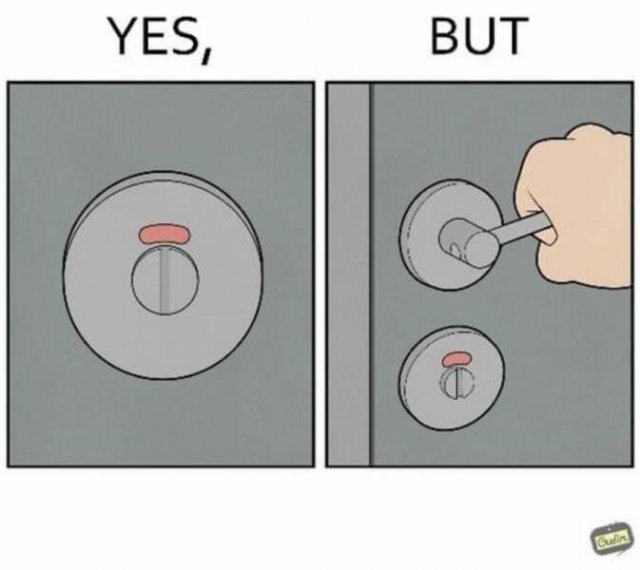

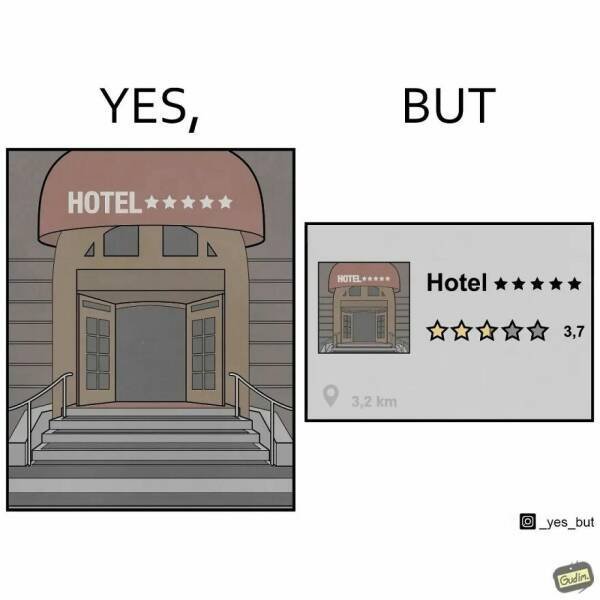
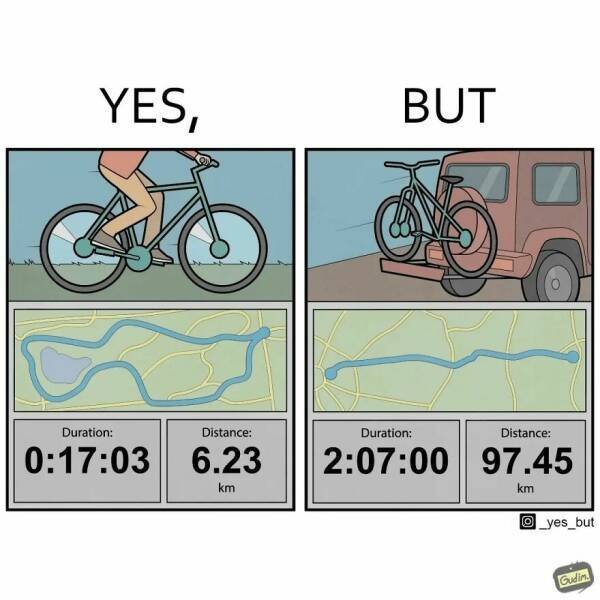
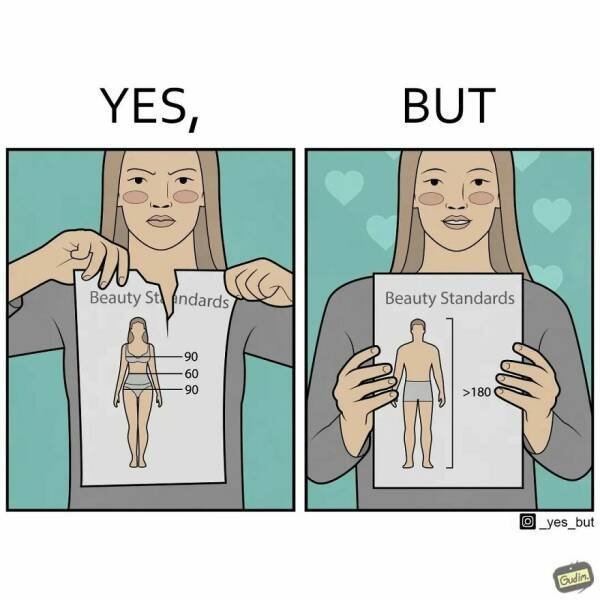
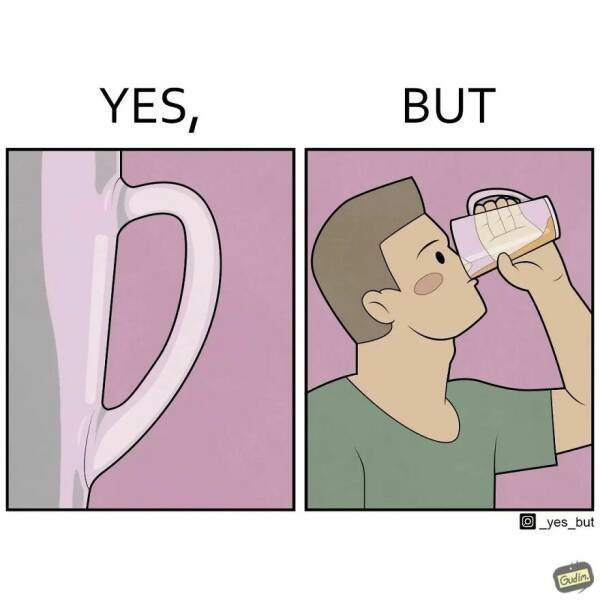
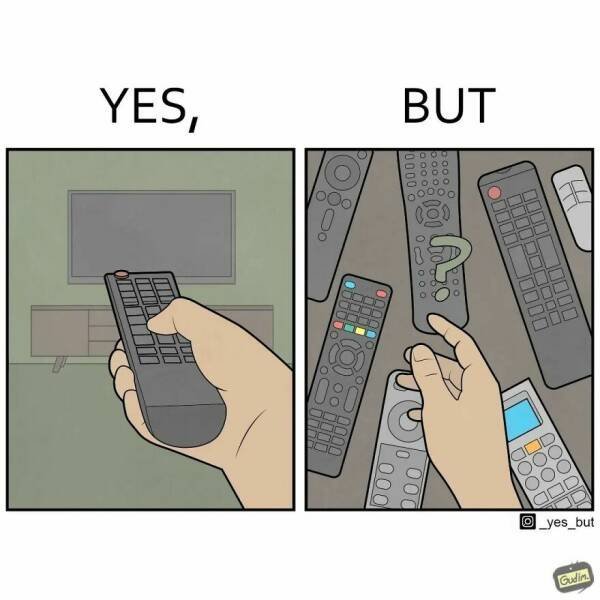
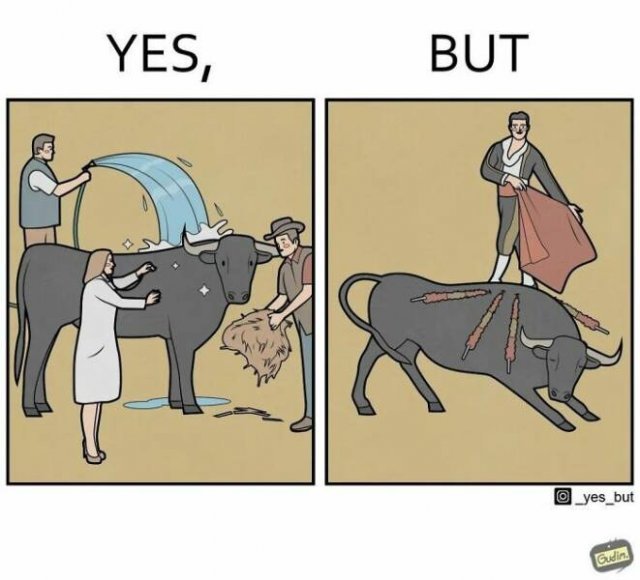
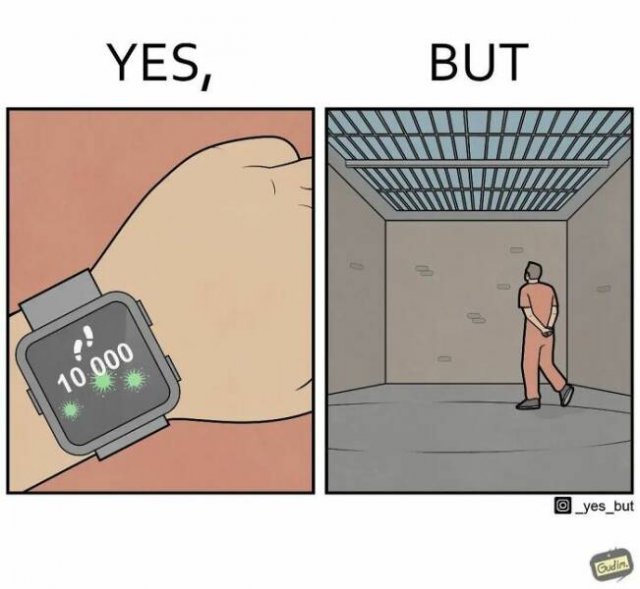
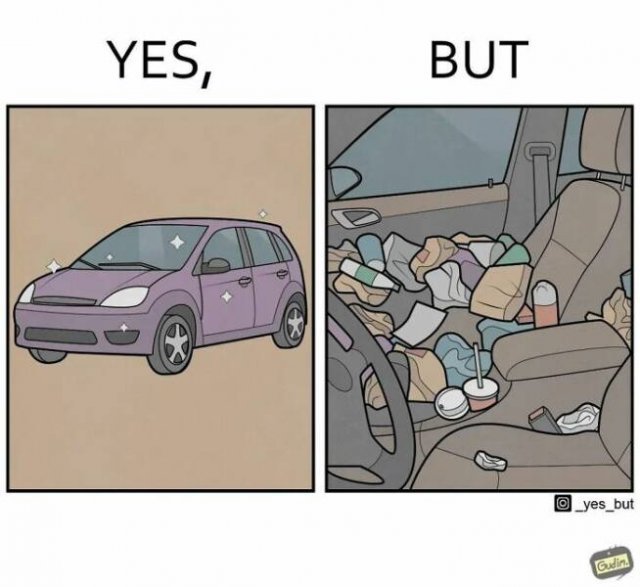
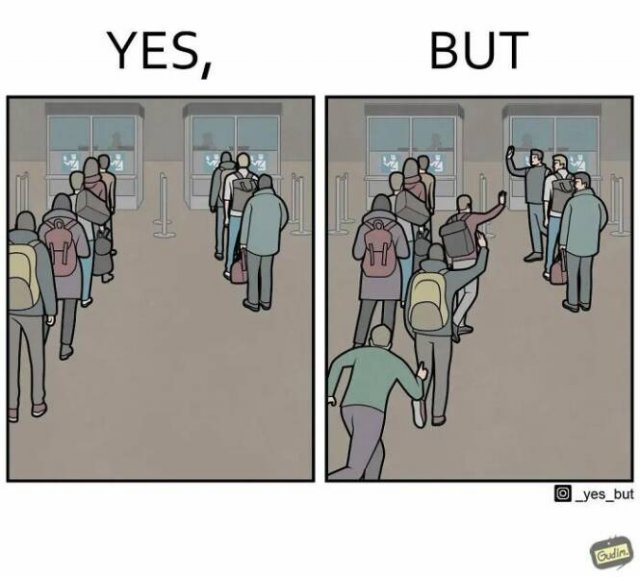

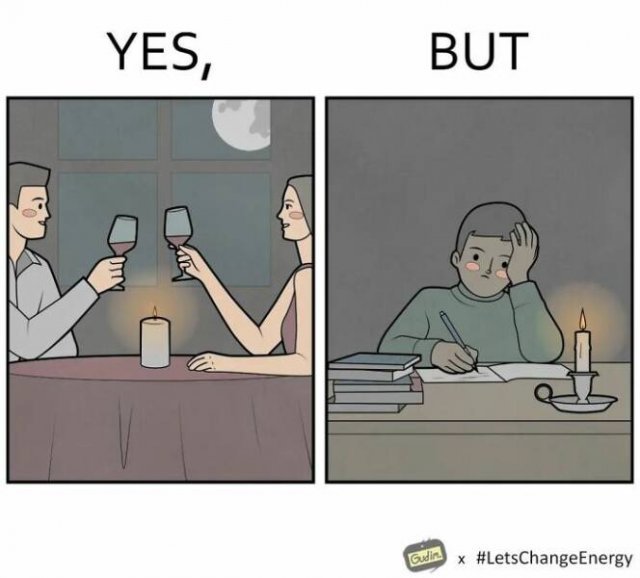
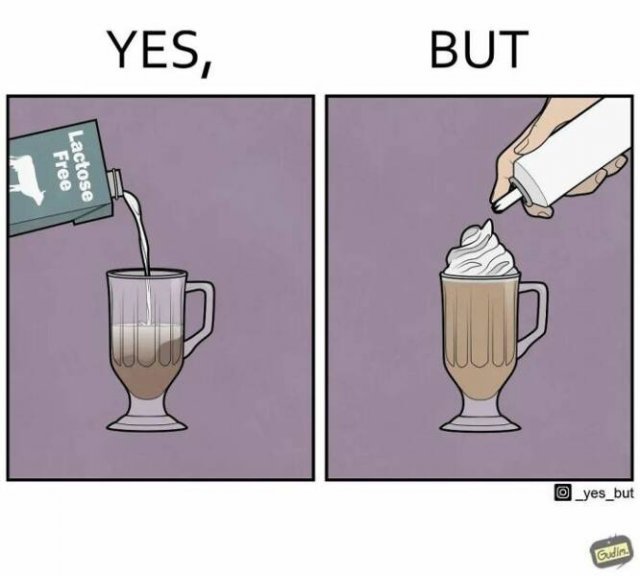



















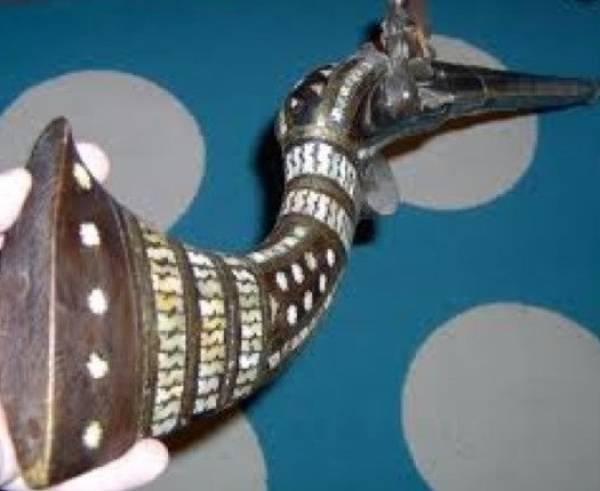















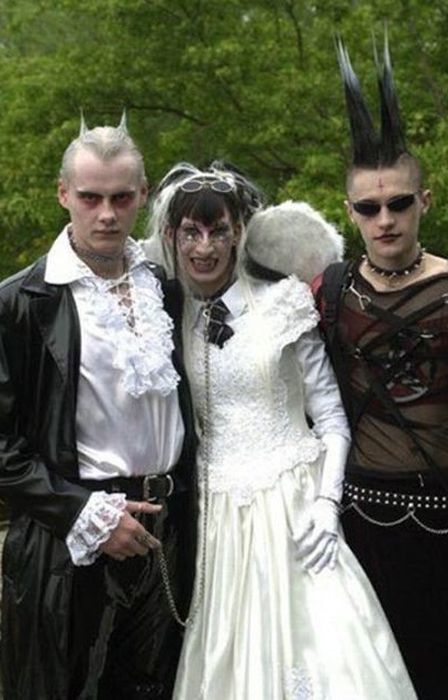









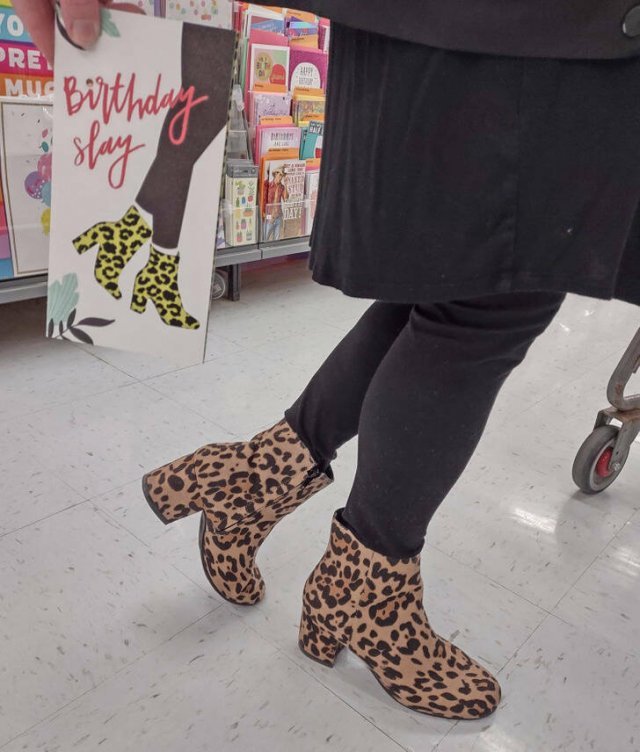

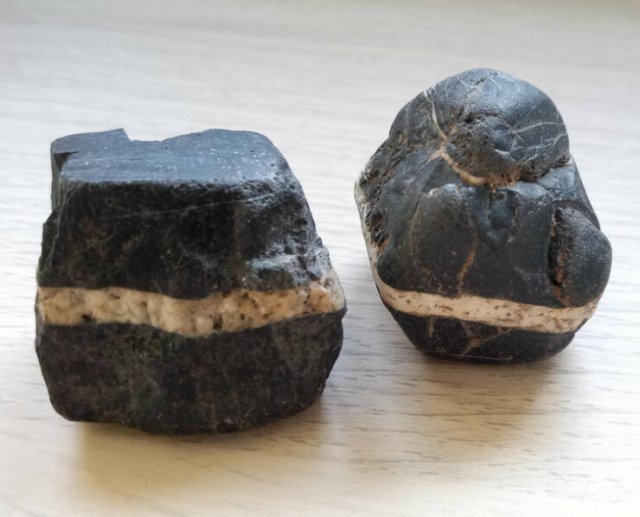

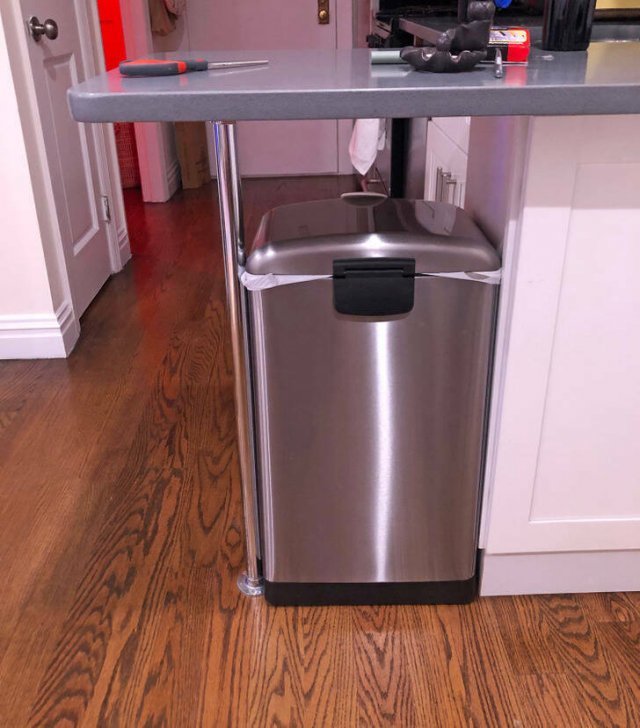

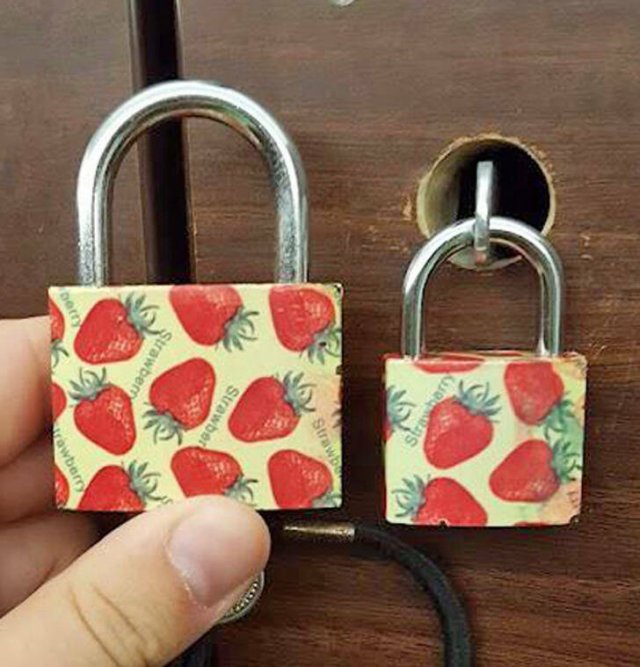








» SEEING RED & FRECKLES...14
» YES,........BUT
» YES,.....BUT...2
» GET OUT THE MAP...2
» APRIL NATIONAL CELEBRATION DAYS APRIL 26 2024
» SUPER TRUCKS...
» APRIL NATIONAL CELEBRATION DAYS APRIL 25 2024
» WIZE TRIVIA QUIZ * How many pull ups did Gary Lloyd do in 24 hours to achieve the Guinness? *
» WISETRIVIA ANSWER PAGE
» IN THE LOCAL NEWS...4
» MOOMS's...9
» WORD DAILY Word of the Day: * aphorism *
» APRIL NATIONAL CELEBRATION DAYS APRIL 24 2024
» YOUTUBE SHORTS OFF THE WALL...21